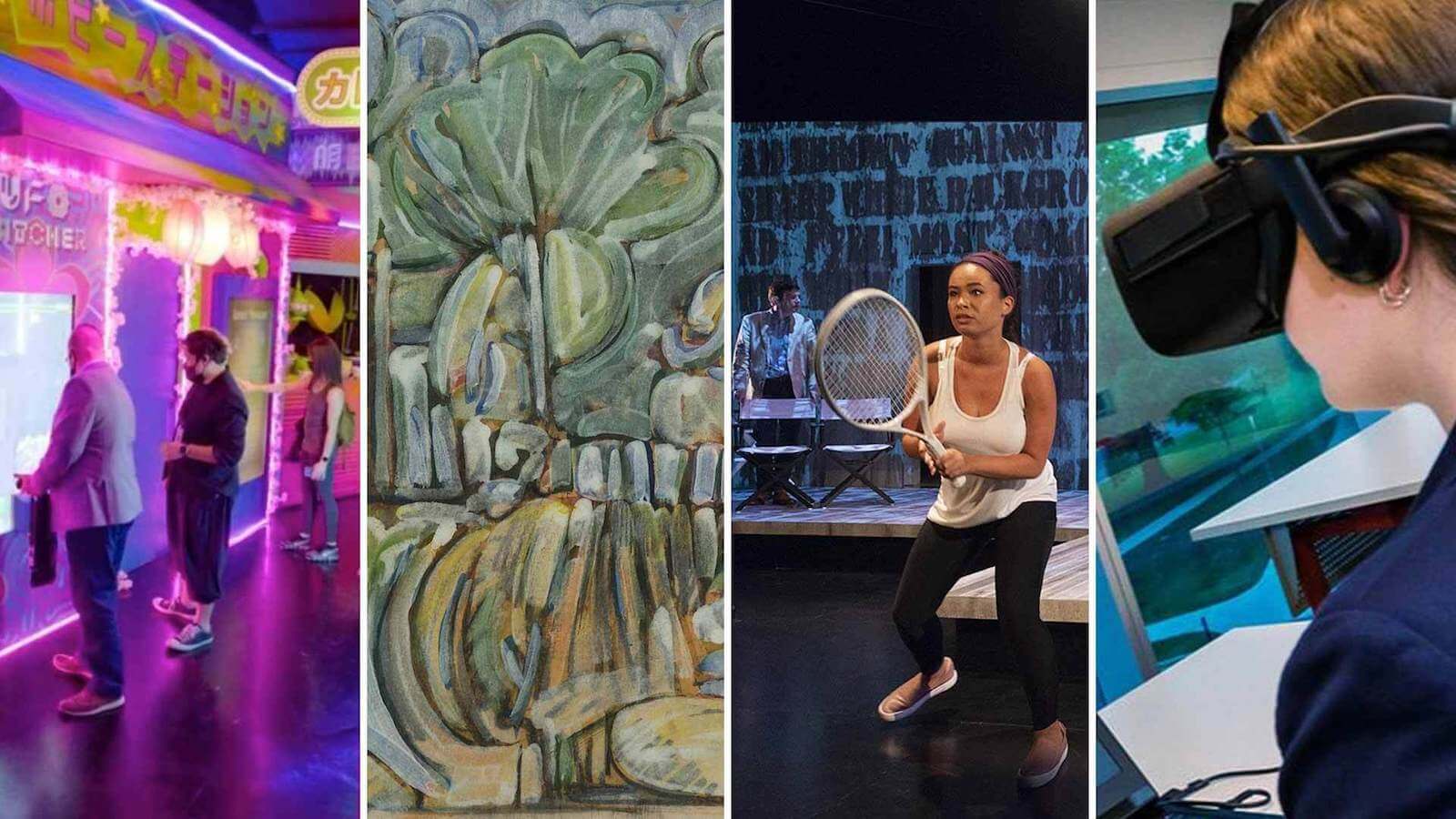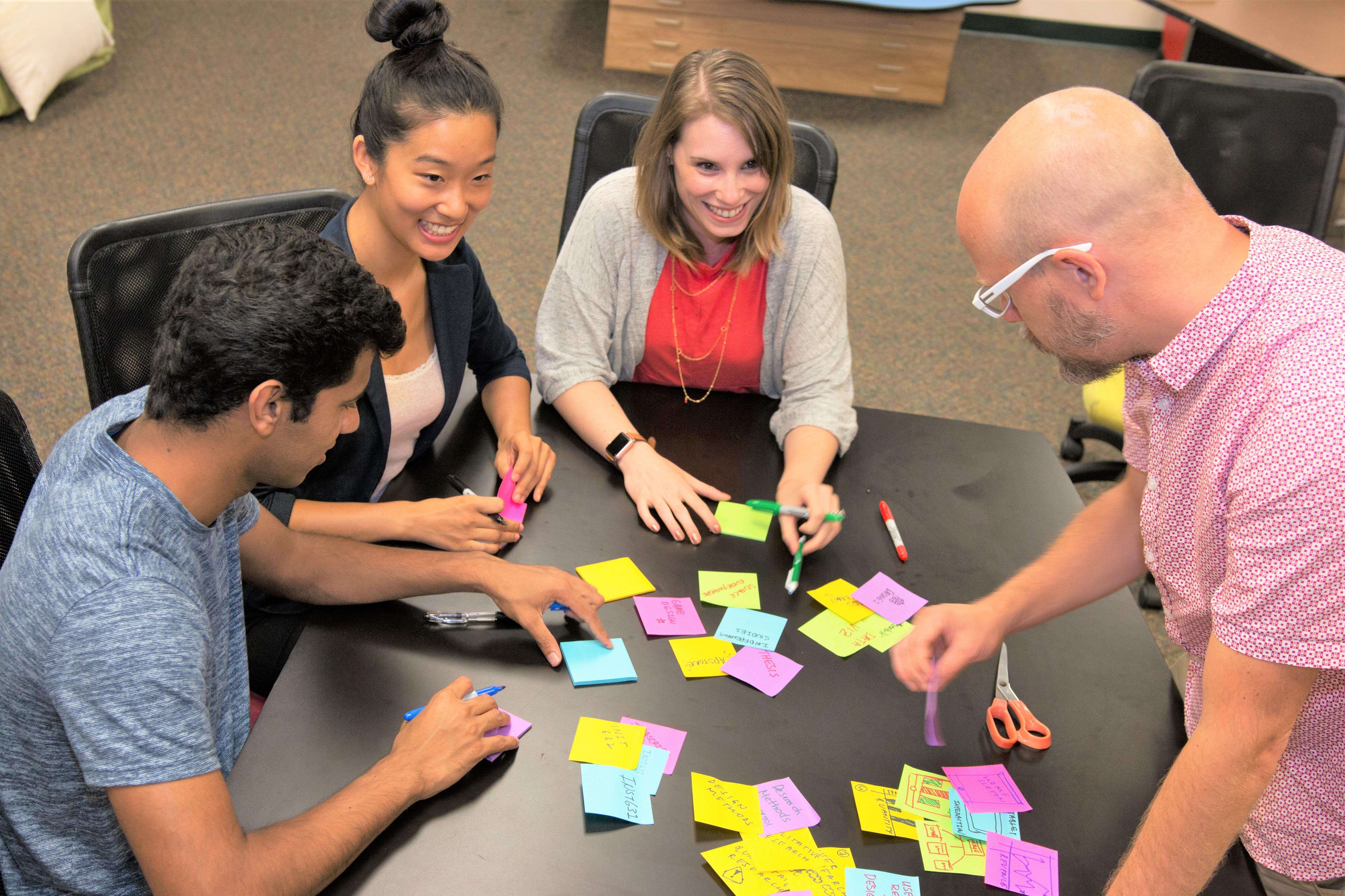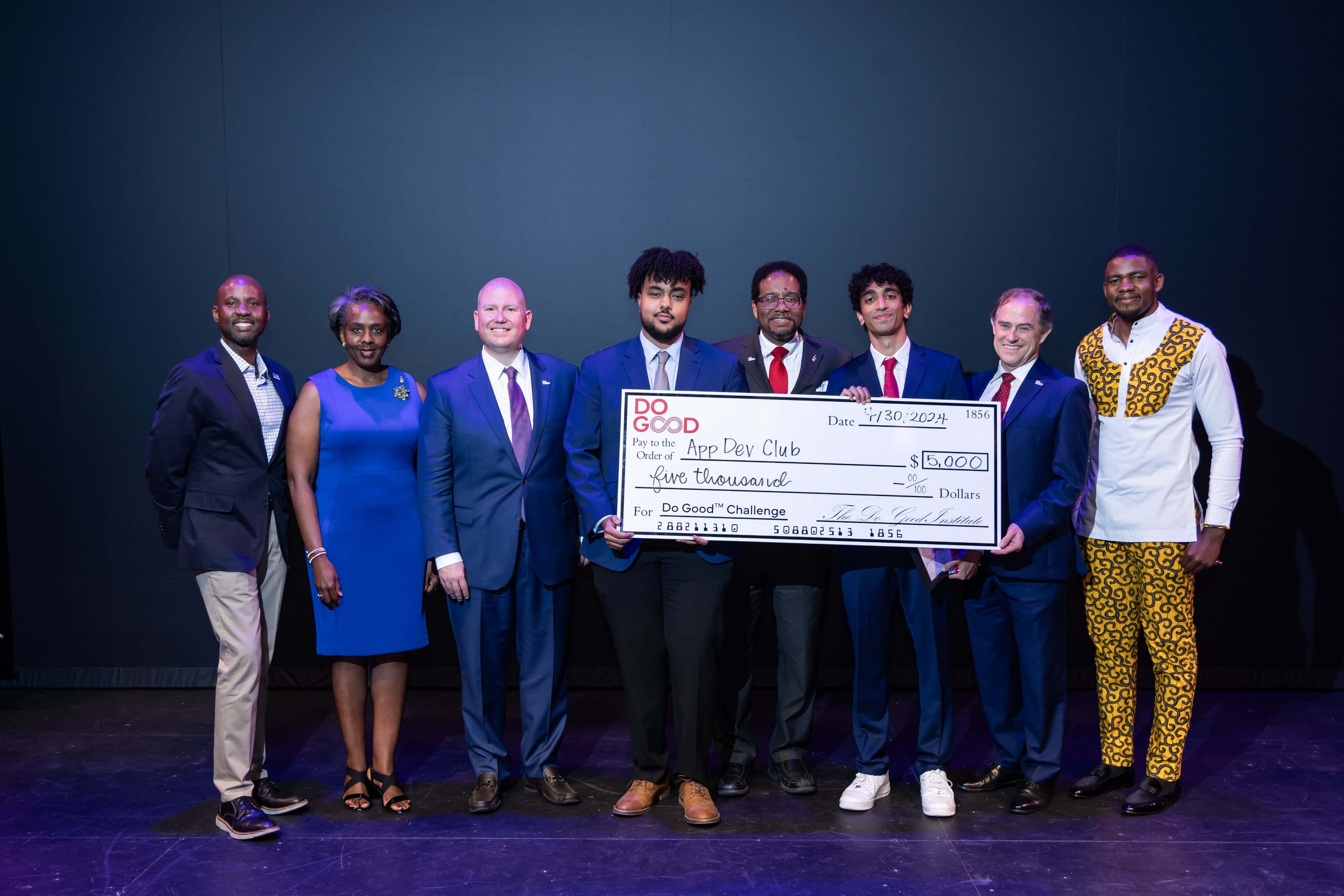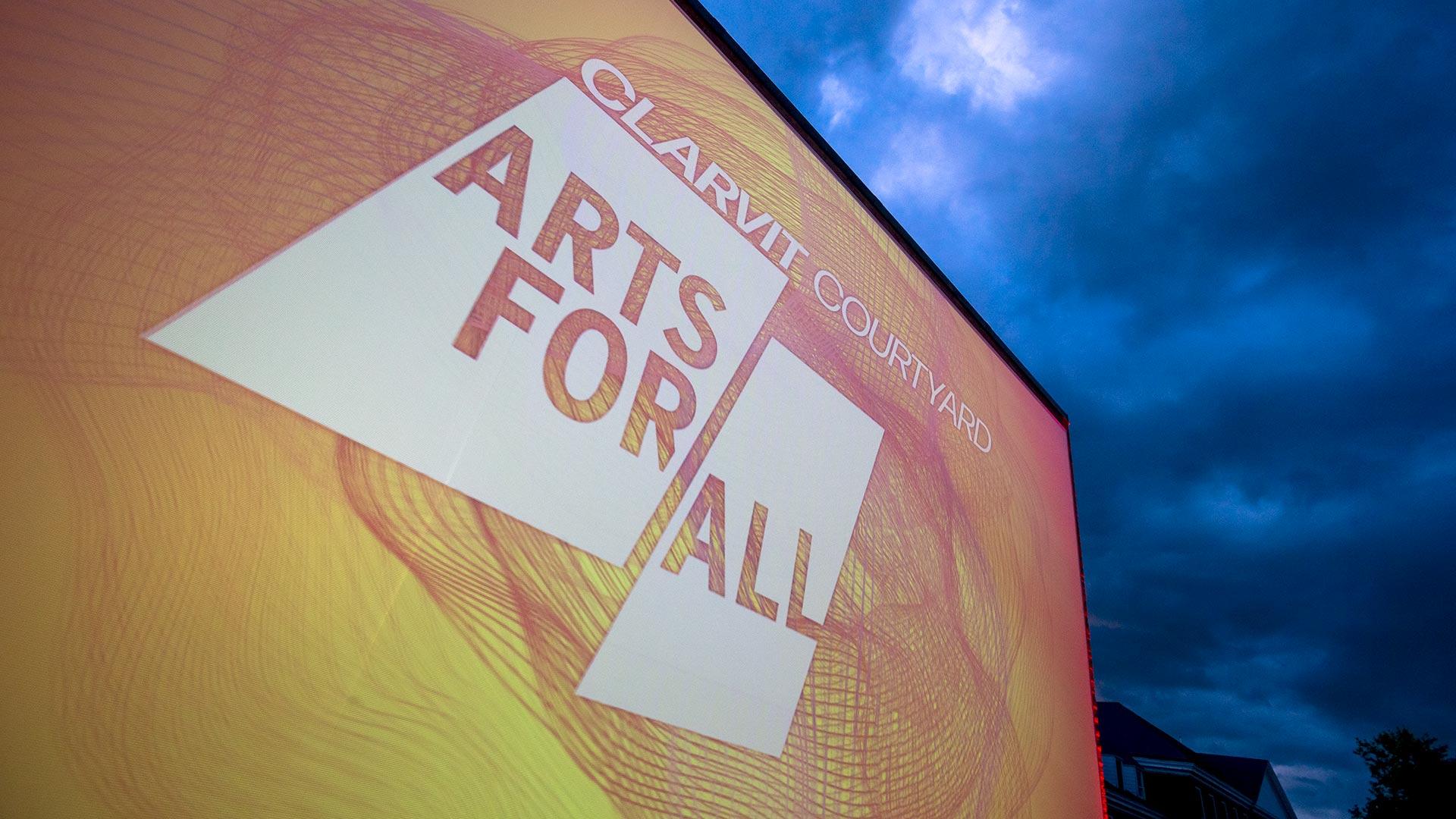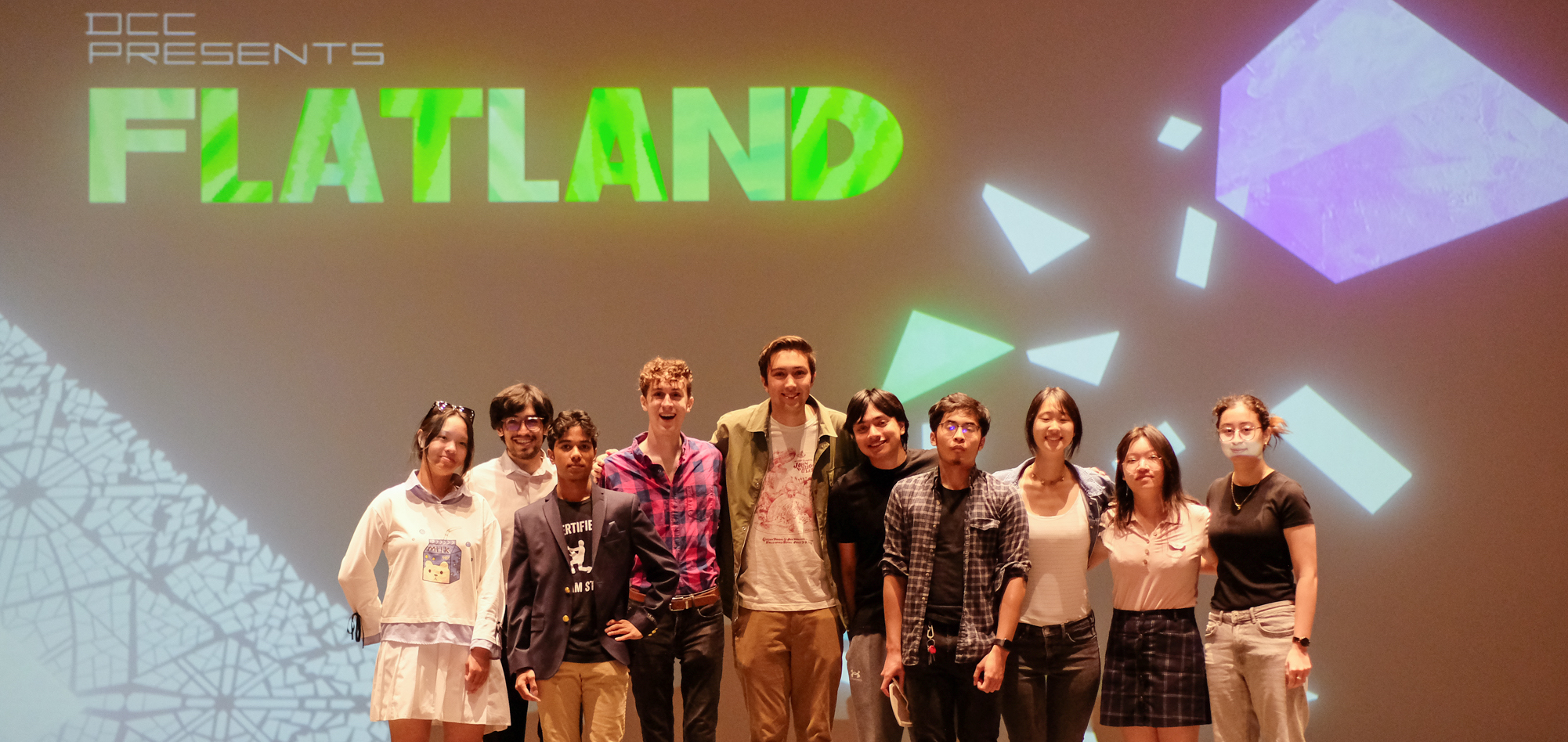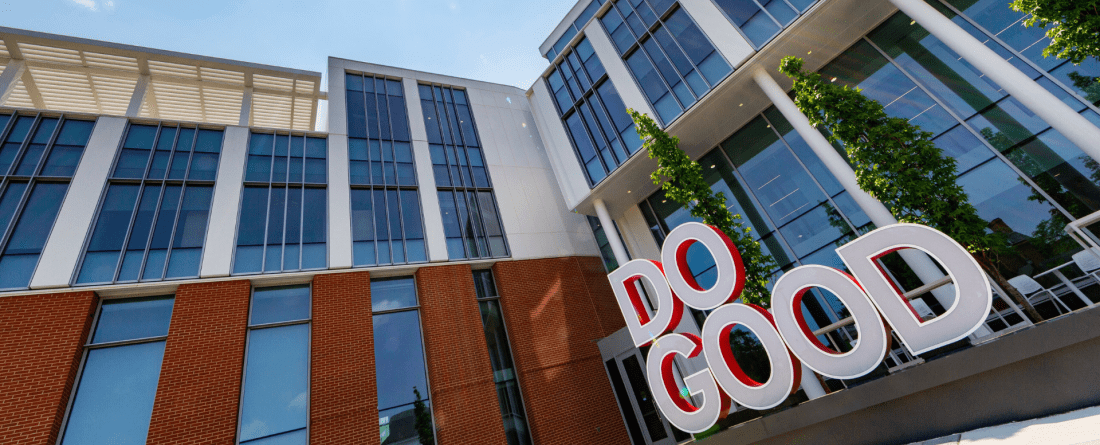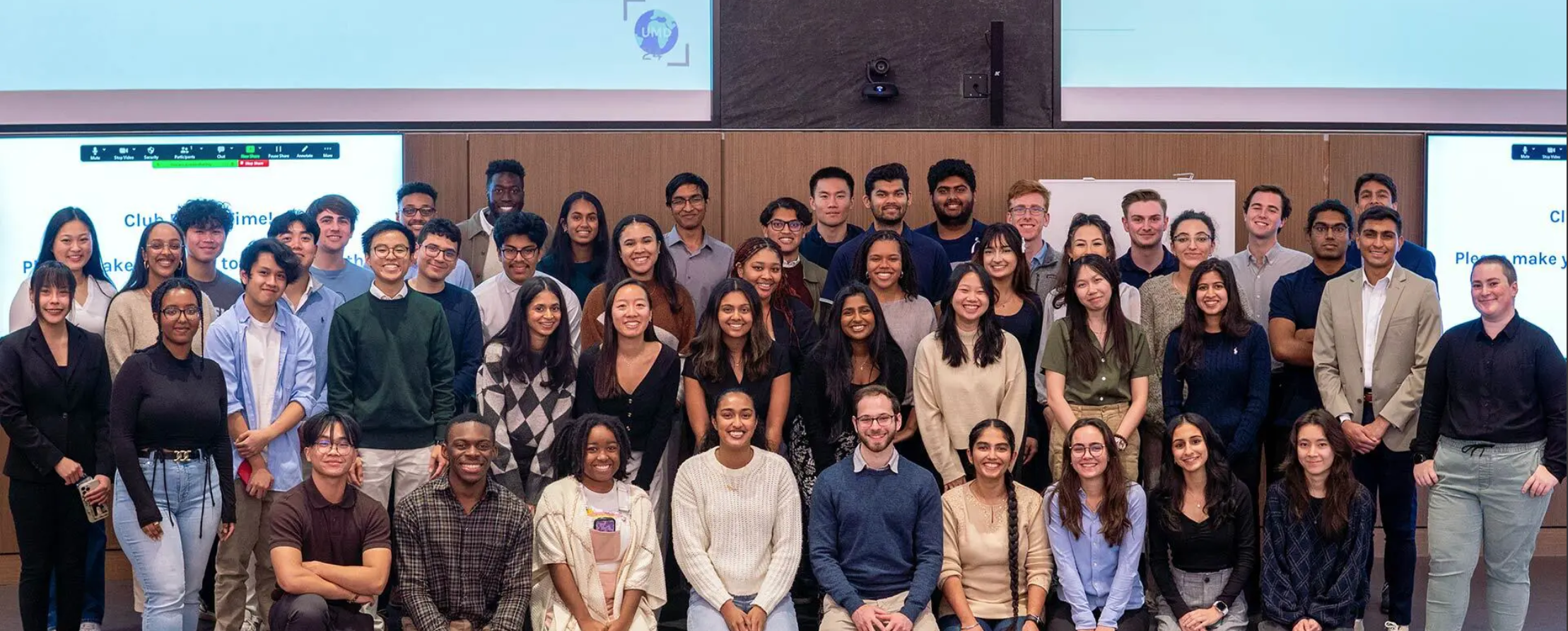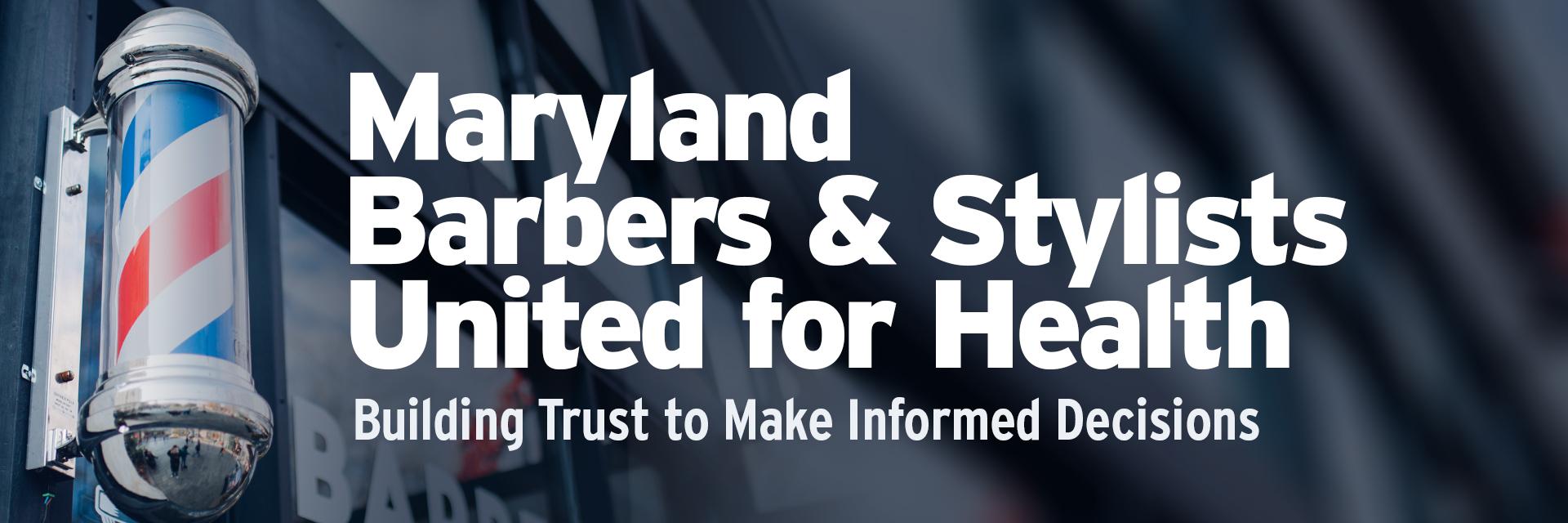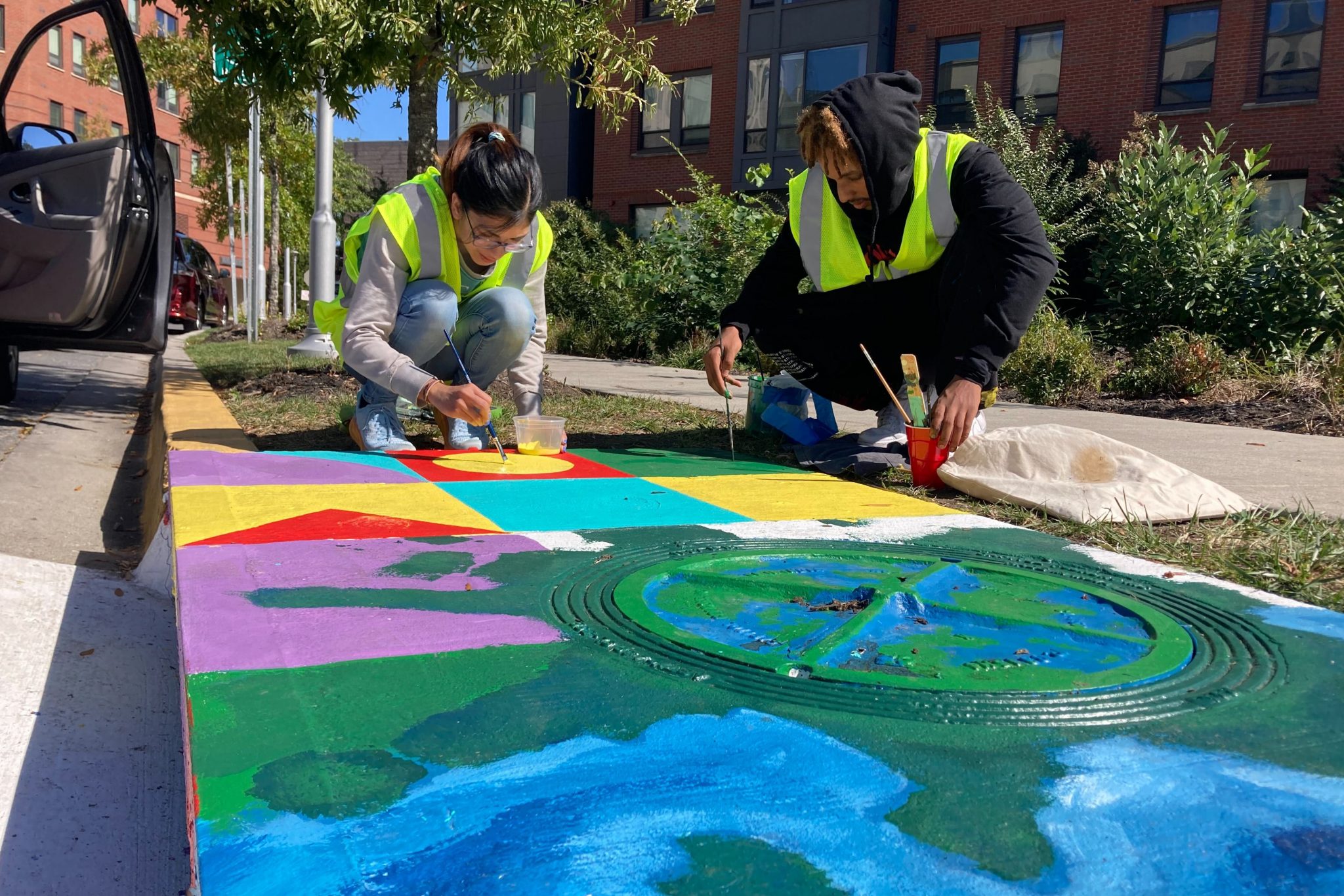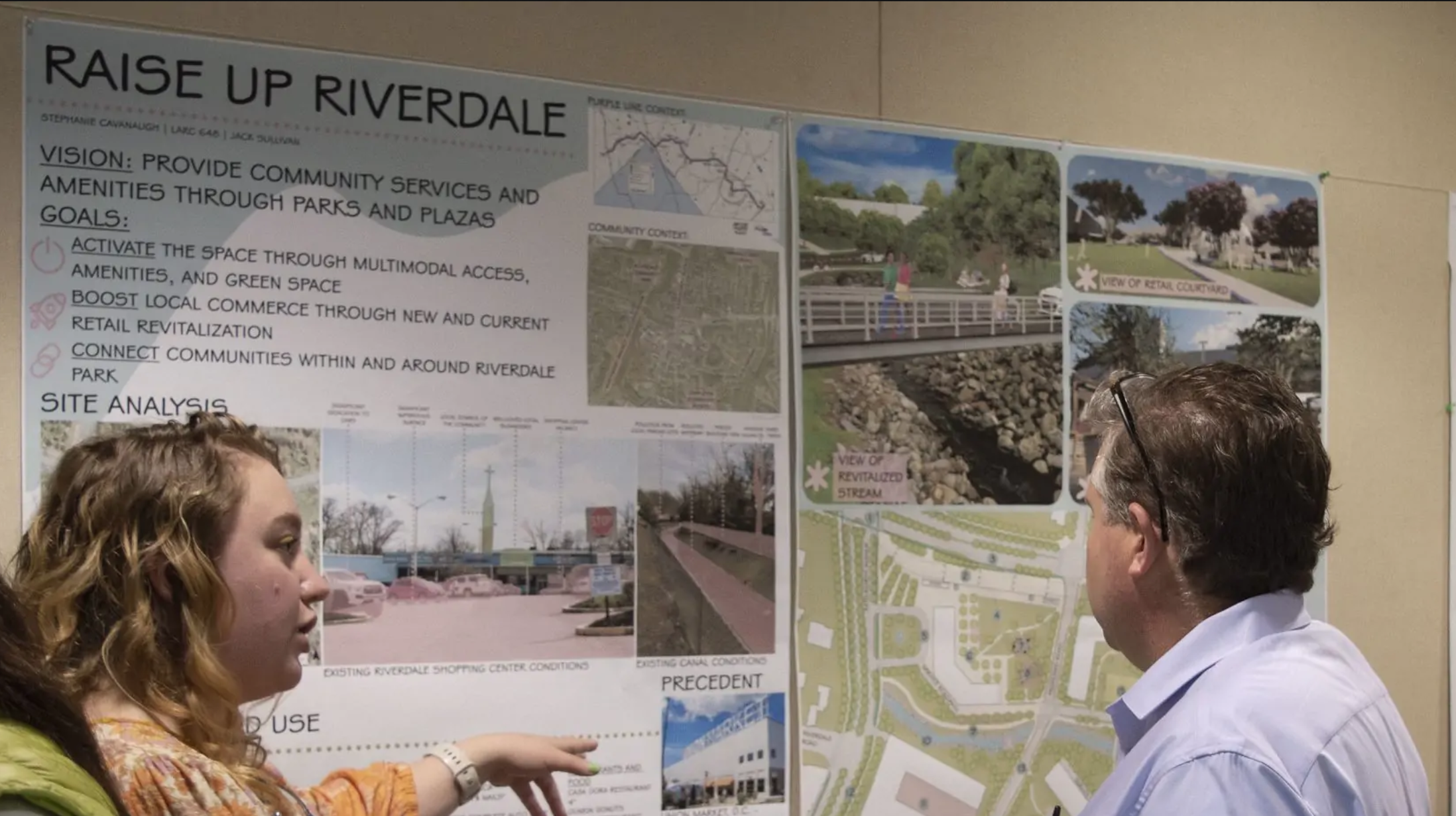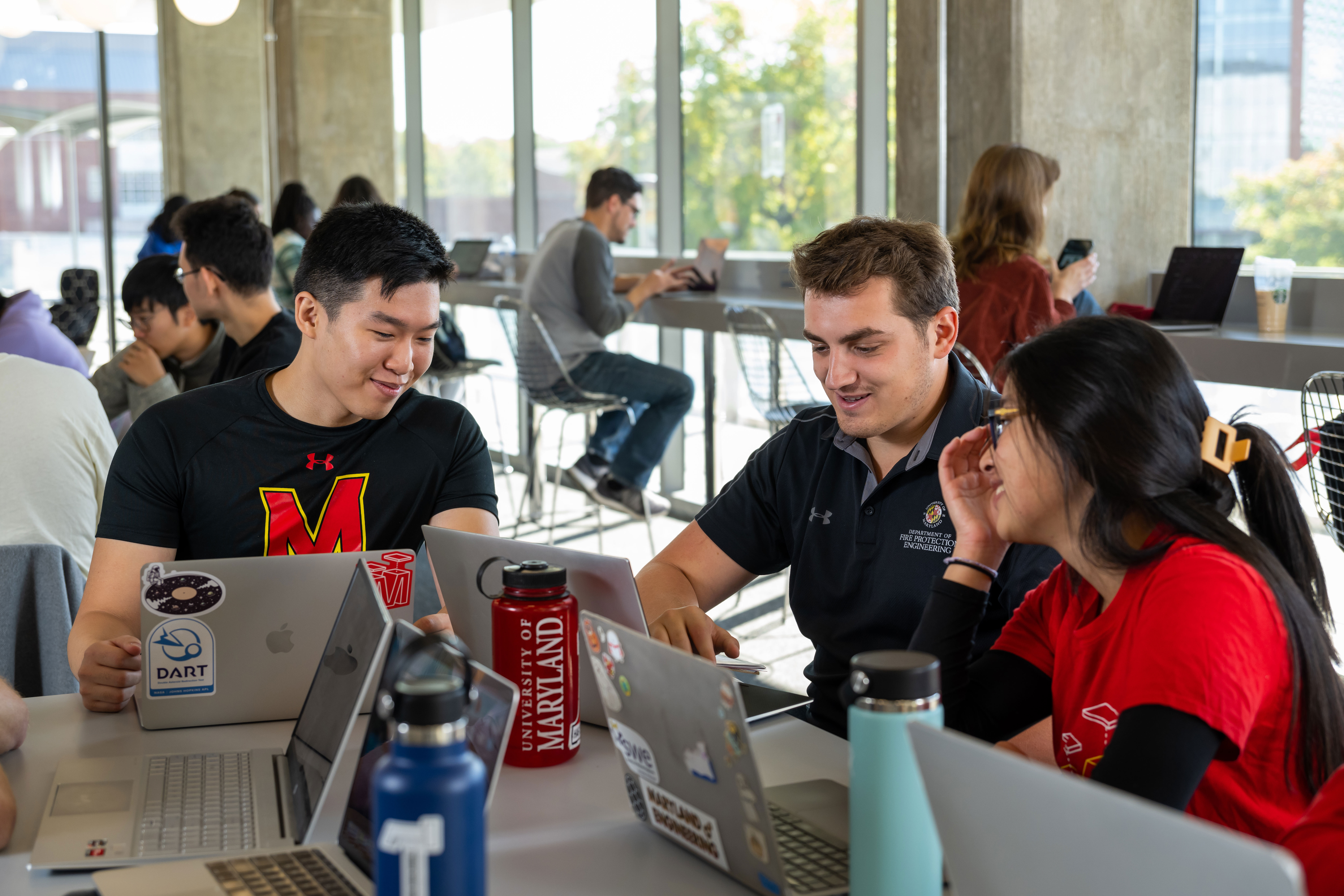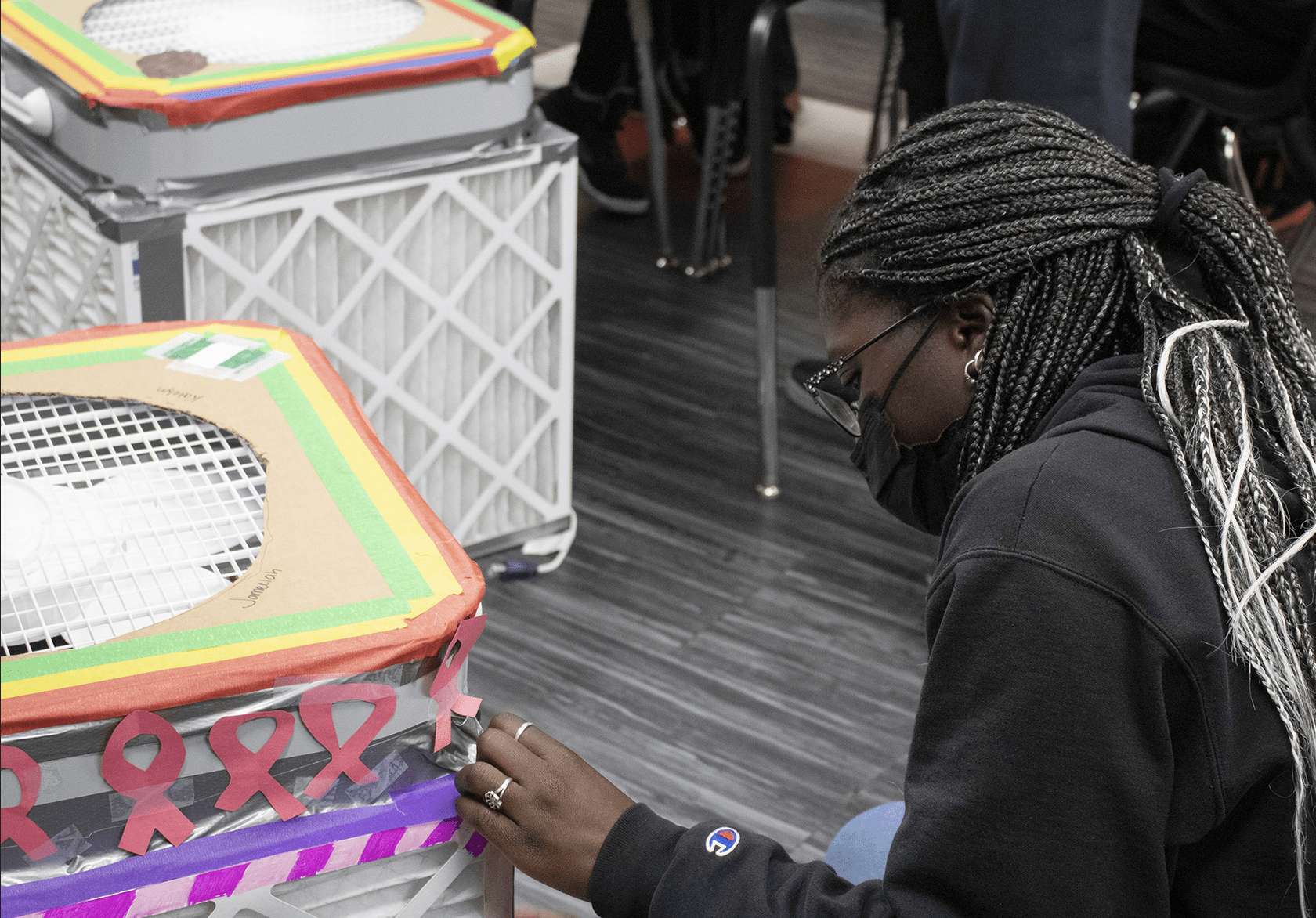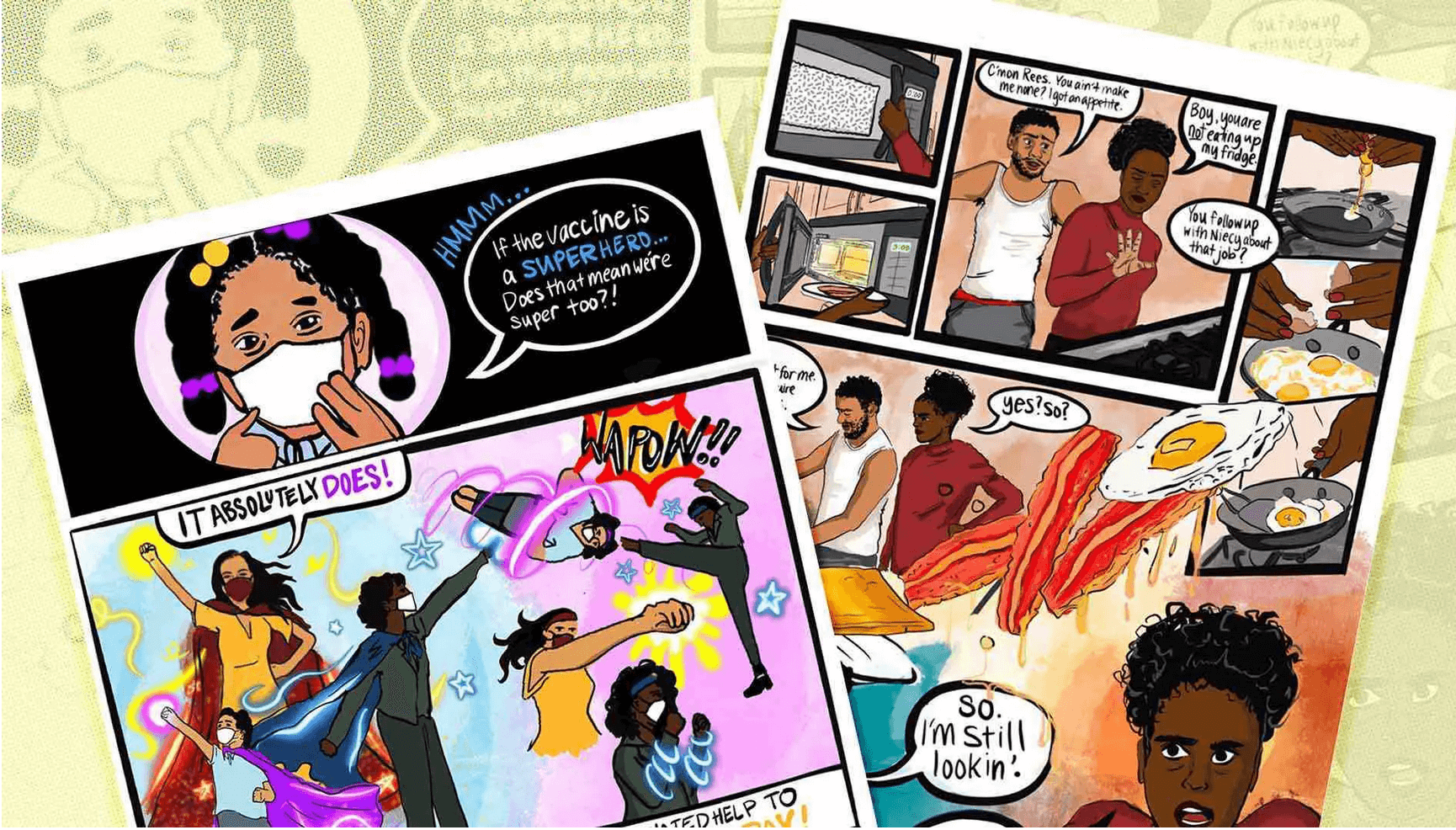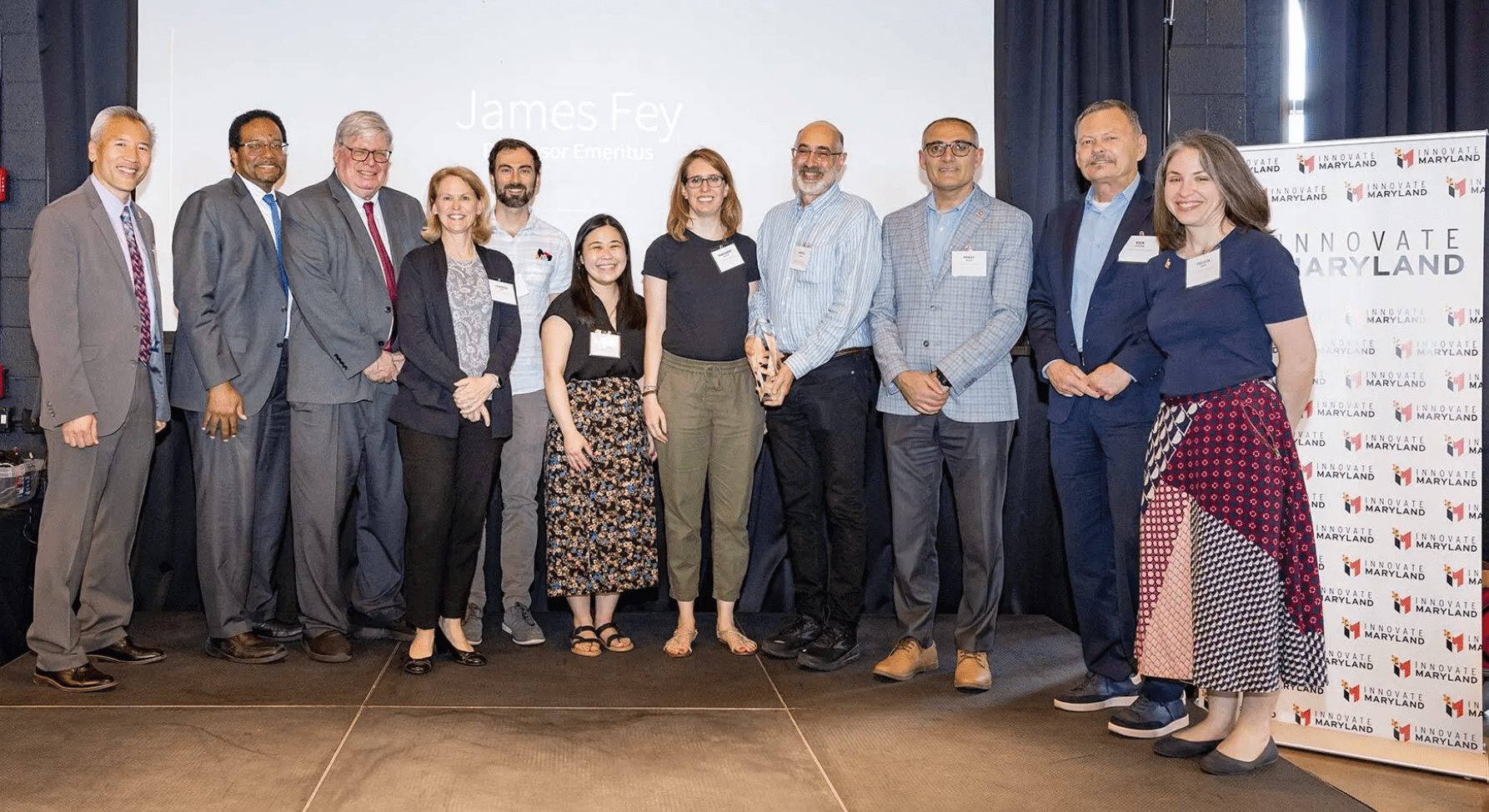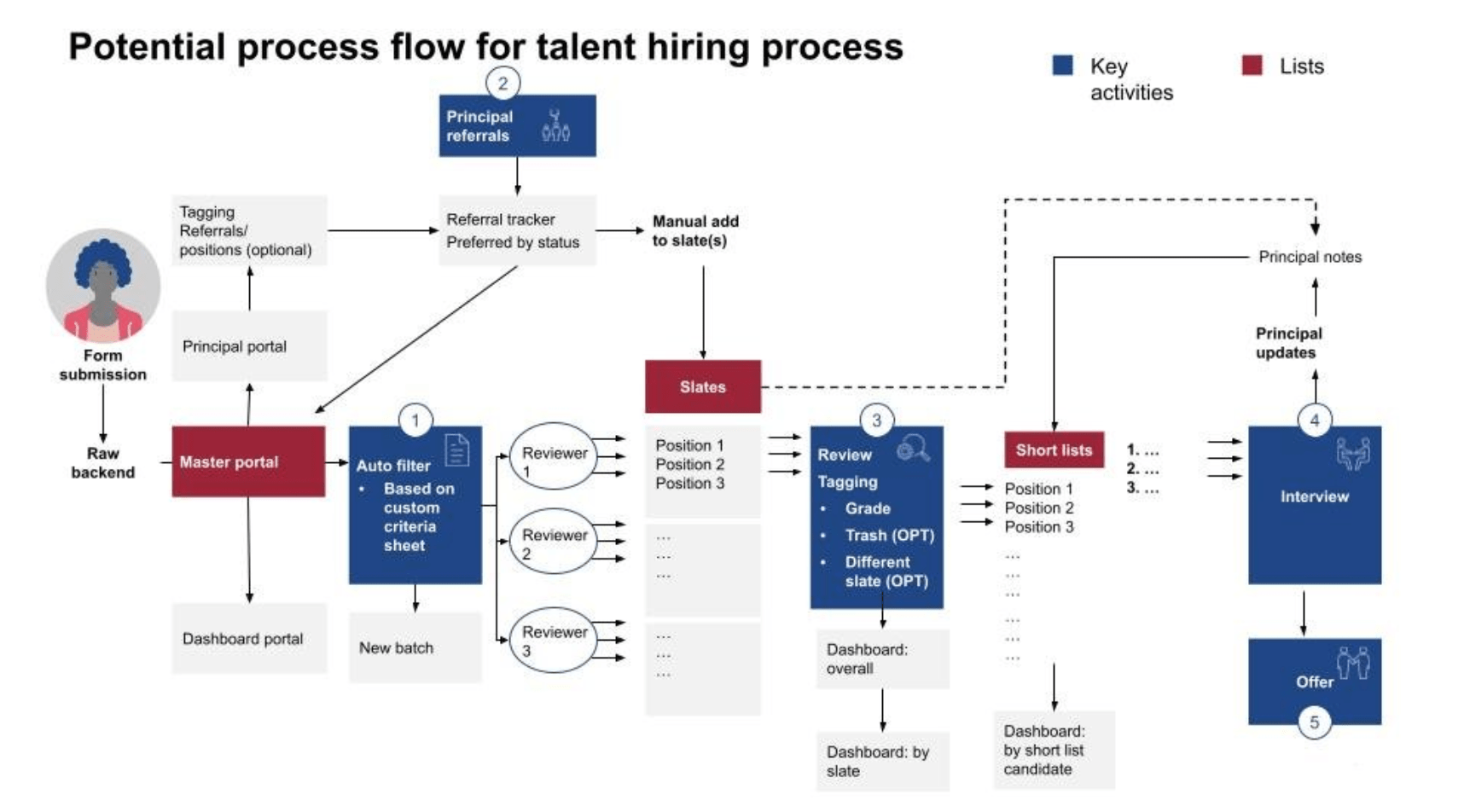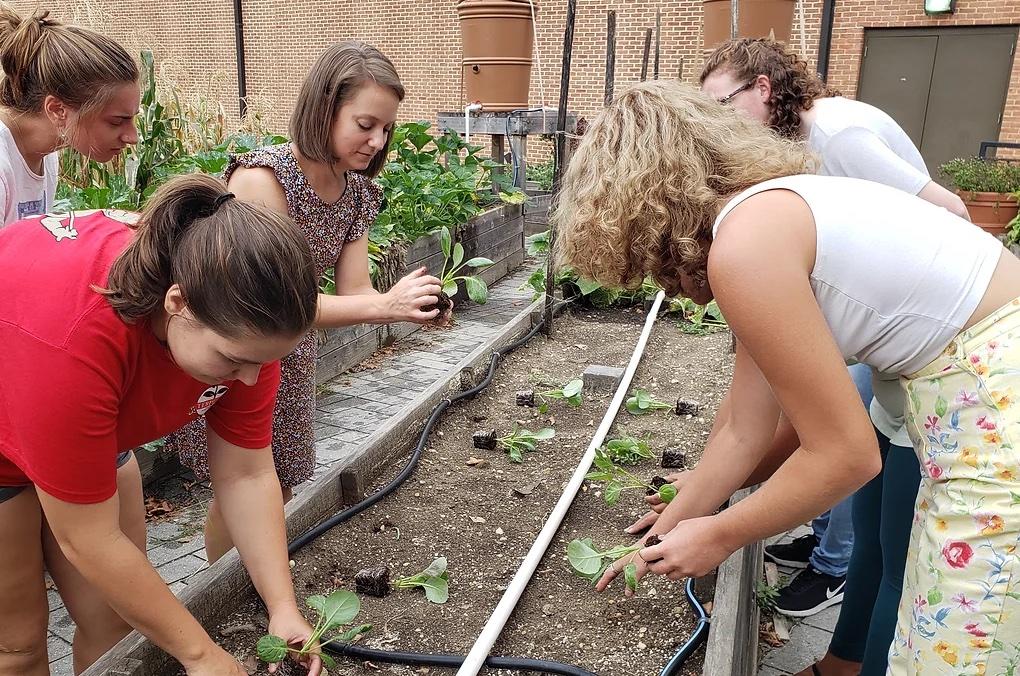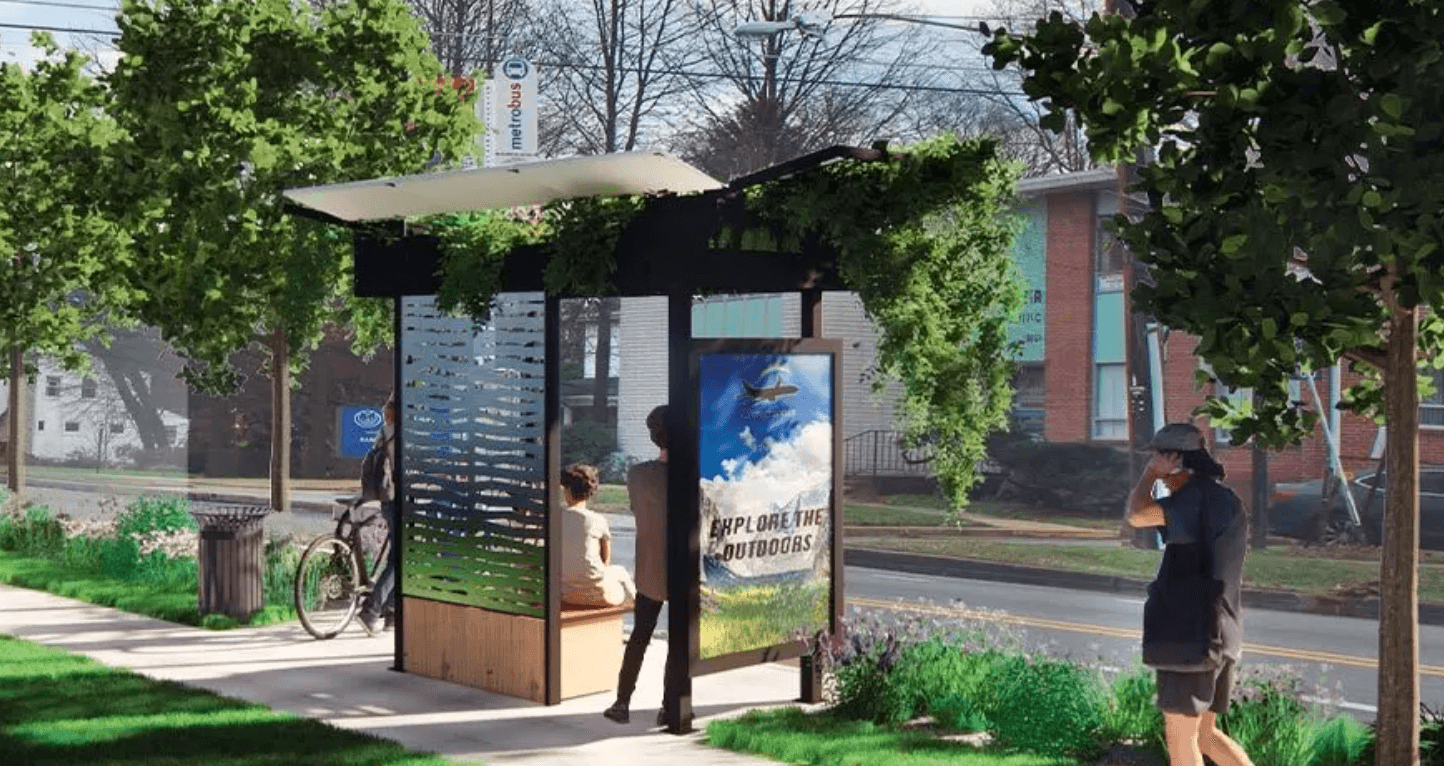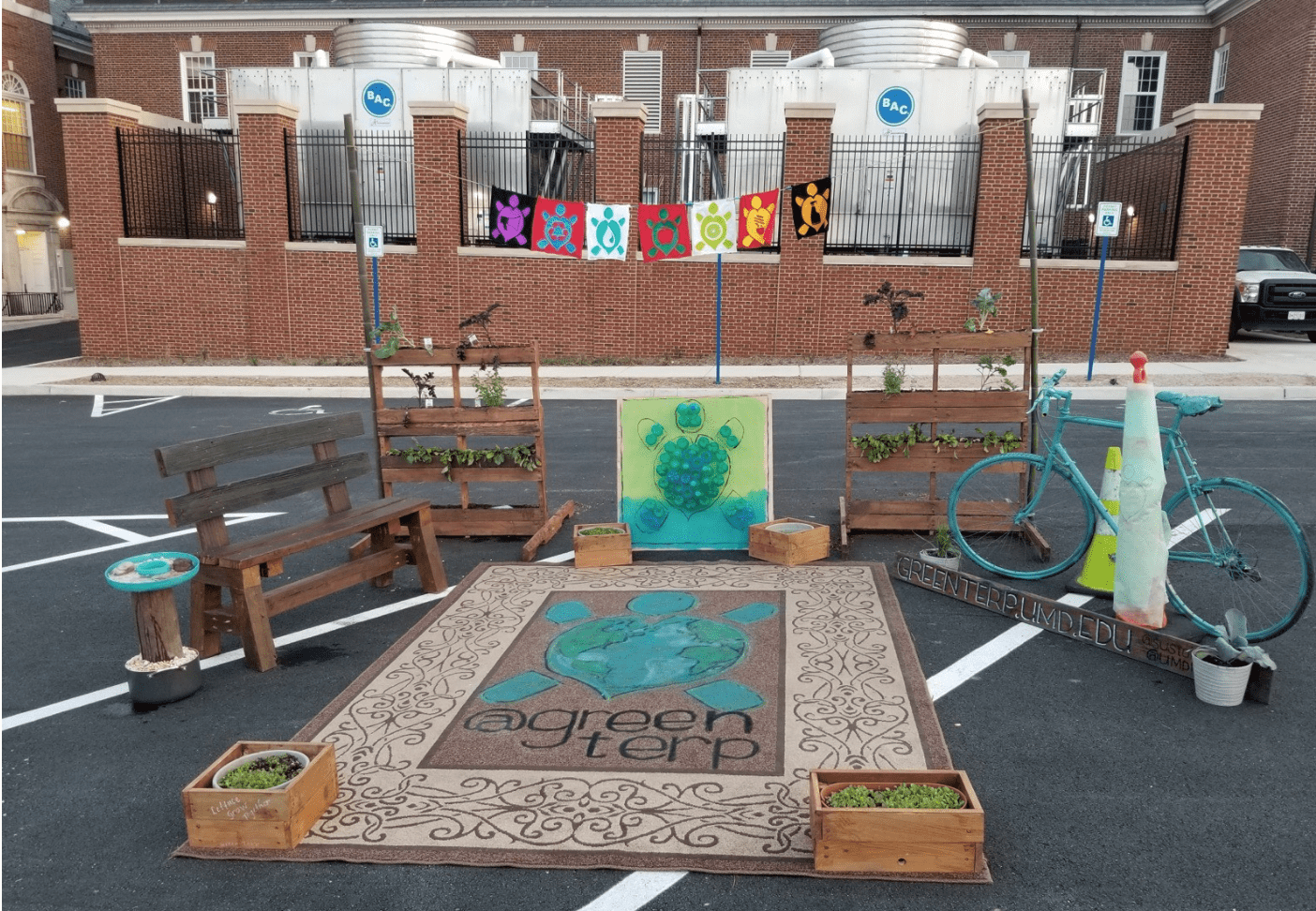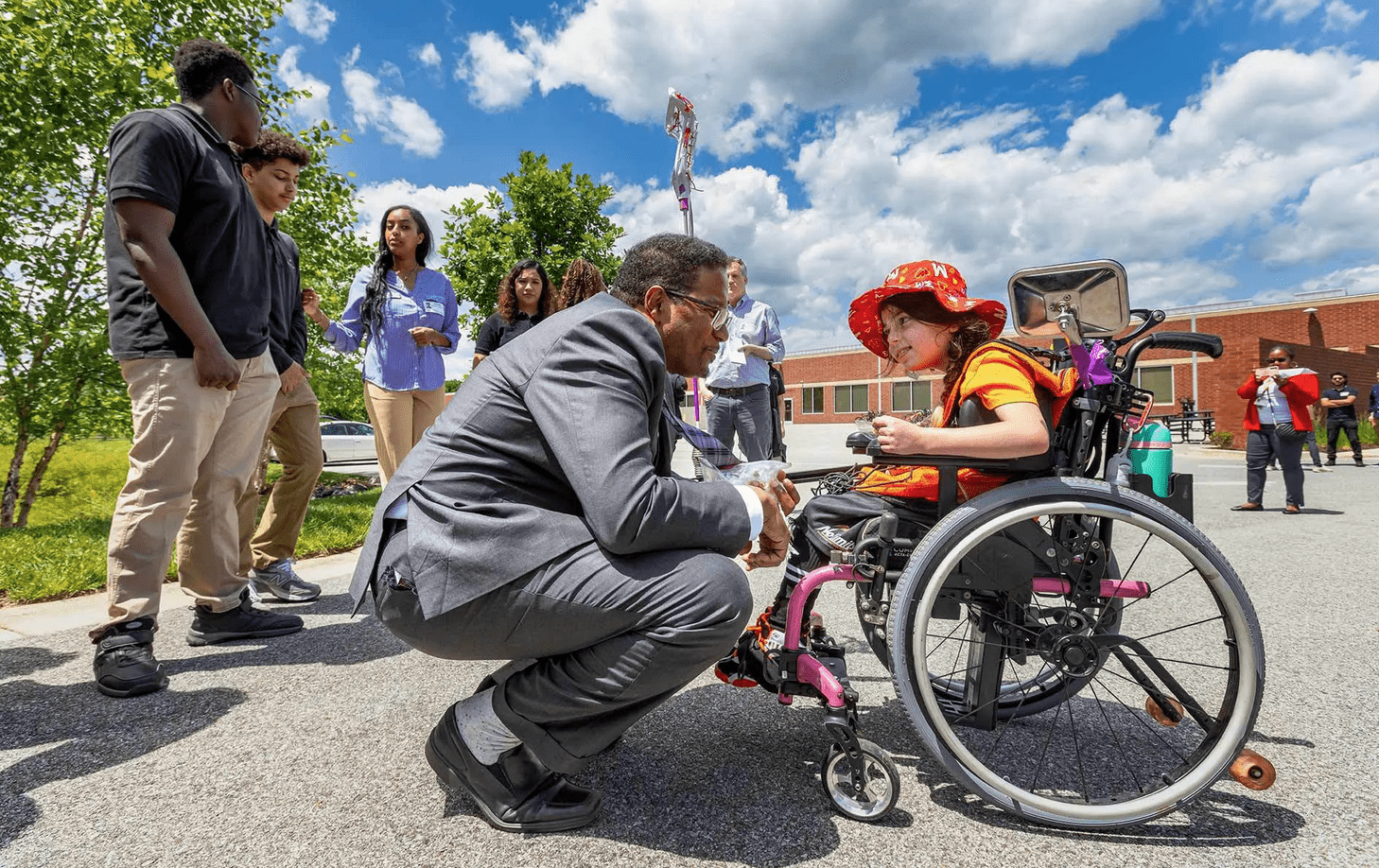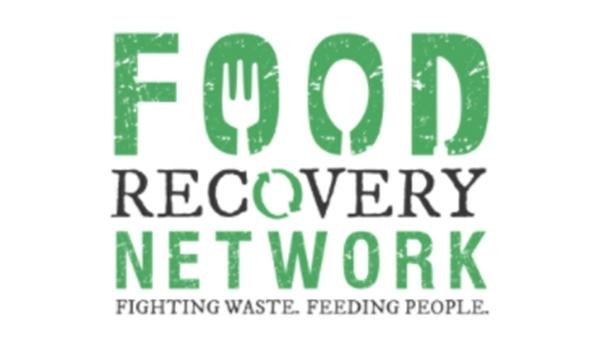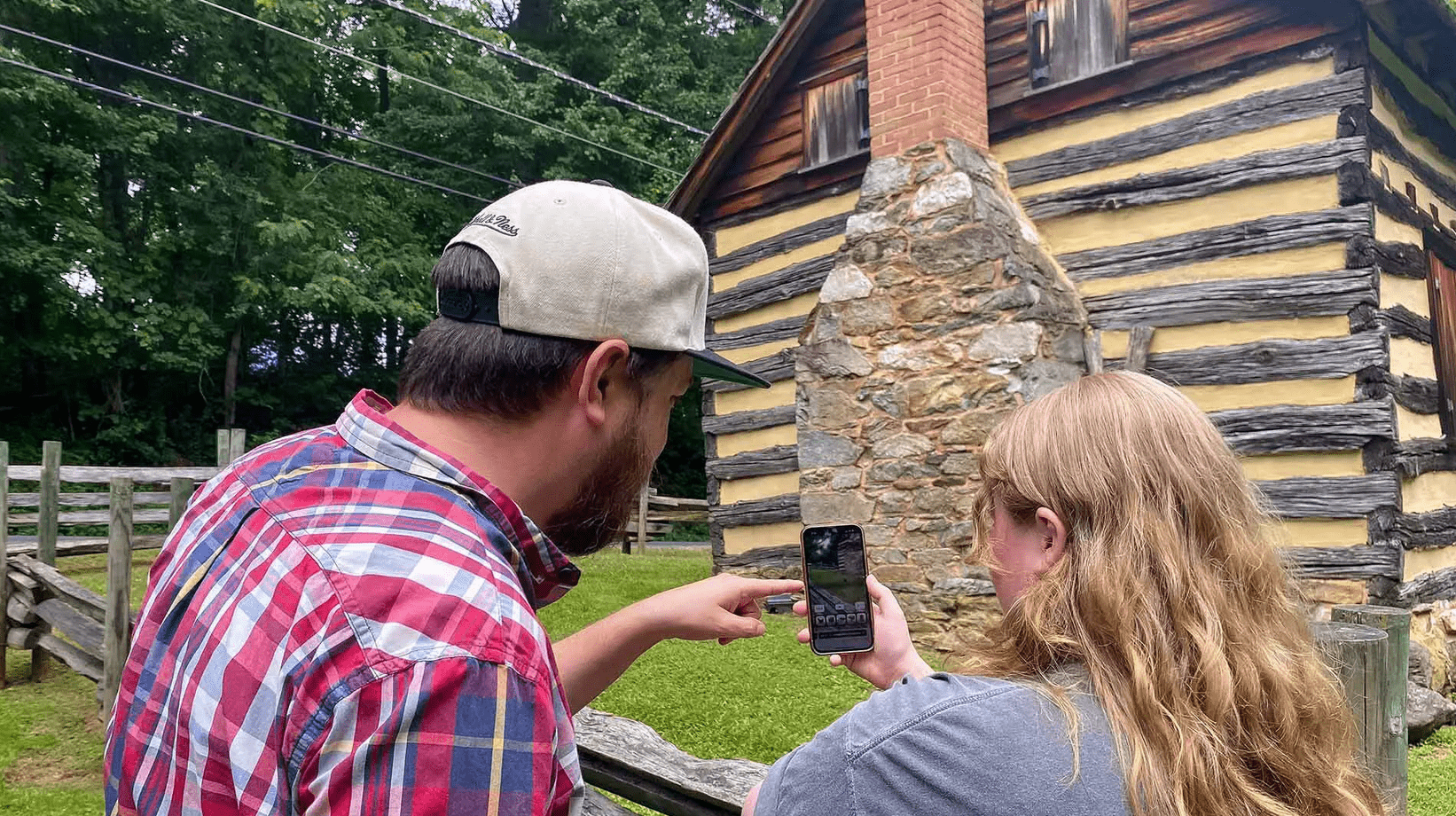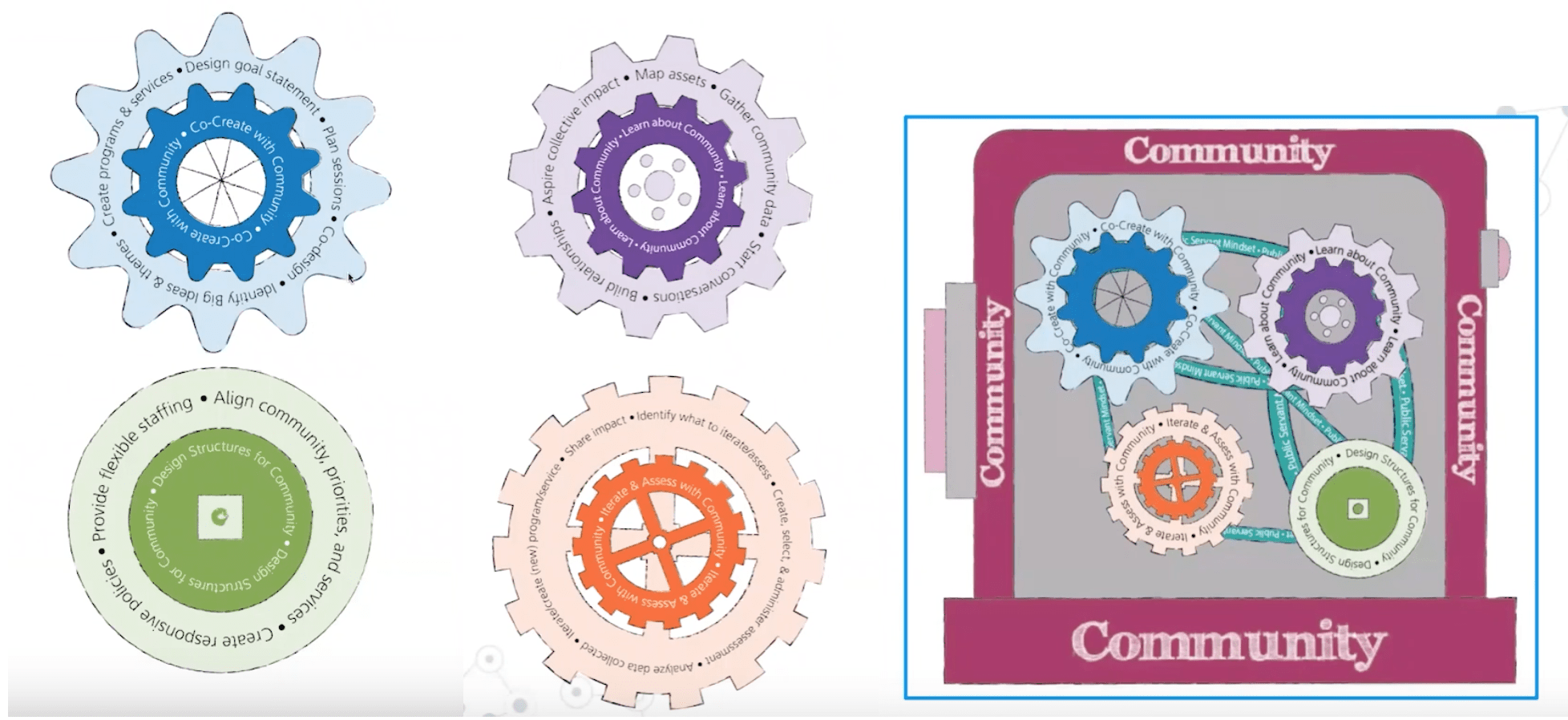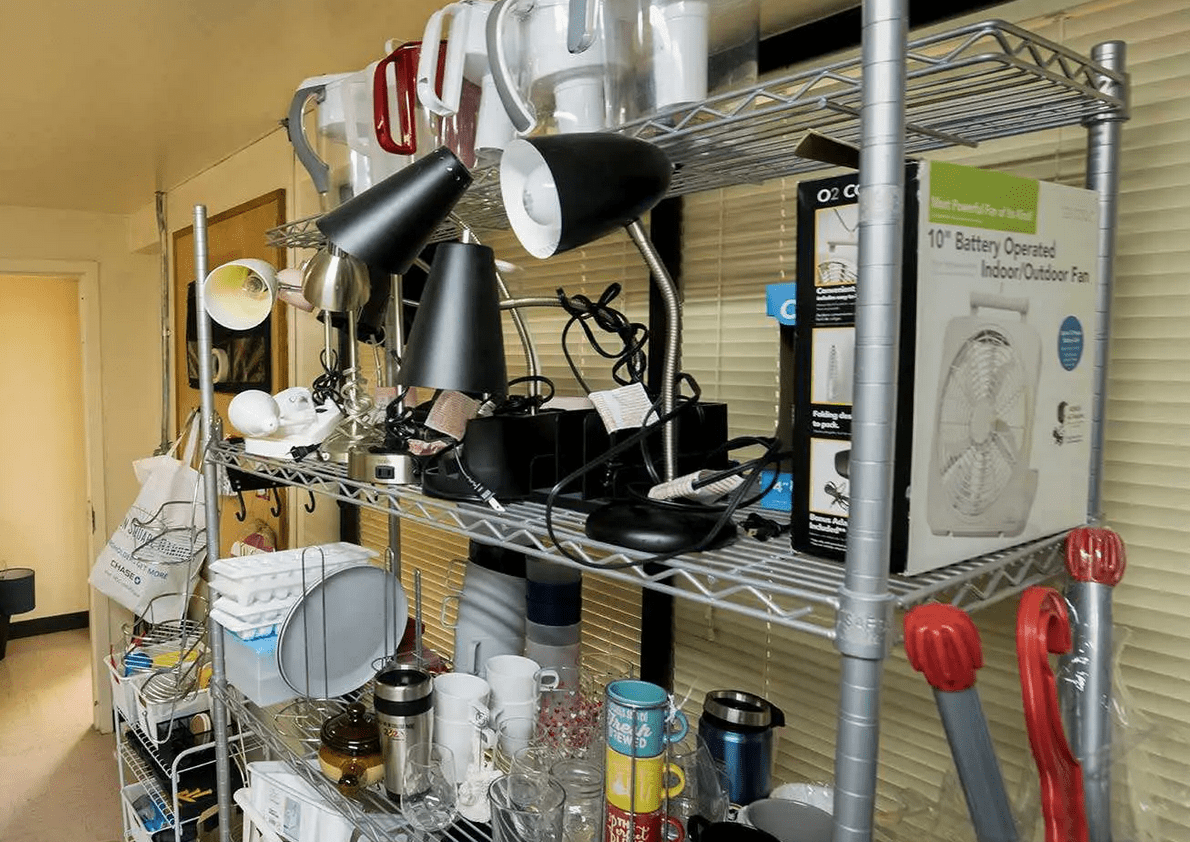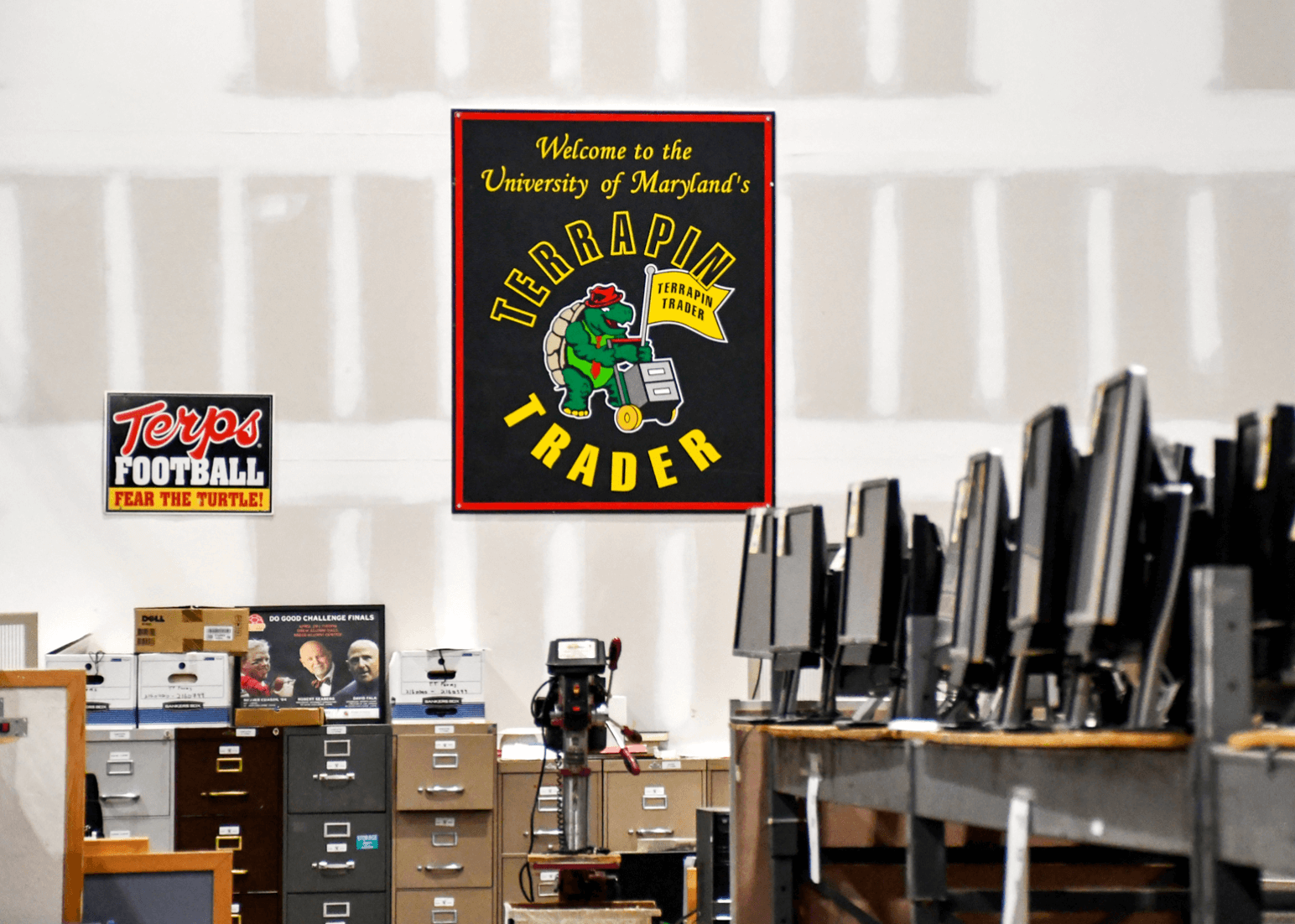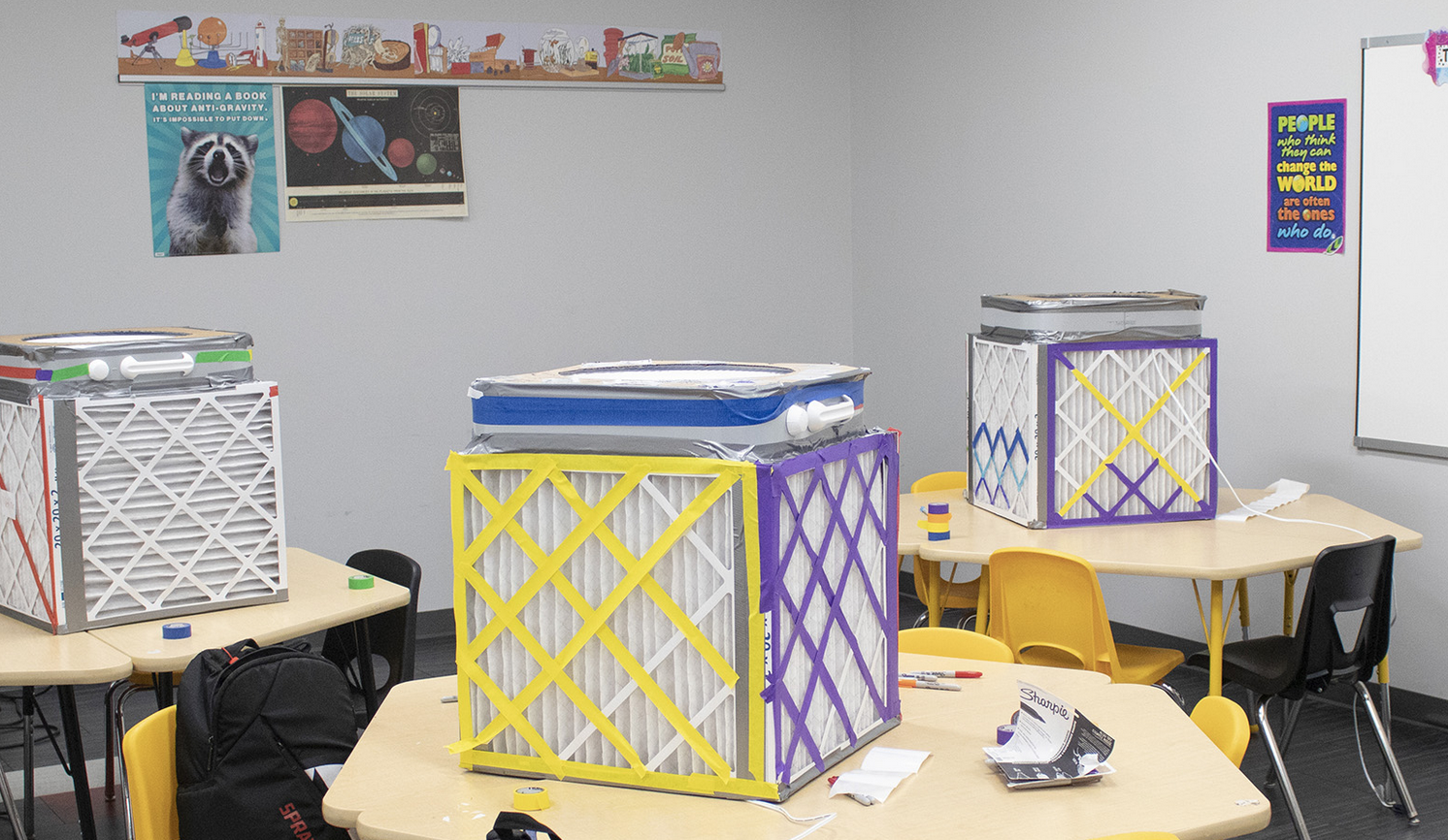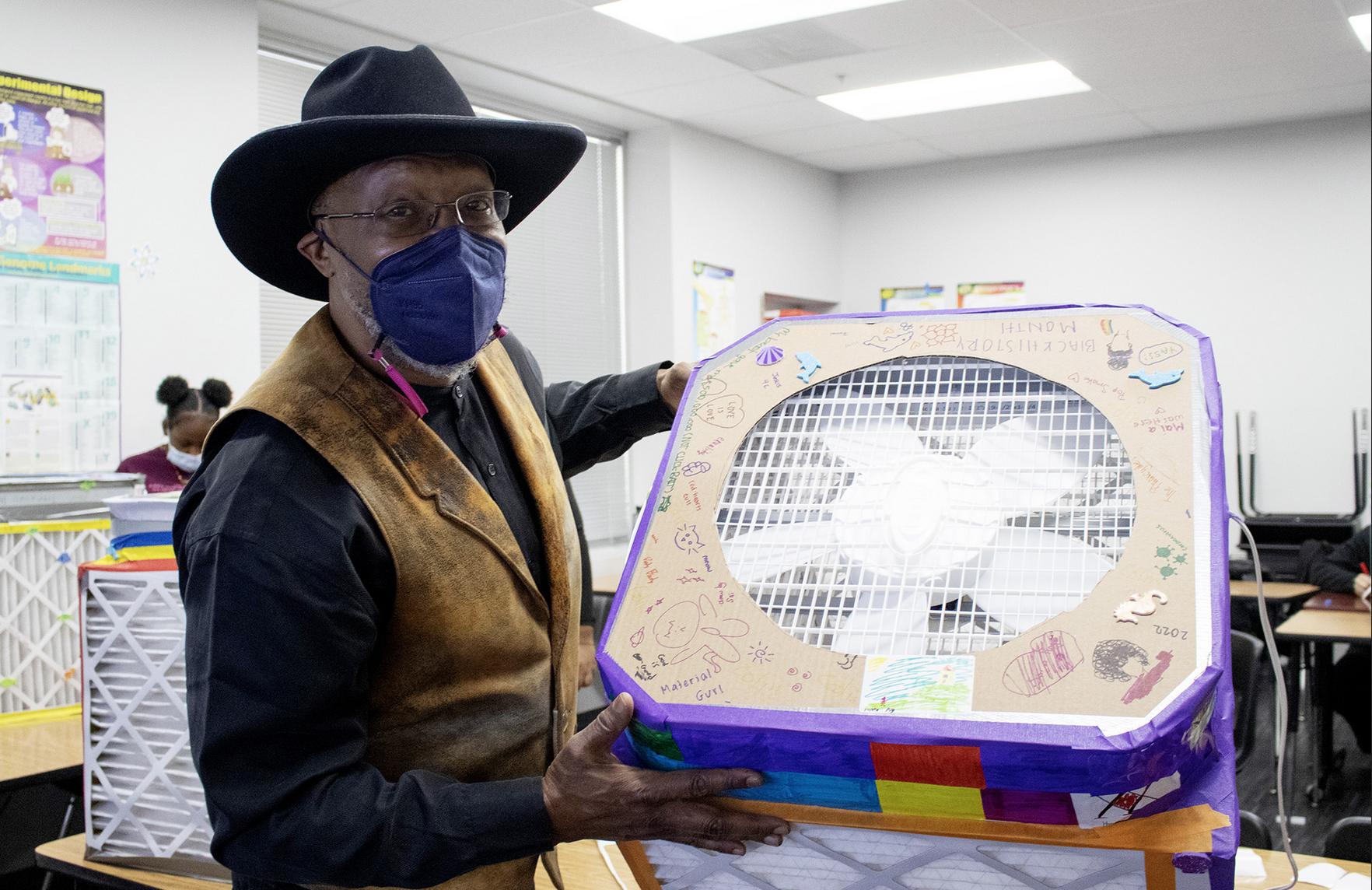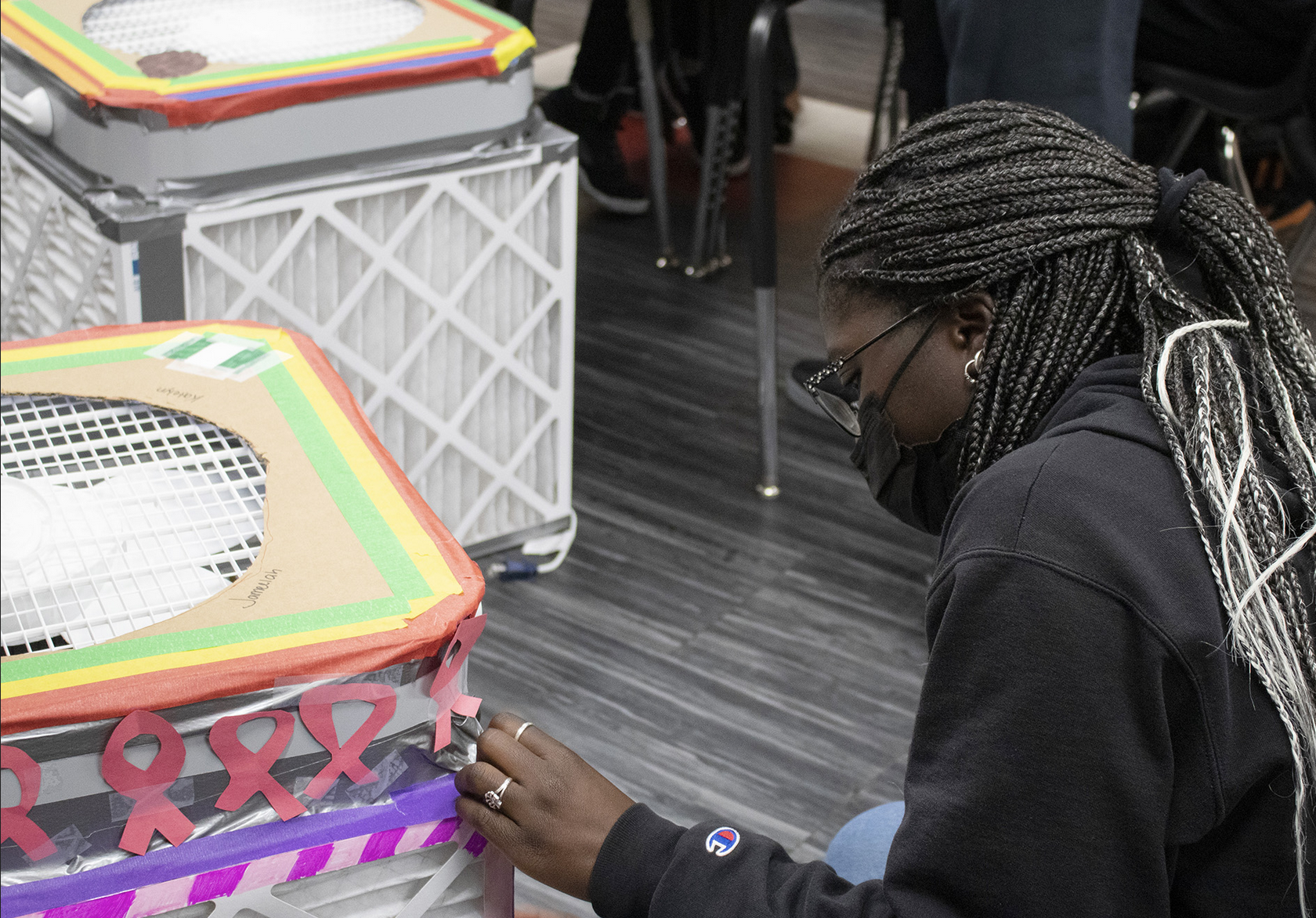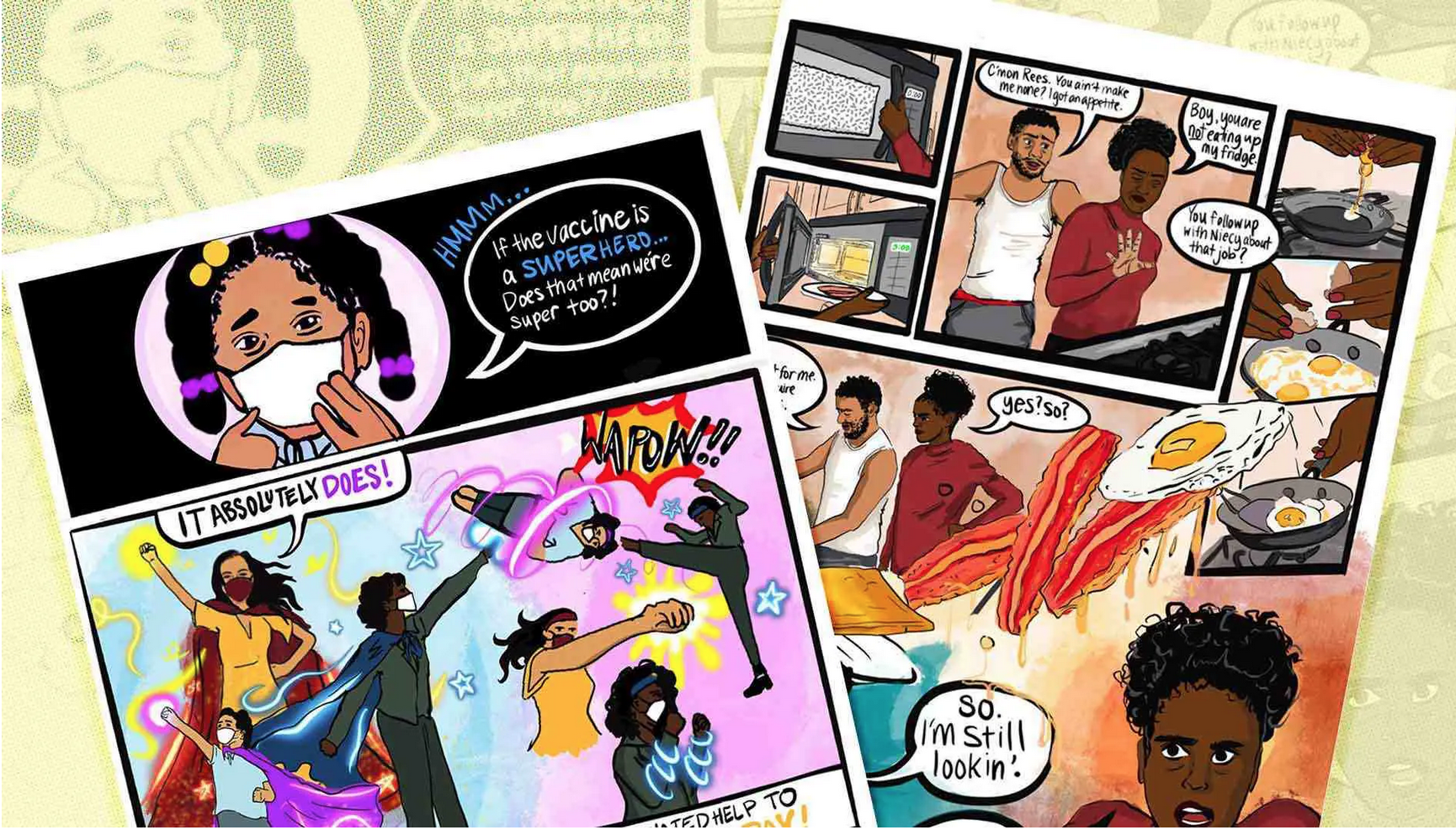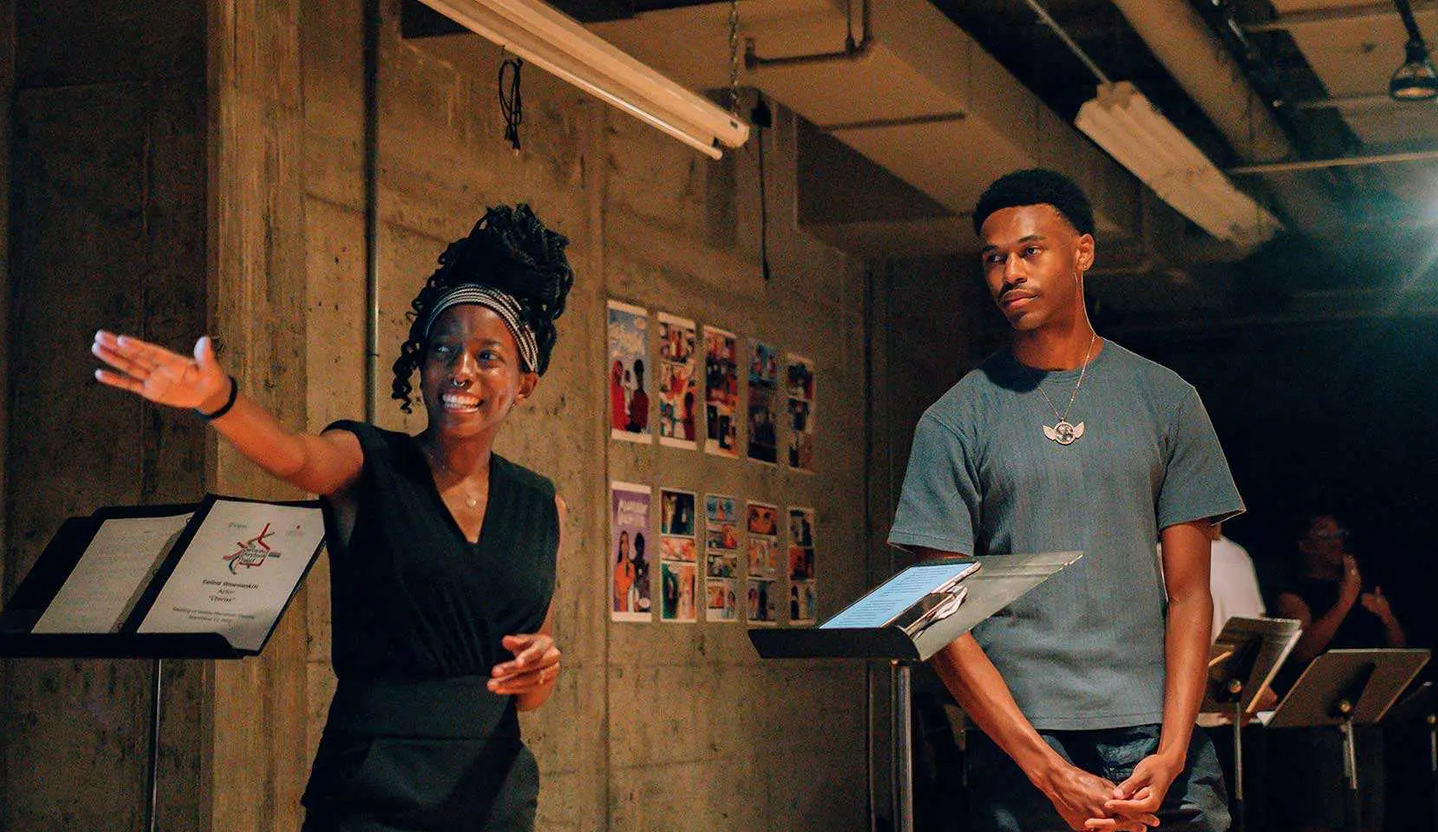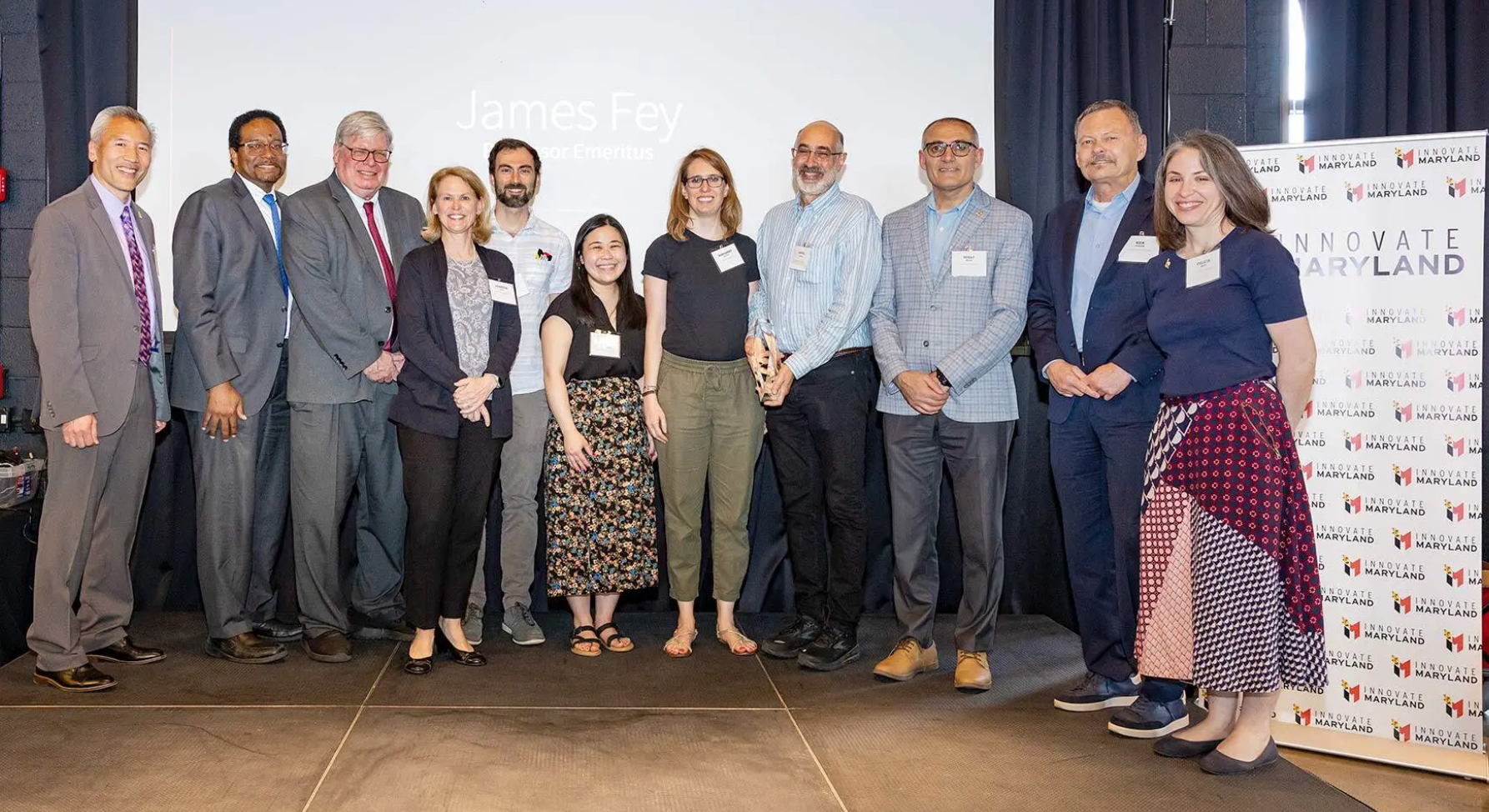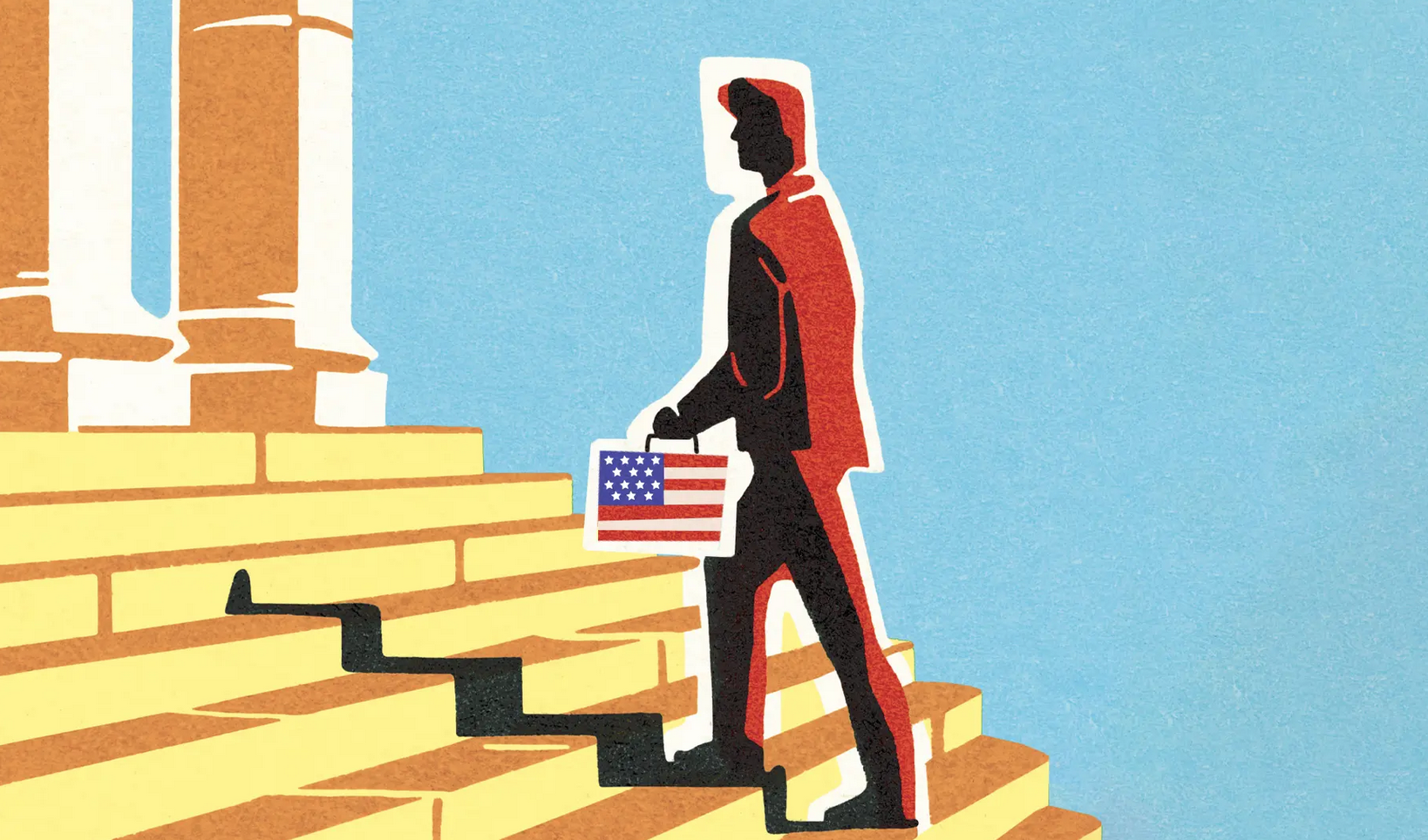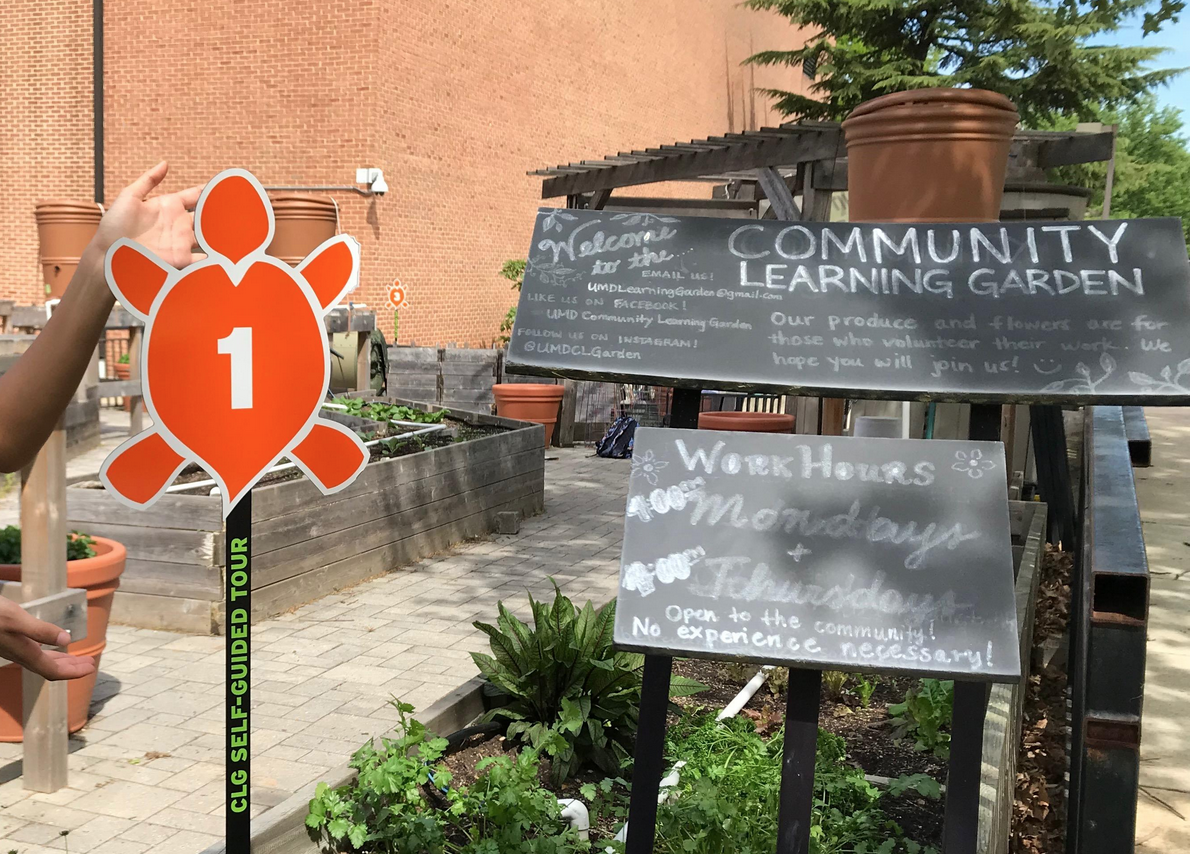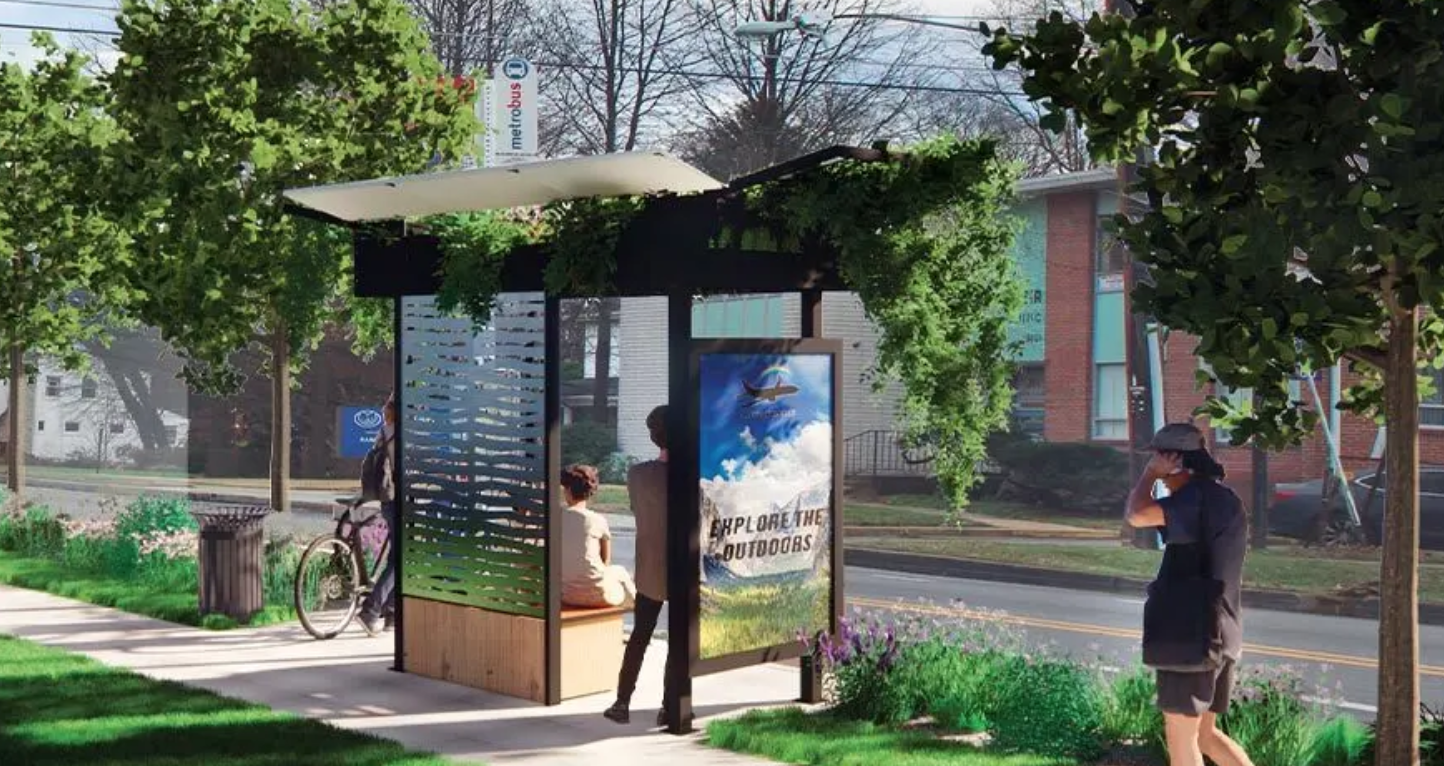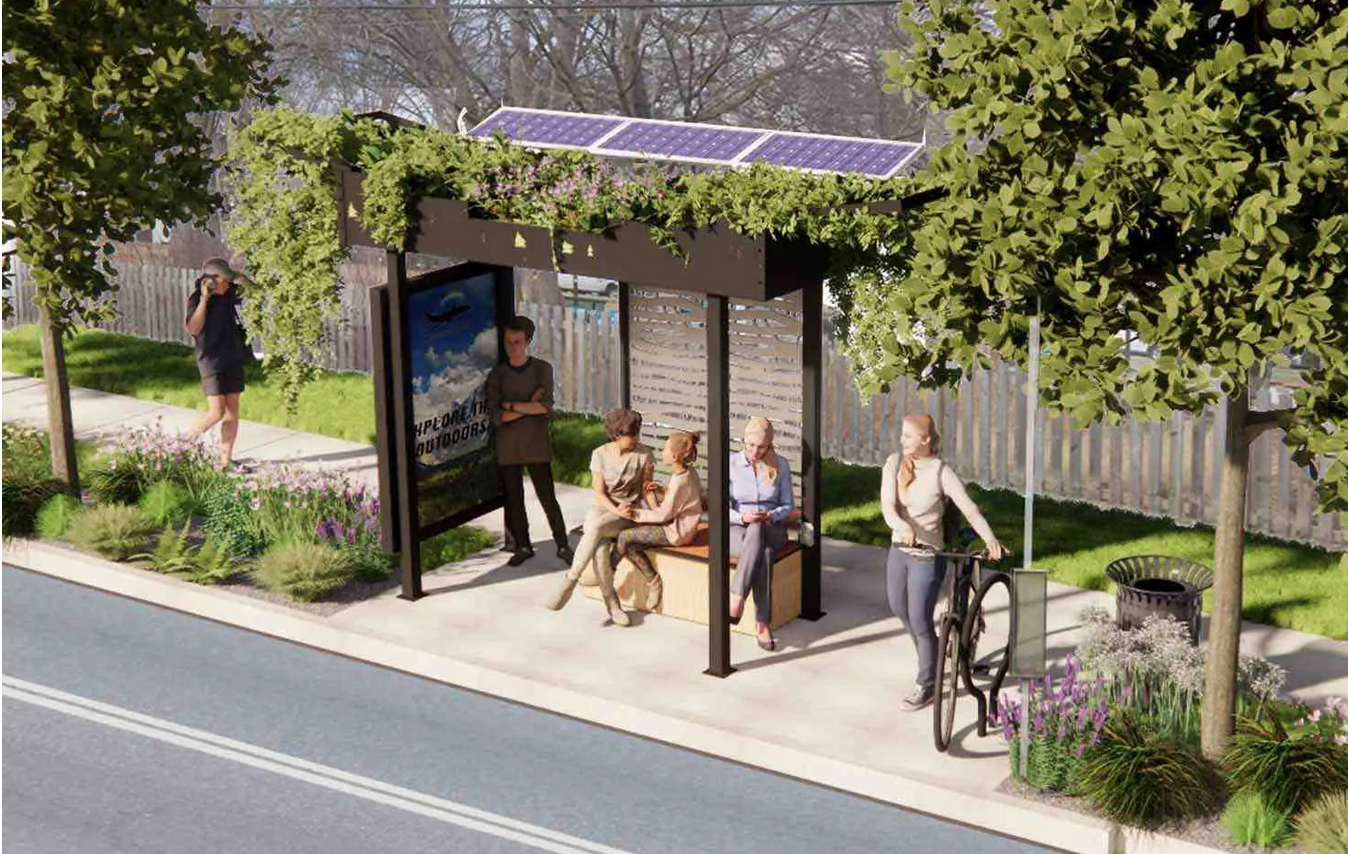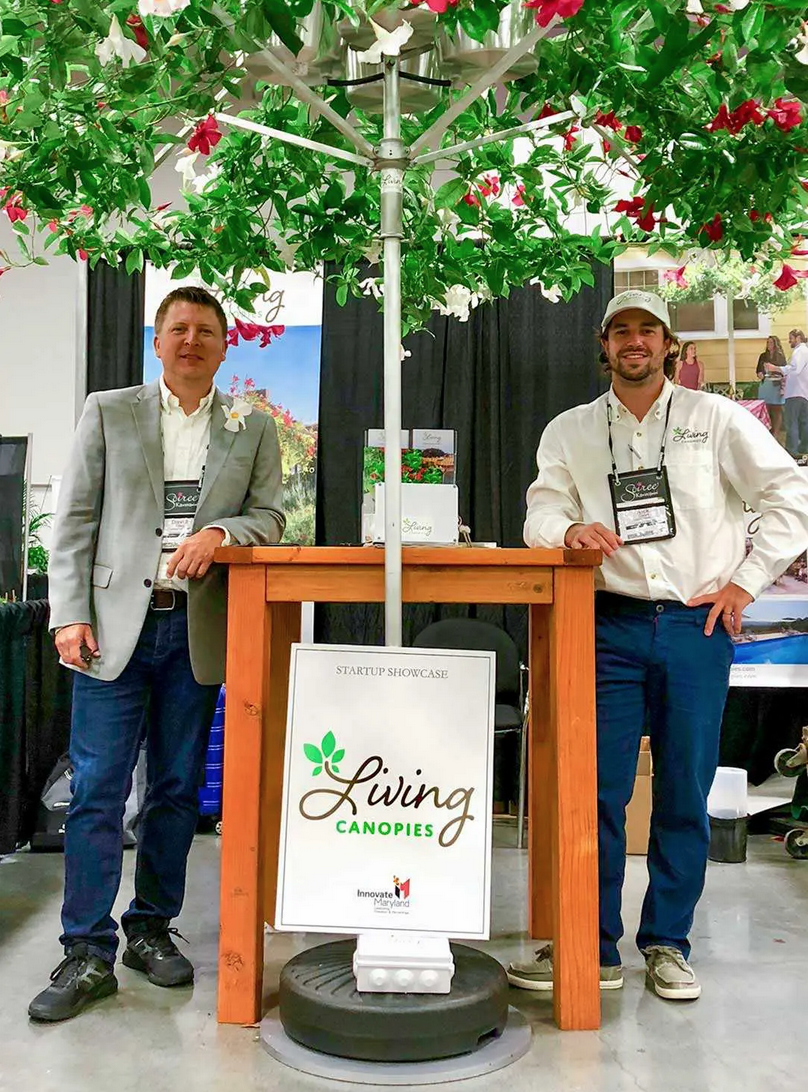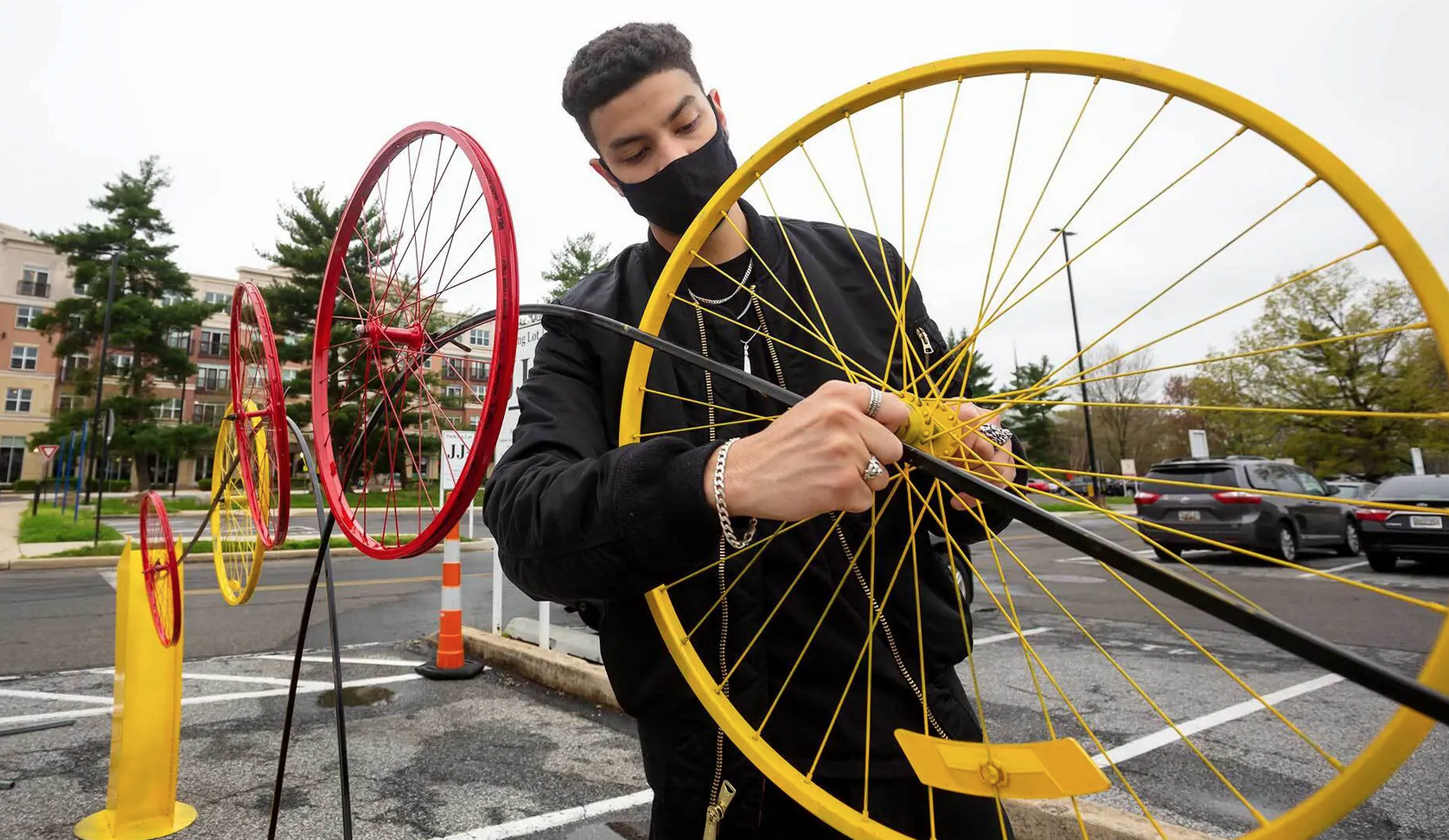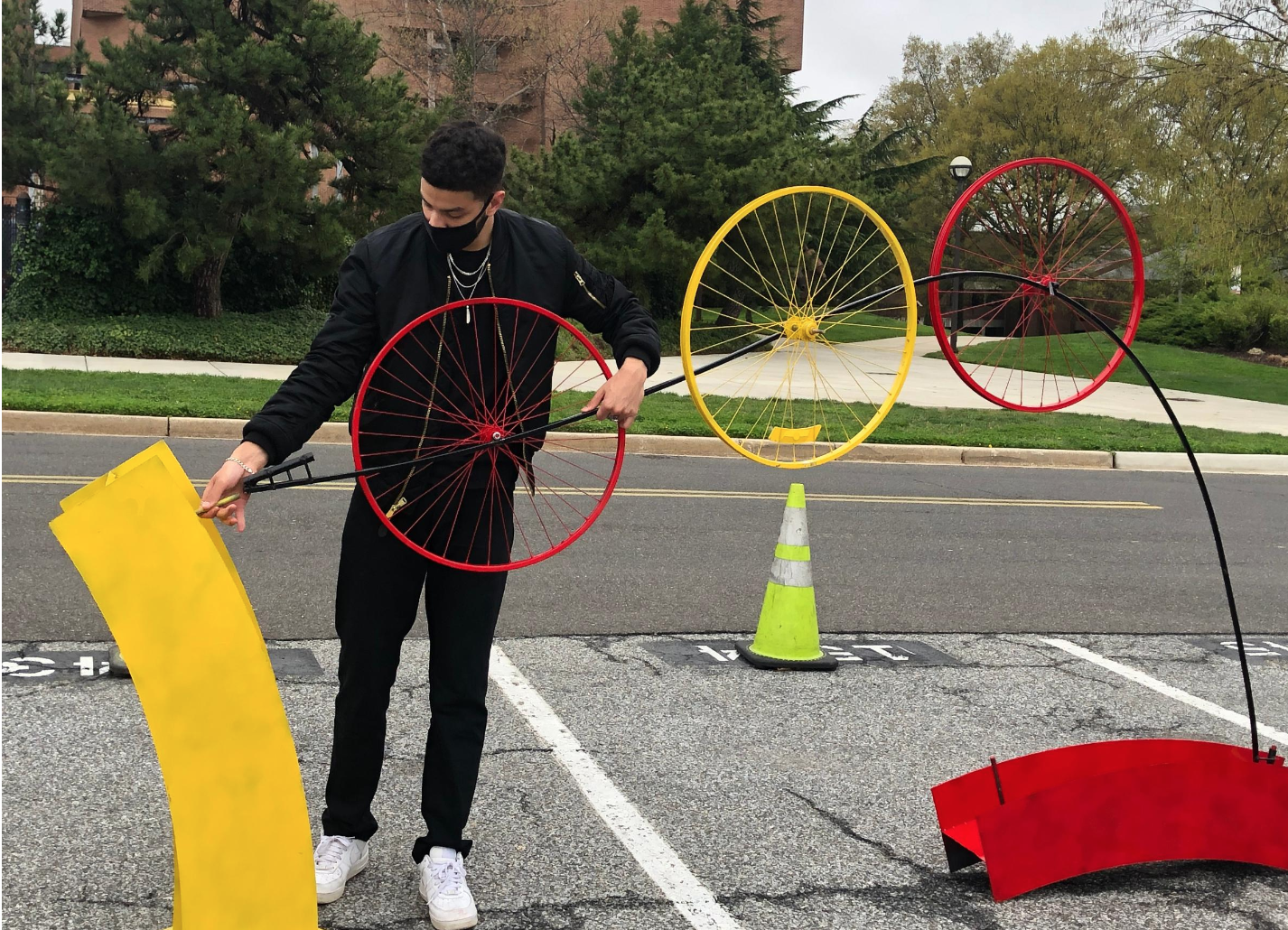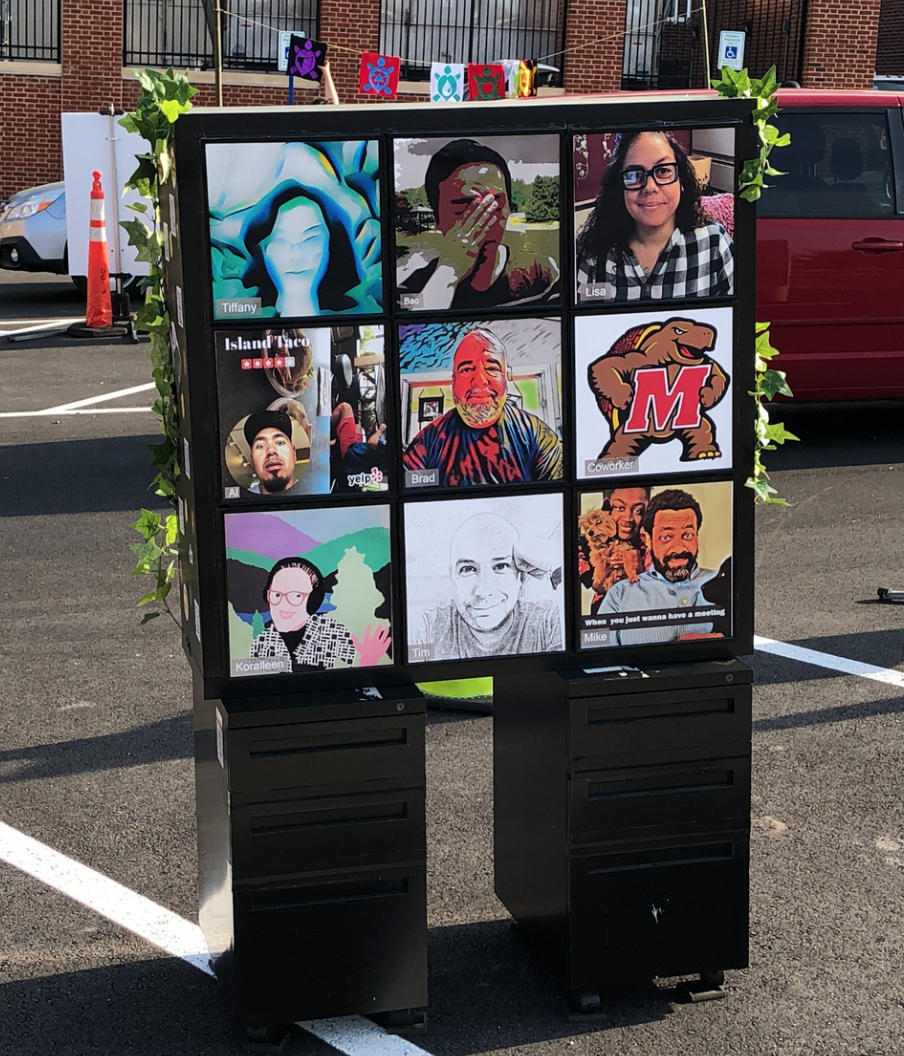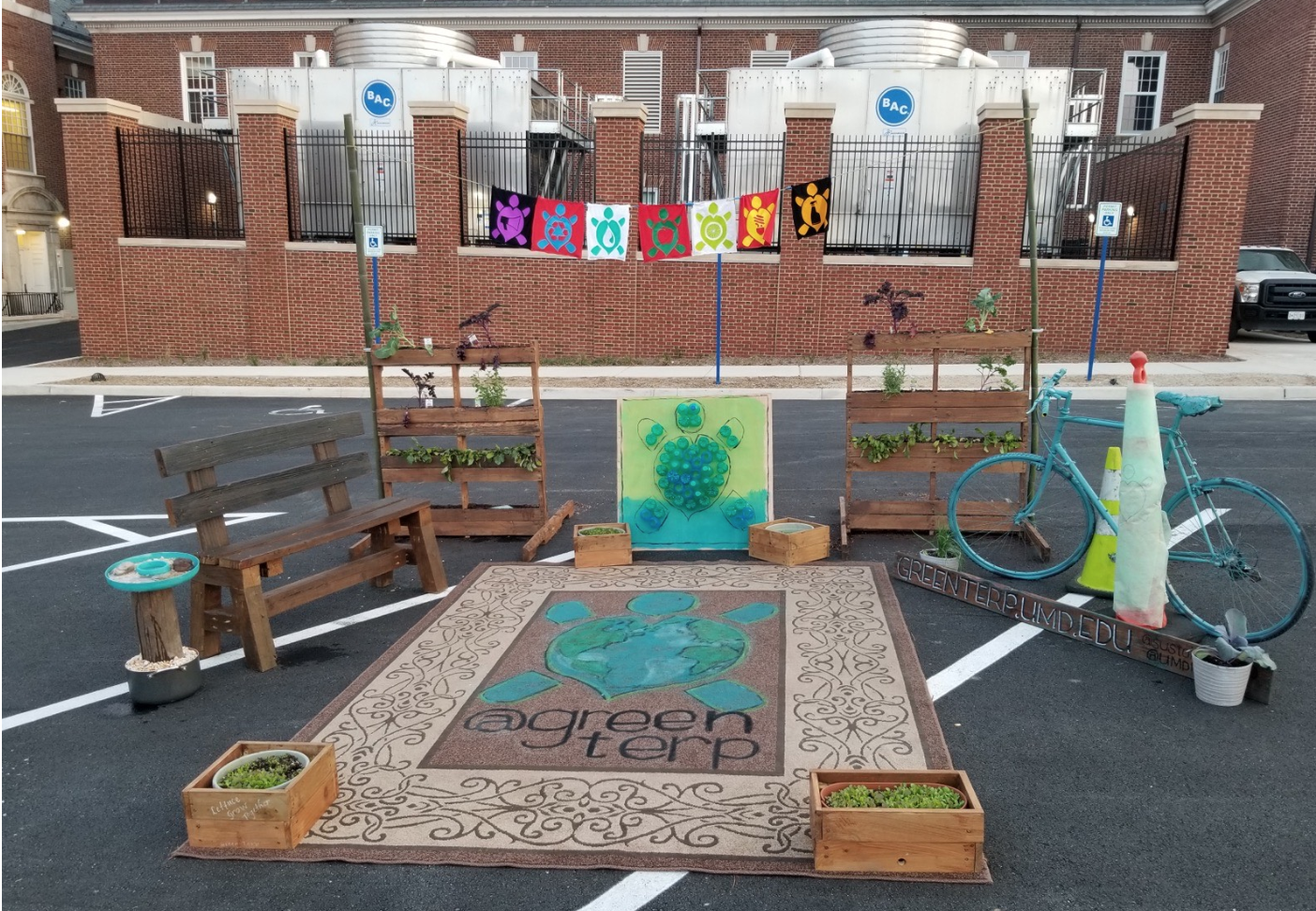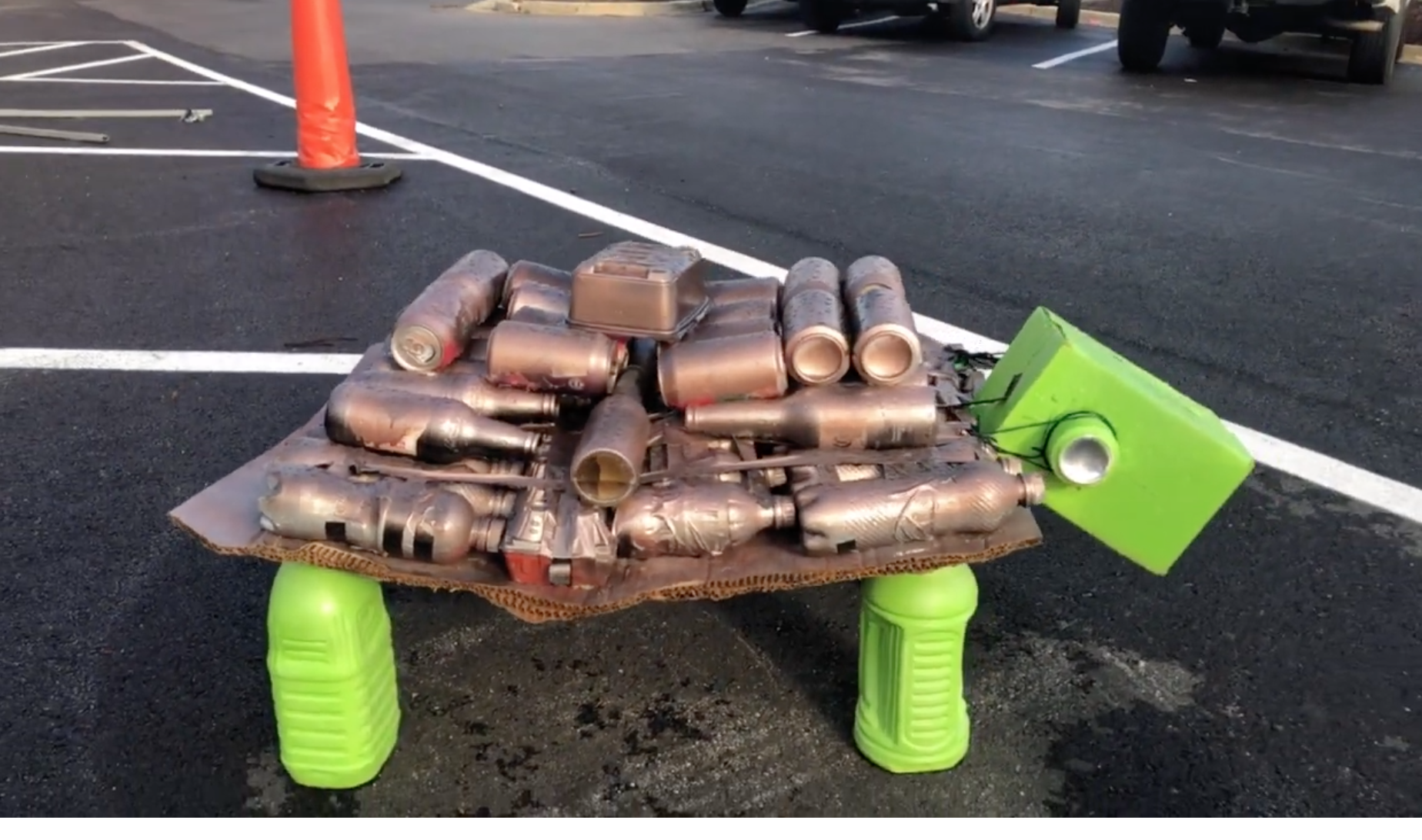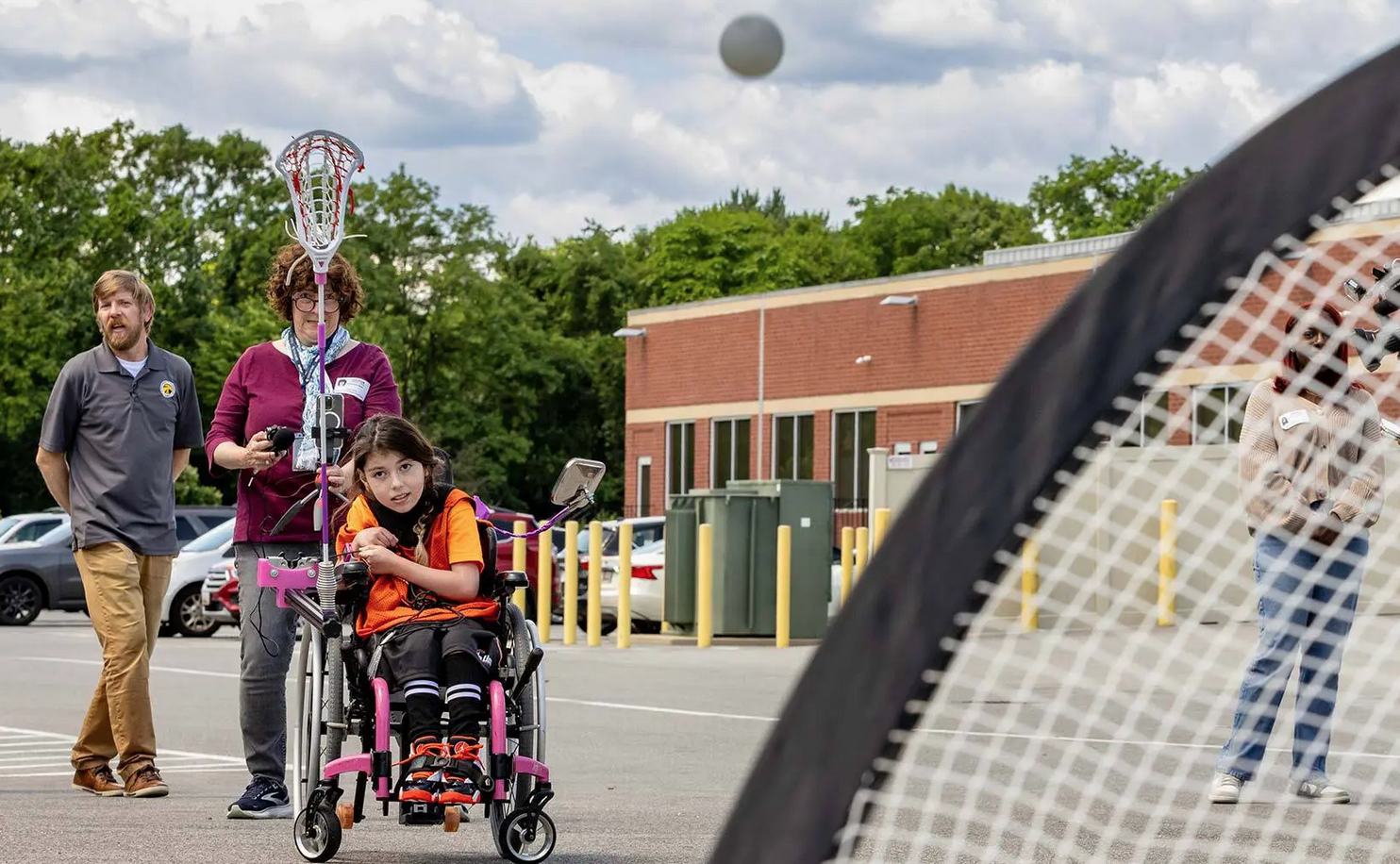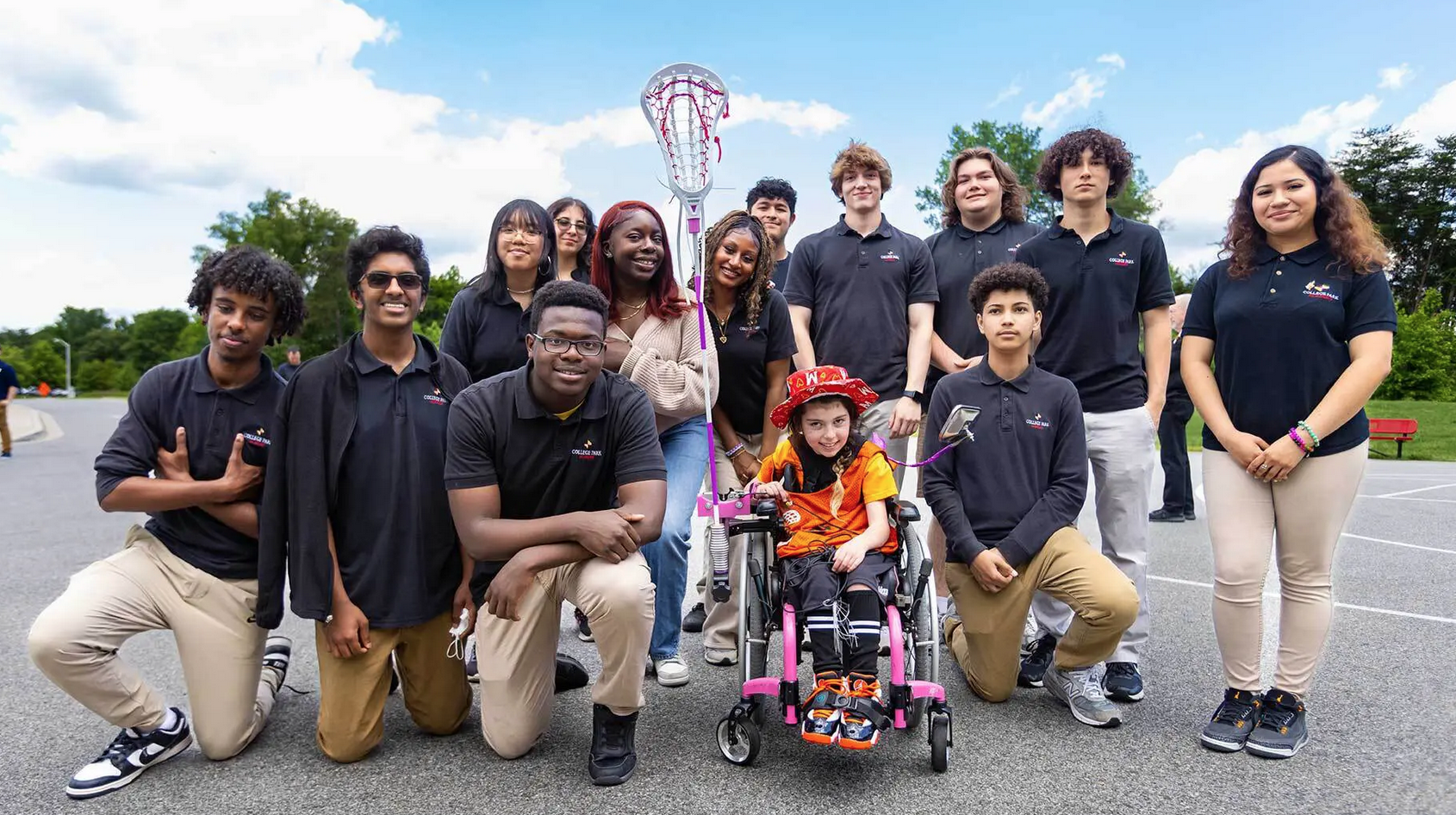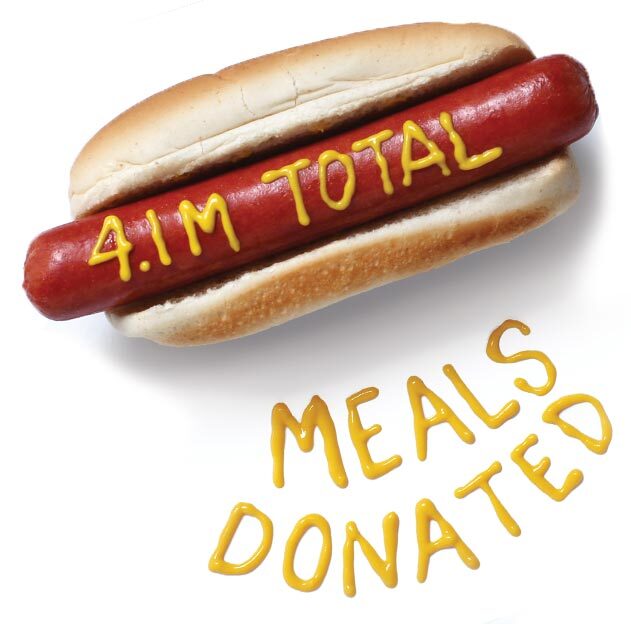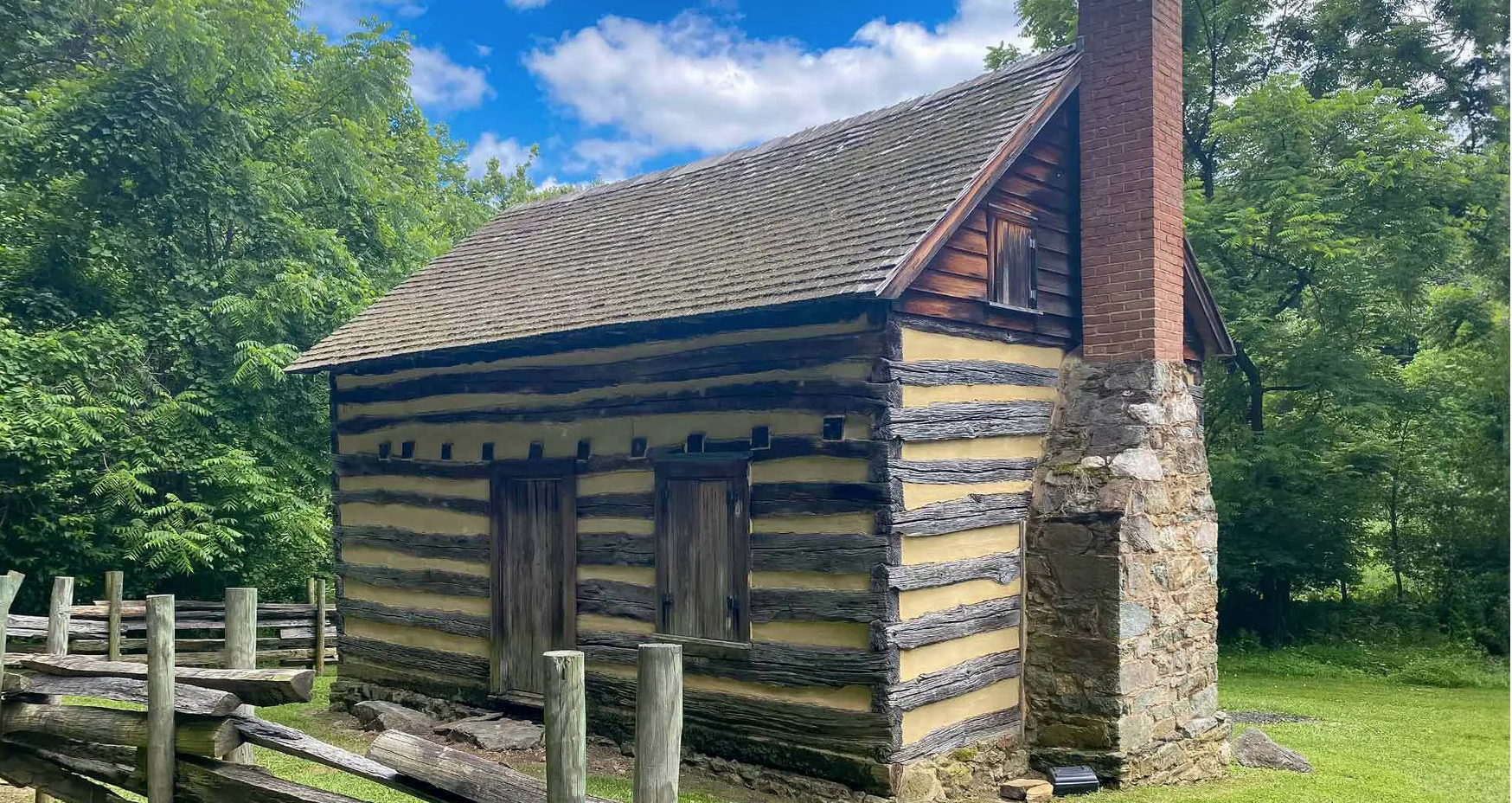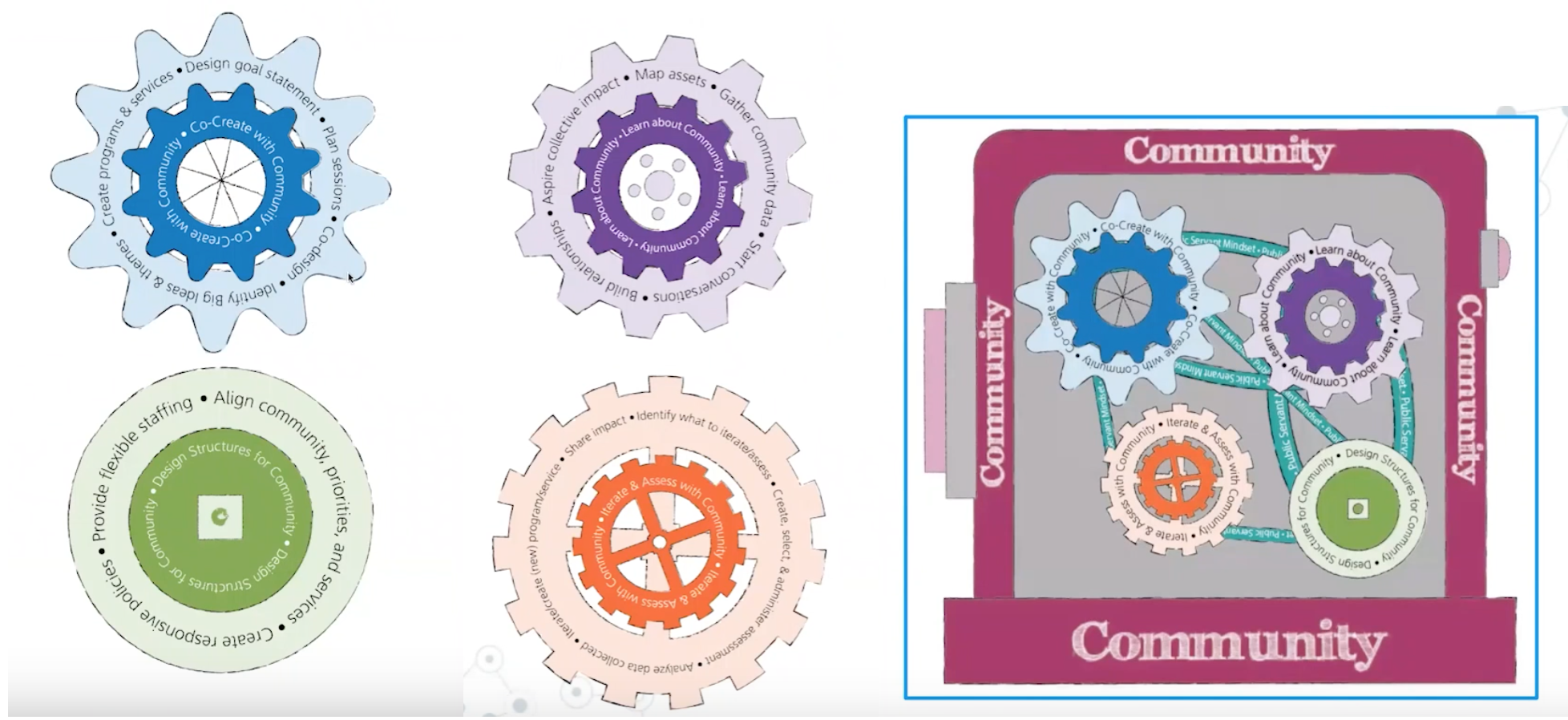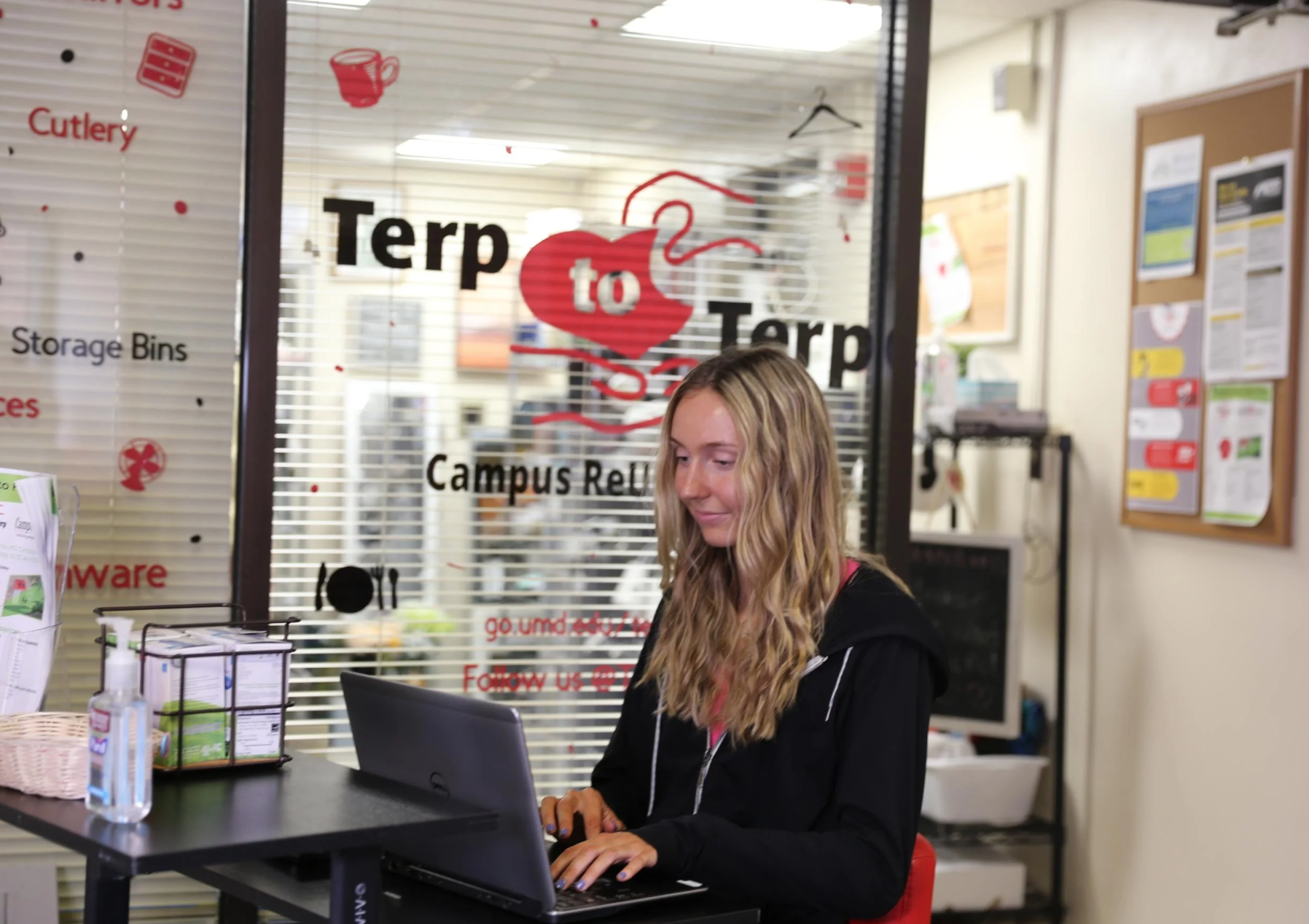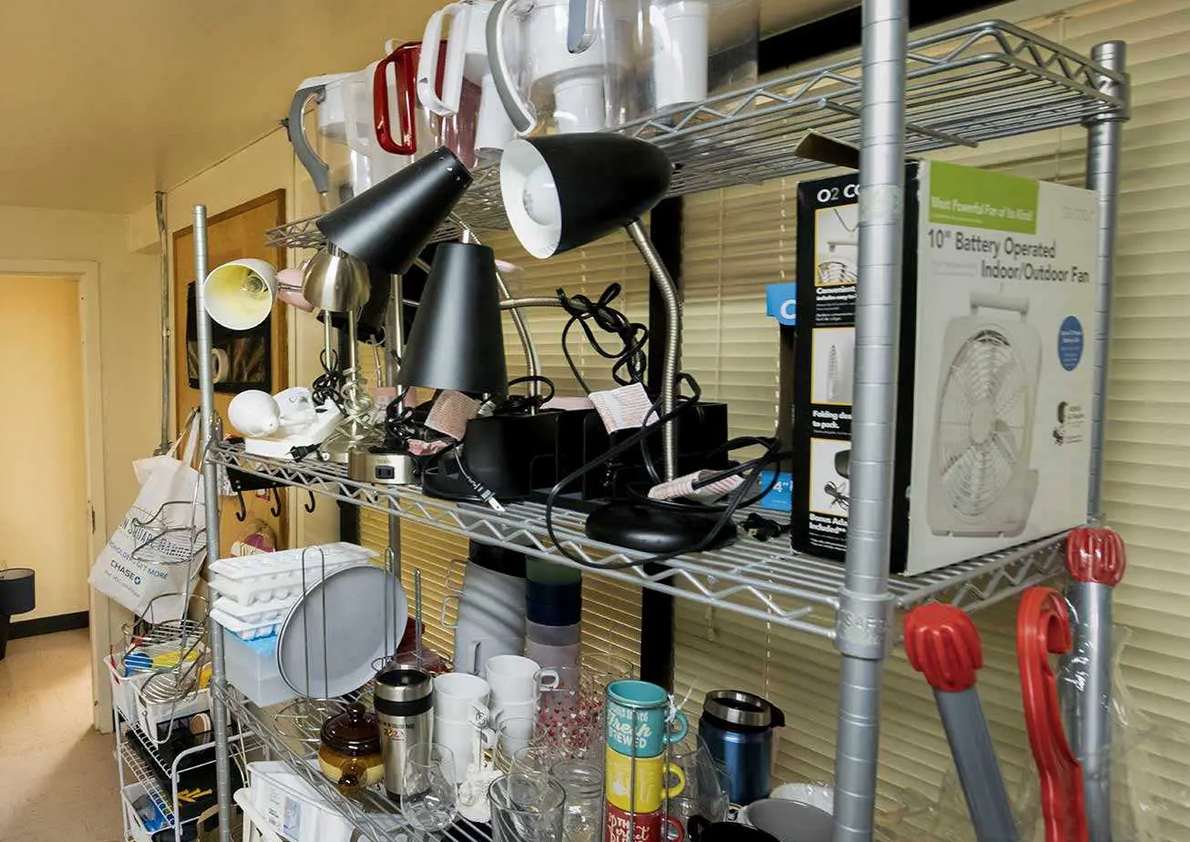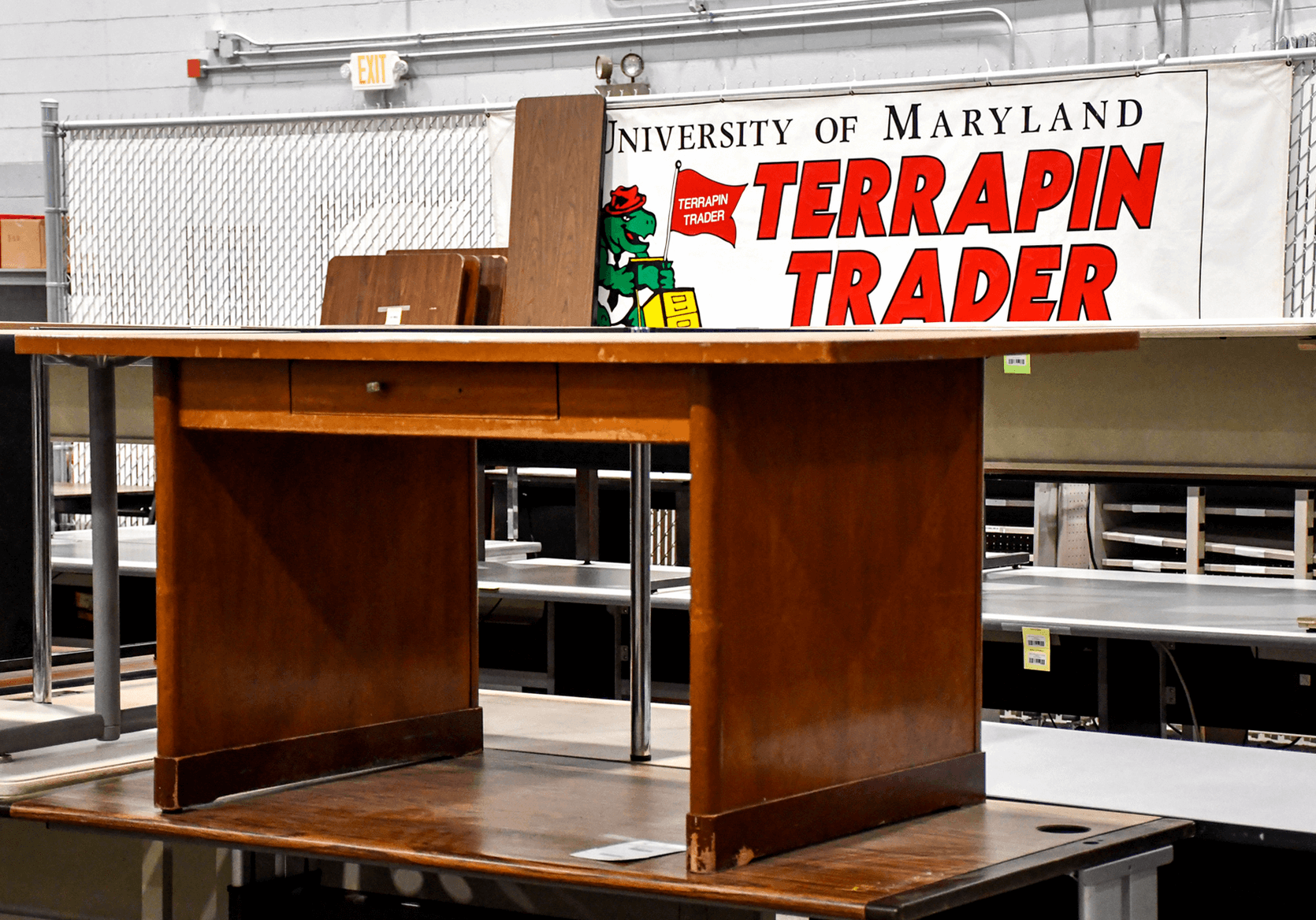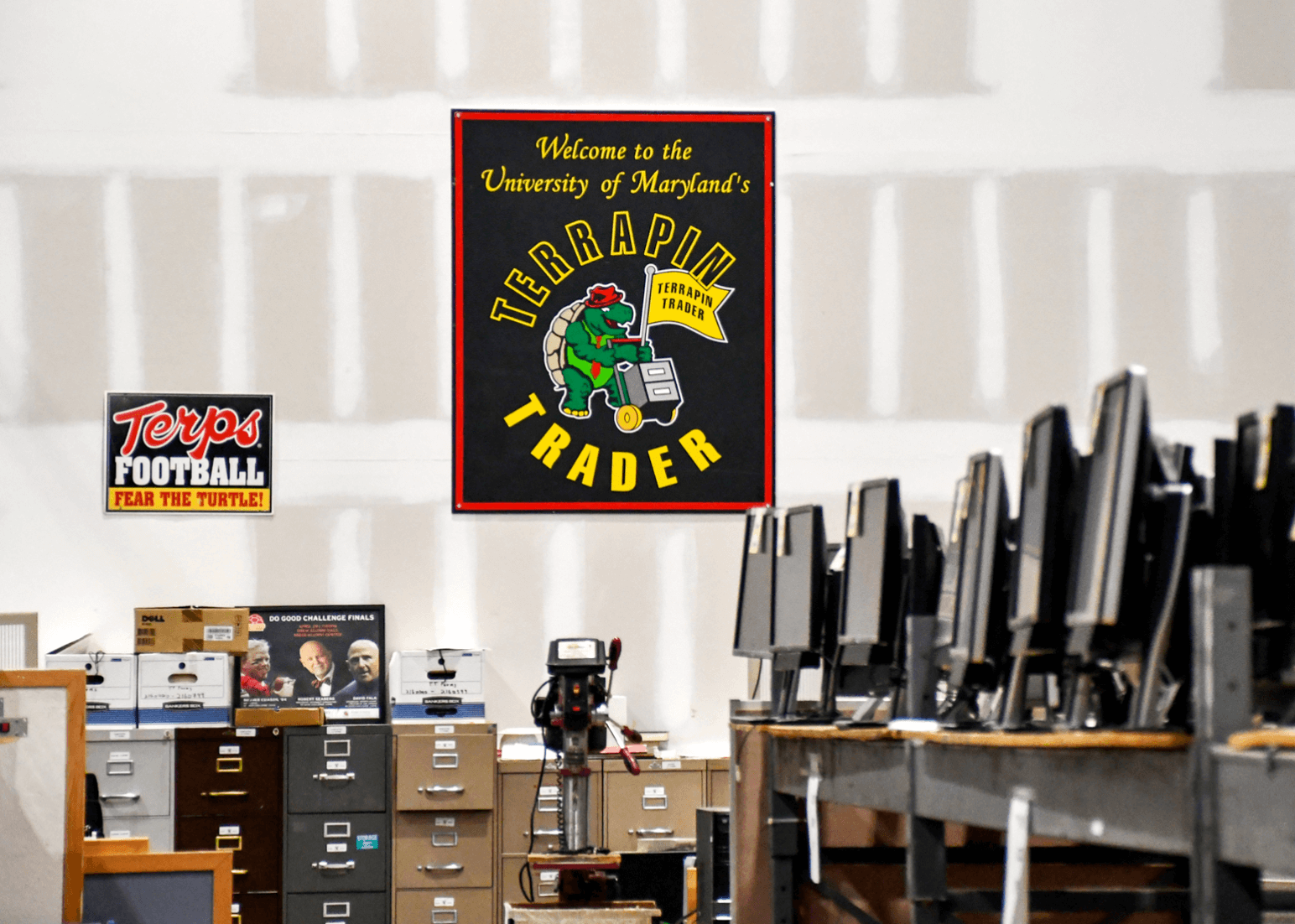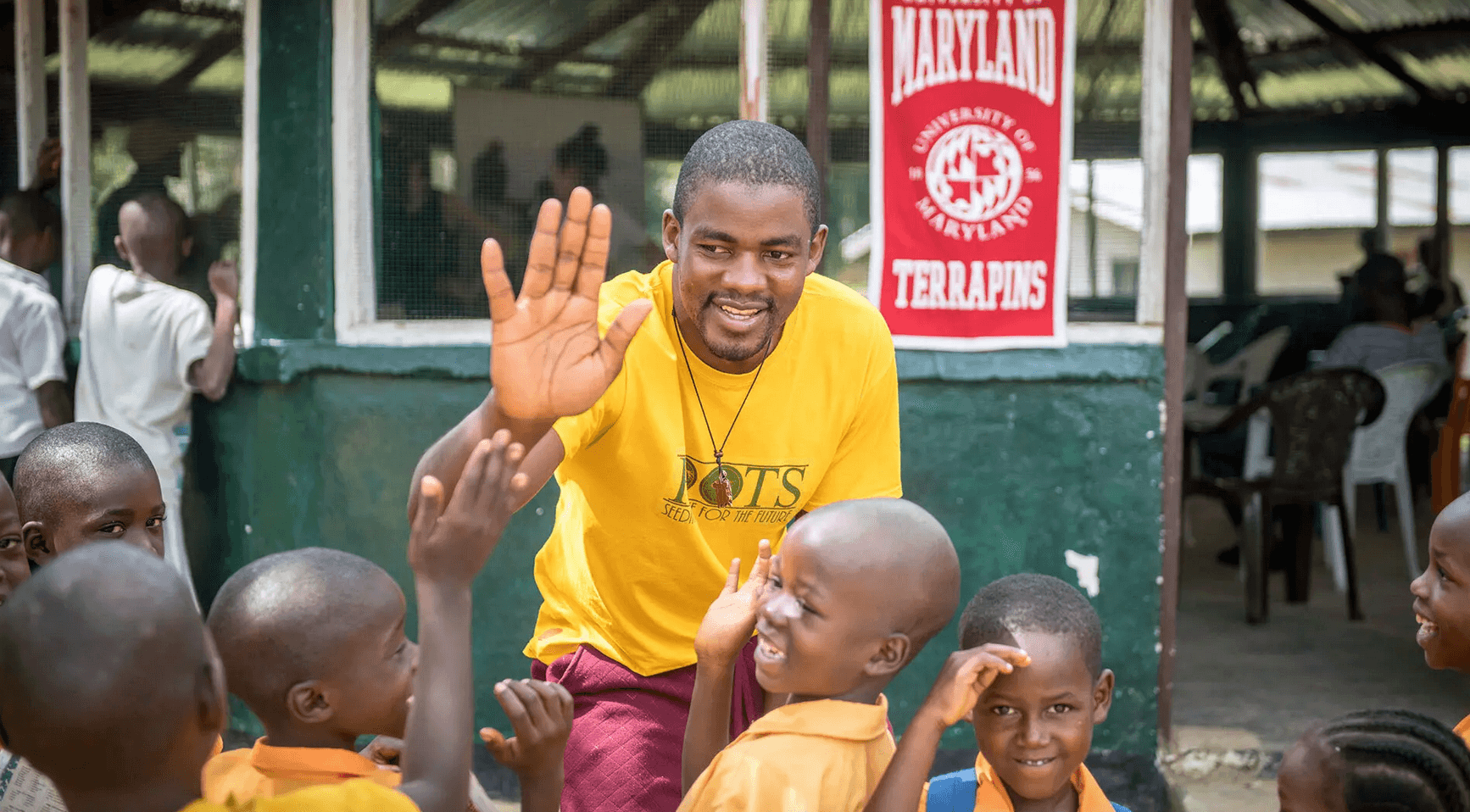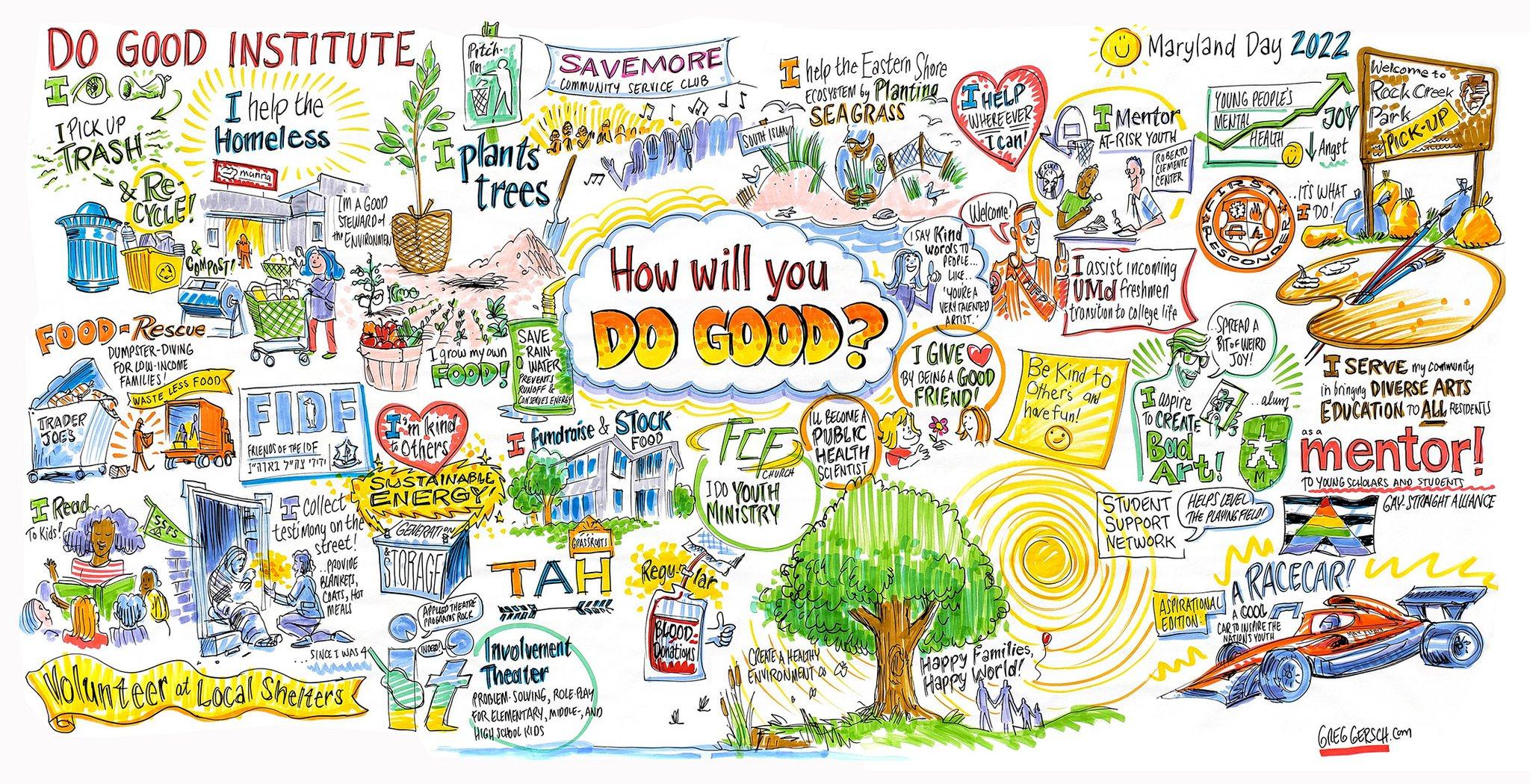
Social Innovation
University of Maryland students, faculty, staff, and alumni are addressing critical challenges on campus and around the globe by initiating, launching, and/or organizing socially-focused movements, projects, causes, nonprofits and ventures. These inspiring social innovators, social enTERPreneurs, and changemakers are activating their fearless ideas to positively impact the world for good.
Below you will not only discover the many resources - dedicated programs, funds, and more - available across the campus, but you will also find examples of social innovation in action, fellow social innovators and enTERPreneurs, as well as much more from international social innovation organizations to relevant content including articles, blogs, research, reports, and videos.
The content, stories, organizations, and individuals who are included are only a fraction of the social innovation examples that illuminate the efforts, initiatives, and people initiating social impact. The intent of this repository of resources is to serve as a digital hub for bringing greater visibility to the growing social innovation community at UMD and around the globe, sharing the variety and range of social innovation activities taking place, inspiring and activating more socially-focused efforts, and fostering a supportive and nurturing social innovation and inclusive entrepreneurship ecosystem across campus and beyond.
*Please feel free to submit any suggestions for this page to innovate@umd.edu.
UMD Resources for Social Innovators
Academy for Innovation & Entrepreneurship empowers University of Maryland students and faculty to become creative problem solvers by engaging them in innovation tools and mindsets.
The UMD Office of the President launched the Academy for Innovation & Entrepreneurship in 2013 with the mission to engage all UMD students in innovation and entrepreneurship. The Academy embraces a “learning by doing” mentality and actively engages learners (students, faculty, and staff!) in innovation tools and mindsets, such as Design Thinking and Lean Startup, to empower them to become creative problem solvers. We offer interactive courses, workshops, programs, and trainings.
The Academy for Innovation & Entrepreneurship teaches creativity and innovation tools and entrepreneurial mindsets to students, faculty, and professionals. Course offerings range from 1-credit classes designed to give a taste of creativity and innovation to 3-credit classes that provide in-depth, hands-on practice including how to coach others in innovation. We also partner with organizations on and off campus to apply these tools and mindsets to a particular real-world problem or challenge.
Check out various resources for Students, Faculty, and Staff.
Below are more programs and resources provided by the Academy:
- Asynchronous Innovation Tools & Mindset Training - Experience different innovation tools and mindsets through our asynchronous training, which is available to the UMD community through the Open Learning platform. Explore different “Big Ideas” related to innovation through highly experiential and hands-on activities.
- IDEA Courses - IDEA courses are designed to help students from across campus build their creative problem solving abilities and use design and innovation mindsets and skills to reframe how they work, approach problems, and collaborate.
- Innovation Fellowship - Graduate students and staff from any unit or department at the University of Maryland can join the semester-long Innovation Fellows program to learn innovation mindsets, tools, and processes that are relevant to their professional, academic, and personal lives.
- Innovation Studio @ NOI+F is an ongoing collaboration between the National Orchestral Institute and Festival and the Academy for Innovation and Entrepreneurship.
- Teaching and Learning Studio (TLS) is a week-long in-person workshop for university educators taking place at Stanford’s d.school, designed and facilitated in collaboration with the Academy for Innovation & Entrepreneurship.
- Teaching Tools - We want to support and empower YOU to use design tools and methods in your courses and your work! Embrace a "yes, let's!" and an experimenter's mindset and try out different tools and methods for yourself. Check out the teaching resources we have below.
- Try It Now! - Want to try something new? Here are some innovation skills and mindsets you can try right now by doing the interactive activities below to get a new perspective, bring an idea to life, and build confidence in talking to strangers.
App Development Club at the University of Maryland, a student organization that supports members by nurturing talent and bridging the gap to professional opportunities in tech. The students seeks out experiential projects for its talented students to work on next semester.
This club won the 2024 Do Good Challenge, and these students have worked with a variety of companies and organizations on app and software-related projects. Check out a few examples to get a better idea of their skills and experience:
- MITRE: Malware Identification Pipeline
- Praxis Engineering: Pattern of Life Application
- Children's National Hospital: Kapture
- U.S. News: Data Visualization and Organization
The Arts for All initiative partners the arts with the sciences, technology and other disciplines to develop new and reimagined curricular and experiential offerings that nurture different ways of thinking to spark dialogue, understanding, problem solving and action. It bolsters a campus-wide culture of creativity and innovation, making Maryland a national leader in leveraging the combined power of the arts, technology and social justice to collaboratively address grand challenges.
Arts for All’s mission is to humanize the world’s grand challenges and to center people-based, creative processes as we work collectively to investigate and address the issues facing our region, nation, and world. Arts for All is centered around four core pillars:
- We work to highlight and expand upon the strengths of our arts disciplines: music, theater, dance, visual art, creative writing, and design.
- We seek to ensure that every student at the University of Maryland has a meaningful creative experience by constantly moving our arts disciplines toward greater accessibility and representation.
- We promote arts-based, interdisciplinary research in partnership with engineering, the data sciences, and technology to ensure that all of our faculty and students develop as creative, collaborative thinkers.
- We leverage the community-building and community-transforming power of the arts in addressing regional, national, and global grand challenges, and we do so in ways that use the arts to promote equity and justice.
Arts Improve the Student Experience - We are prepared to address the growing student and industry demand to integrate the arts into student life, both within and beyond the curriculum, helping students access and amplify their creative talents and fostering collaborative and innovative thinking to solve problems.
Arts Create an Inclusive Environment - We are harnessing the power of the arts to spark civic dialogue, increase community engagement and activate social change.
Arts Advance the University - We are accelerating innovation, discovery and insights through collaborations among the arts, the humanities and the sciences through research, creative activity and technological innovation.
Arts for All provides various forms of Funding and Research Support:
Arts For All enhances and amplifies the expansive artistic landscape of the University of Maryland while encouraging our entire community to meaningfully engage with the arts. Arts For All funding opportunities support a vast array of artistic activities—from dance performances to visual art installations to live music—to create an ever more vibrant and expansive arts community accessible to all.
Research Support
The initiative provides funding for faculty and student grants, fellowships and the Sadat Prize for Music, Poetry, and Art. Beyond campus, Arts For All expands its impact by partnering with local arts organizations and facilitating student participation in national conferences through partnerships such as the Alliance for the Arts in Research Universities (a2ru). This ensures UMD students have opportunities to engage with and contribute to the greater artistic community.
The Center for Social Value Creation embodies a passionate mission: to educate, engage and empower the Smith community and the world through thought-provoking dialogue, thought leadership, and hands-on experience.
Gain hands-on experience in areas including ESG, the UN's Sustainable Development Goals, social impact, and more.
- Courses - CSVC is proud to provide engaging, immersive, and valuable courses to students at the University of Maryland. Each course has undertones of social innovation and impact, allowing students to think about how they can make the world a better place through business.
- Impact Consulting Fellowship (ICF) is one of CSVC’s most esteemed programs and has been running for over 5 iterations now. This unique program gives students of all levels at the University of Maryland the opportunity to provide hands-on, pro-bono consulting work within a team for B-Corporations, non-profit organizations, and for-profit impact-driven organizations in various industries.
- Case Competitions - CSVC hosts 12+ annual case competitions sponsored by leading corporate partners like M&T Bank, Snider Consulting Group, SECU, GE, and more. The competitions are focused on solving real social problems using business tools.
The world critically needs changemakers committed to understanding social issues and collaborating alongside their communities to foster meaningful change.
In Civic Engagement for Social Good (CESG), previously known as CIVICUS, freshmen and sophomores work with organizations addressing a range of societal challenges, including poverty, food insecurity, housing insecurity, child welfare, education, political activism, animal rights, and the environment. These students explore:
- Issues impacting local communities
- Organizations that are addressing pressing social issues
- Ways to engage in hands-on work in civic engagement
- Strategies for deliberative dialogue in a multicultural world
- Methods to leverage their strengths to make sustainable change
CESG coursework and community engagement activities operate in tandem, creating a synergy that enhances the overall student experience. Coursework provides an opportunity for students to explore the root causes of social needs and strategies for addressing social concerns that they see during their work in the community, while service projects and co-curricular activities create an environment for students to implement what they learn in the classroom.
As an interdisciplinary program, CESG students represent a wide range of academic interests and majors. Civic Engagement for Social Good encourages students to ground their work in their passions, academic majors, and professional interests.
Through their shared passion for social good and engagement in co-curricular activities, CESG students form a close cohort who develop strong friendships and support each other throughout their time at UMD.
Students are actively engaged in UMD, College Park and surrounding areas, and Washington, DC annually completing over 1,000 hours of volunteer work. Students can choose from over 100 projects per year with a wide array of partner organizations.
Design Cultures & Creativity (DCC), we bring together students from 46 different majors on campus from a wide range of backgrounds—not only with regards to racial, ethnic, sexual, religious, educational, mobility, and economic experiences, but also in terms of skills, talents, and interests. DCC fosters an open, collaborative, and social environment that encourages students to explore relationships between design, society, and creative practices.
We are passionate about emerging technologies and their impact on the world, and even more importantly, how our designs can make our worlds a better place for humans and all other living things to thrive. DCC students are innovative thinkers and makers who engage in research and collaborative projects on topics that engage issues pertaining to identity, connectivity, social justice, art, design, and all things creative in an era when digital media links us on a scale unprecedented in human history.
DCC's approach to design is grounded in community, leadership, and teaching. This program's mission is to teach design as a productive avenue toward making the world a better place for everyone in our community and the communities we care for. Our community responsibility therefore includes the social, environmental, and economic wellbeing of all the workers, students, teachers, neighbors, and companions that allow DCC to serve as a home for designing and creating more just, flourishing, sustainable worlds.
DCC Makerspaces DCC students have exclusive access to two spaces on campus to explore their creativity, work on design projects, and enjoy the company of their peers while playing games, making crafts, creating art and music, and more:
- DCC Makerspace, located in Prince Frederick Hall,
- Sound Studio, located in Taliaferro Hall
These spaces are hosted by Makerspace and Sound Studio Managers — a select group of current DCC students — who can assist visitors with projects and equipment. Throughout each semester, DCC alumni and invited guests hold workshops, and Managers organize activities for students to get to know each other and the resources in both spaces.
DCC Creative-in-Residence (CIR) program is an opportunity for DCC's most accomplished and engaged student leaders to extend their experiences in creative making, original research/publication, and mentoring, while making the most of the resources and community support that DCC has to offer. Designed for DCC alums who have advanced to their junior or senior year of study at the University of Maryland, the CIR program holds space for one student per academic year to pursue an extended creative project of their choosing.
The Do Good Institute offers hands-on experiences, funding opportunities, engaging curriculum, and effective programs that prepare Terps with the skills, experiences and resources to Do Good throughout their lives. Check out the ways you can get involved in our new student guide, linked below. And, explore the programs, classes, events and other opportunities more in-depth throughout our website.
Programs and Resources offered through Do Good:
- ChangeMaker Pathways is a 6-week experiential program primarily for first-year, second-year or transfer students. Explore ways that you can Do Good in your personal, professional and educational life through interactive and discussion-based workshops.
- Do Good Accelerator - The Accelerator plays host to a number of training, development and networking opportunities to enable promising nonprofits, projects and socially-minded businesses the chance to grow their reach and impact.
- Do Good Accelerator Fellows - A semester-long Fellowship program to support students transform ideas into impact, provides space, resources and opportunities to explore, test or scale up their idea, project or venture.
- Do Good Campus Fund - The Provost and the Do Good Institute, in collaboration with the Do Good Campus Strategic Leadership Council, will awards funding to faculty, staff and student groups.
- Do Good Challenge - Students from across campus spend the year advocating, fundraising, volunteering and developing solutions for pressing social issues. The Challenge culminates in a Finals event where six teams pitch their project or venture and the impact they've made for the chance to win a share of more than $20,000.
- Do Good Mini-Grants provide funding and project development coaching for student-led and student-run projects, ventures, or events that aim to create a positive social or environmental impact.
- Impact Interns is designed to provide social impact organizations with knowledgeable and skilled interns and to provide emerging student leaders with meaningful opportunities to gain professional experience in the social impact sector, develop skills, build a professional network and learn about local community needs.
- Provost's Do Good Innovator Awards recognize and celebrate the staff and faculty across UMD’s Do Good Campus who have been hard at work tackling the grand challenges of our time.
- Research and Publications - The Institute activates signature research and thought leadership that will shape the design of our hands-on, educational initiatives and spark approaches and actions that create a better world. Our domestic and global research efforts address key gaps in the existing knowledge on philanthropy and address important questions essential to the future.
- Scale Your Impact - This signature program provides customized support and financial resources to students and alumni looking to extend their reach and create a larger social impact. Scale Your Impact is seeking groups who have already begun implementation, have had success to date, and are ready to scale.
Hack4Impact UMD is the University of Maryland, College Park chapter of the national Hack4Impact organization, a student-run 501(c)(3) dedicated to building software for social impact. We are a student-run organization that empowers engineers, designers, activists, and humanitarians to create lasting social change.
The club focuses on using tech skills for helping the community while introducing students to a professional working environment and other post-graduation options compared to industry and academia.
Each year, we partner with nonprofits to help them better serve their communities.
Nonprofit organizations are the pillars of our community; they focus on a variety of social issues, and Hack4Impact-UMD focuses on helping these organizations with any of their technical needs to improve the effectiveness of their work. Apply to work with Hack4Impact.
We strive to prepare students for socially conscious roles in tech while creating a supportive community. At Hack4Impact-UMD, students have the opportunity to develop real-world skills such as understanding the Agile methodology and working with team members like product managers, UI/UX designers, tech leads, and engineers. Student interested in joining Hack4Impact can apply online.
Read more about Hack4Impact's recent social impact activities in this Maryland Today article: Website Help for the Helpers
Contact Hack4Impact UMD at umd@hack4impact.org to get in touch.
The Maryland Center for Health Equity (M-CHE) was established with a central commitment to improving the health of residents in the state of Maryland.
Our primary focuses are to:
- Eliminate racial and ethnic disparities to achieve health equity among residents in the state of Maryland, and
- Increase the inclusion of racial and ethnic minorities in health research through our Building Trust Initiative.
Our Mission is to advance the elimination of health disparities and achievement of health equity through innovative research, teaching and service.
Our Vision is a world in which everyone has an equitable opportunity to live a healthy life.
Our Values—building community capacity, diversity and inclusion, the pursuit of excellence, action, innovation, and collaborations and partnerships—inspire our work, how we interact with each other and the strategies we employ to fulfill our mission.
The community engagement efforts of the M-CHE reflect our commitment to develop and sustain active community participation in research and the intersectional action taken by community members outside of the traditional medical care arena as one means to address the structural determinants of health (e.g., poverty, institutional factors, policy factors).
Here are some of the M-CHE Community Engagement and Social Impact Projects:
- Barbershop Storybook Project series seeks to translate public health research into relatable storylines and champion principles of human-centered design
- Changing Hearts and minds About Institutional Racism (CHAIR) project is extending the reach and scalability of trusted Black barbers/stylists using human-centered design and innovative technology to catalyze community-driven collective action promoting health and racial equity.
- Health Advocates In-Reach and Research (HAIR) - The primary aim of HAIR, a community-based intervention, is to create an infrastructure to engage barbershops and beauty salons in Prince George’s County, Montgomery County and Baltimore City as culturally relevant portals for health education and delivery of public health and medical services in the community.
- Mid-Maryland Mission of Mercy and Health Equity Festival (MID-MD MOM) is a free adult dental clinic with wraparound healthcare services. More than 800 clinical volunteers, including licensed dental professionals and 500 general volunteers provide a projected $1.1M of free dental care and thousands in health screenings over three days to more than 1,000 underserved, uninsured and underinsured adults.
- Shots at the Shop is a program to engage 1,000 Black-owned barbershops and hair salons nationwide to act as health advocates. Participants assist their clients in making informed COVID-related decisions, dispelling misinformation and hosting COVID-19 vaccination clinics in their shops
- The Cutting Edge: All Things Health and Wellness - The show began as a community resource during the chaos of the pandemic, and has bloomed into so much more. Our hosts Mayor Omar Neal and Director Stephen B Thomas create lively conversation spaces about race, health, history, and get real about what we need to do to progress in health equity.
The Maryland Creative Placemaking Collaborative (MCPC) is a movement of practitioners, academics, policymakers, and community stakeholders interested in building thriving and resilient communities.
"Creative Placemaking is an evolving field of practice that intentionally leverages the power of the arts, culture and creativity to serve a community's interest while driving a broader agenda for change, growth and transformation in a way that also builds character and quality of place." - ArtPlace America.
MCPC advances creative placemaking in our communities by:
- Developing academic programs.
- Supporting place-based creative work, scholarship and research.
- Hosting cross-disciplinary, cross-sector conversations.
MCPC seeks to weave the independent activities of stakeholders, practitioners, and institutions into a collaborative, unified effort to strengthen communities. MCPC leverages the unique expertise of the University of Maryland — programs in the arts, architecture, urban planning, preservation, transportation, public policy and more — to confront issues including loss of cultural heritage, climate change, gentrification, unequal economic development and lack of public safety. We work locally, but with a national and global perspective. As a land grant and teaching institution, we prioritize the communities around us and the next generation of practitioners who will serve them.
The Maryland Initiative for Digital Accessibility (MIDA) combines the expertise and passion of researchers, designers, developers and educators from multiple disciplines at the University of Maryland with a united goal of making digital technologies accessible for all.
MIDA aims to involve the disability community, private and public partners, and anyone interested in accessibility issues, in technology development projects, public outreach programs and advocacy. We will collaborate with others to proactively build in accessibility when developing new technologies – known as the “born-accessible” approach.
MIDA has five high-level goals:
- Building a community of faculty, staff, and students across the University of Maryland (UMD) who are passionate about digital accessibility
- Creating opportunities for UMD to engage with external stakeholders including disability rights groups, technology companies, and policymakers
- Developing technology projects to improve accessibility and demonstrate the born-accessible approach to design
- Fundraising to further support MIDA’s mission
- Increasing awareness of digital accessibility through public events and programming at UMD.
MIDA is the organizational home for the:
- Including Disability Global Summit is an international forum for dialog and collaboration about large-scale societal, technological, political and other barriers that challenge disabled people.
- Including Disability Journal is a peer-reviewed, online, open access journal that provides cross-disciplinary, cross-disability, and cross-sectional examinations of large-scale social, technological, cultural, and legal barriers faced by disabled people and offers innovative approaches to eliminating these barriers.
MIDA News
- A New Way to Make Digital Technology Accessible to All - A Grand Challenges Q&A with Gulnoza Yakubova: Associate professor in the College of Education, Gulnoza Yakubova is a co-principal investigator of MIDA. She explains how digital accessibility can increase equity for people with disabilities and...
- An Ally for Access - Palm-sized Robot Navigates Touchscreens for Visually Impaired Users. Having to tap-tap-tap away to order a sandwich or check bags at a touchscreen kiosk can be annoying. For those who are blind or visually impaired, it...
- Recent study finds people with dementia use changing information behaviors when seeking health information - INFO Assistant Professor Amanda Lazar and a team of researchers studied how people with dementia search for health information after diagnosis. In a study published last year, College of Information Studies (INFO) assistant professor and member of...
- UMD Tech Tool Aims to Make Workplaces More Inclusive for Autistic People - Video Platform Designed by Neurodiverse Team Could Improve Communications for All. A new communications platform in development at the University of Maryland could increase employment opportunities for the autistic community by helping individuals navigate the...
- Stephanie Valencia-Valencia Explores How Large Language Models Can Accommodate People with Disabilities - The INFO assistant professor studies the benefits and limitations of technology in aiding communication.
- Maryland Initiative for Digital Accessibility (MIDA) informs public policy on technology accessibility for people with disabilities - Jonathan Lazar provided testimony about digital accessibility to the U.S. Senate Special Committee on Aging and MIDA provided comments to the rulemaking related to web and mobile app accessibility under Title II of the Americans...
- News Release: Maryland Initiative for Digital Accessibility (MIDA) Launches - Led by the UMD INFO College, Maryland Initiative for Digital Accessibility (MIDA) aims to change technology design to include disability communities as equal partners, proactively building in accessibility.
UMD has established a vibrant campus ecosystem that nurtures and supports innovation and entrepreneurship. Through the efforts of a remarkable and diverse set of campus partners, the University offers faculty, staff, students, alum, and regional partners a broad variety of resources to help them learn about and actively engage in all aspects of innovation & entrepreneurship and economic development. With respect to social innovation, the Office of Innovation offers the following resources:
- Innovation Gateway is an all-in-one guide to help you plug in to the University of Maryland innovation network. It’s a one-stop shop that connects faculty, students, alumni, industry, and investors with the resources they need to develop fearless ideas and transform them into new ventures. Access everything from online classes to workshops, startup mentors to industry experts, business fundamentals to market research, competitions to investment funds, and much more.
- UM Ventures College Park is responsible for knowledge and technology translation and commercialization including creation of patents, IP, and startup companies and social ventures that solve problems in the market and in the community. UM Ventures is a joint initiative of the MPowering the State Program, bringing the University of Maryland, Baltimore and University of Maryland, College Park together to commercialize discoveries, and create economic and social impact.
- Faculty Startup Program provides a general outline for designing a path to success specific to your needs.
- Startup Process Concierge - The UM Ventures College Park team's goal is to empower UMD faculty and graduate students to transform their research into successful startups by providing resources and customized guidance through rich entrepreneurship ecosystem at the University of Maryland and the State of Maryland.
Partnership for Action Learning in Sustainability (PALS) is administered by the National Center for Smart Growth at the University of Maryland, College Park (UMD). It is a campus-wide initiative that harnesses the expertise of UMD faculty and the energy and ingenuity of UMD students to help Maryland communities become more environmentally, economically, and socially sustainable. PALS is designed to provide innovative, low-cost assistance to local governments while creating real-world problem-solving experiences for University of Maryland graduate and undergraduate students.
The wide range of disciplines collaborating through PALS allows the partnering jurisdiction to address many real-world challenges. Faculty, who volunteer for the PALS program because of their interest and commitment to action learning, incorporate the jurisdiction’s specific issues as part of their course’s applied exercise. Students then get to put classroom concepts and inventive thinking to work to complete these sustainability-focused projects while working with a real client and producing a useful product for the partner city or county.
- Students benefit through the real-world application of course concepts and meaningfully impacting Maryland communities.
- Faculty benefit through teaching existing courses in exciting, innovative ways and directing their academic efforts towards helping Maryland become more sustainable.
- Maryland communities benefit from access to University resources and expertise as well as over 50,000 student-hours to help them create a more sustainable future.
Who can participate:
Any city, town, county, or community government office can partner with the PALS. Agreeing on the partnership requires a one-year commitment of coordination while having modest financial contribution to defray faculty and student expenses.
PALS workflow:
- Contact a local government such as the Maryland Department of Natural Resources (MDNR), Maryland Department of Planning (MDP), Prince George’s Department of Parks and Recreation (PG DPR), Prince George’s Planning Department (PG PD), etc. whether or not they want to part of a PALS project for the academic year of two semesters.
- Discuss specific sustainability challenges on a project in which the local government may have, needing some assistance from the University of Maryland students.
- Coordinate with the University of Maryland faculty at the beginning of the semester who teach existing courses who are willing to focus their course project/case studies on the challenges identified by the chosen local government.
Challenges may include:
- Urban revitalization
- Storm water or solid waste management
- Economic development
- Social service management
- Communications
- Social media
- Financial management
- Public health
- Environmental protection
- Culture and arts
- And much more
PALS can help your community in:
- Expanding your job base or attracting new jobs
- Managing your energy supplies efficiently
- Ensuring water quality and conservation
- Meeting stormwater and land use regulation
- Taking your recycling program to the next level
- Exploring new funding methods for fire and policy
- Engaging minority and low-income communities
- Creating wellness programs
- Using social media effectively
- Anticipating climate change
- Capturing the value of public investment through tax increment finance
The University of Maryland School of Public Policy develops innovative leaders in the art of policy and governance, advances the frontiers of applied interdisciplinary knowledge, and promotes local, national and global public good.
Centers and Institutes:
- Center for Global Sustainability is an action-oriented climate research center. In a world with rapidly changing politics, technology, and emerging opportunities, we develop and apply diverse research methodologies to illuminate pathways to success in realizing higher ambition trajectories toward global climate, energy, and sustainability goals.
- Center for International and Security Studies at Maryland (CISSM) conducts research, informs policy debates, and helps current and future leaders find creative solutions to complex global challenges.
- Center for Governance of Technology and Systems (GoTech) focuses on building an expansive community of educators, researchers, private practitioners, and policy makers to explore the development, governance, and sustainment of complex critical infrastructure technologies & networks, examine governance challenges tied to several technologies that are shaping the 21st century, help advance holistic approaches to governance through effective engagement between the public and private sector, and develop interdisciplinary educational programs.
- Civic Innovation Center is committed to tackling our democracy’s big challenges but also to sustain the incredible energy of the greatest voter turnout in a century.
- Do Good Institute inspires action and empowers impact, We inspire and equip Terps to apply their passions and ideas to make a positive impact, now. The Do Good Institute offers hands-on experiences, funding opportunities, engaging curriculum, and effective programs that prepare Terps with the skills, experiences and resources to Do Good throughout their lives.
- Institute for Public Leadership is committed to advancing the practice and study of public leadership in ways that resonate with the diverse tapestry of our society and the crucial needs that our local and global communities face.
Certificate Program
- Nonprofit Management & Leadership Certificate - The four-course graduate certificate in nonprofit management and leadership prepares mission-driven professionals to excel in management, strategy, finances, and fundraising.
- Science, Technology, and Innovation Policy (STIP) Graduate Certificate - Students develop a deeper understanding of the concepts related to the formulation of science, technology, and innovation policy, and how those concepts combine to influence a chosen field. The program will also help students hone the analytical skills necessary to formulate regulatory controls for new technologies and approaches for creating and commercializing new technologies and innovations through discussions on the relevant political, institutional, social, and market forces.
Courses:
- PLCY215 Innovation and Social Change: Creating Change for Good - A team-based, highly interactive and dynamic course that provides an opportunity for students to generate solutions to a wide range of problems facing many communities today. Students in the iGIVE Program will deepen their understanding of entrepreneurship and innovation practices by creating and implementing projects or ventures that address an issue of their choosing while learning topics such as communications, project management, teamwork, leadership, fundraising, project sustainability and next steps in social change. Restricted to students in the iGive program. Schedule of Classes
- PLCY380 Special Topics in Public Policy, Innovation and Social Change: Do Good Now - Introduces students to the concept of social innovation while exploring the many mechanisms for achieving social impact. It is team-based, highly interactive and dynamic, and provides an opportunity for students to generate solutions to a wide range of problems facing many communities today. Deepens the students understanding of entrepreneurship and innovation practices by guiding them through the creation and implementation process as applied to a project idea of their choice.
Schedule of Classes - PLCY388G Special Topics in Public Policy, Global Perspectives on Leading and Investing in Social Change - Today, philanthropic and nonprofit organizations play significant roles in shaping how public policy gets developed and implemented, as well as how change occurs in society. This course will define philanthropy as an exploration of how one develops a vision of the public good and then how a person or group can deploy resources to achieve a positive and lasting impact. During the semester, the class will go through the challenging and exciting process of ultimately granting approximately $7,500 to an organization that we believe can use these resources to achieve an impact on an issue of international significance. Our class grant deliberations and decisions will ultimately lead us to confront, question, and sharpen our philanthropic values, decisions and leadership skills. Schedule of Classes
- Nonprofit Leadership and Social Innovation - Engage in hands-on learning to enhance your knowledge of local, national and global issues by minoring in Nonprofit Leadership and Social Innovation. You will examine different approaches to social impact and study the role of the nonprofit, non-governmental and social sectors, in addition to social innovation, leadership and nonprofit management skills. Students study the role of the nonprofit, NGO, and social sector, as well as social innovation, leadership, and the skills required for effective nonprofit management. This minor is open to all undergraduates on campus, regardless of major. Students who want to take a deeper dive, can pursue the Major in Public Policy with a focus on Nonprofit Leadership and Social Innovation.
- Public Leadership - Explore the complex issues that face leaders around the world by minoring in Public Leadership. You will be empowered to think critically about the solutions needed for a range of pressing problems, examining such issues as democratization and human rights, crime and punishment, diversity and affirmative action, and poverty and inequality. In addition to exploring the issues, you will engage in critical questions and learning about leadership for the public good and effective citizenship.
- Sustainability Studies - Examine the complexities and conflicts in meeting the needs of the present generation without compromising the ability of future generations to do the same by minoring in Sustainability. You will grapple with an evolving area of inquiry that is gaining increasing interest from businesses, government agencies and non-governmental organizations around the world, and enhance your ability to critically think and advance solutions to issues that impact the environment, the economy and social equity.
Social Data Science Center (SoDa) leverages UMD’s substantial strengths in survey methods, measurement, information management, visualization, and analytics to conduct research, provide education, and work with partners to advance social data science and measurement.
Effectively, ethically, and efficiently creating high quality information products (datasets, visualizations, models, etc.) about human social activity is critical for progress in many domains, including health, education, climate, entertainment, policy making, and government.
Addressing the unique challenges of working with social and behavioral data at ever increasing scales, broader scope, and for novel purposes can only be effectively done by a multidisciplinary community of researchers who are able to draw on and contribute to basic research in a variety of domains.
Research - The SoDa Center conducts contract and applied research in social data science in support of social science and related areas including public health, economics, transportation, and education. Here are some of the research projects:
- Improving the Analysis of Complex Data in Social & Bio-Medical Settings - A researcher is combining her background in computer science, genetics, and survey methodology with her research experience in Cancer Epidemiology and Genetics to develop statistical methods for efficiently designing and analyzing complex samples in social and bio-medical settings.
- Improving the Design of Mobile Surveys - Research that focuses on using smartphones to collect survey data, either through mobile Web questionnaires, mobile apps, or text messaging.
- Improving the Measurement of Economic Activity - Creating better measures of the changing structure of work that incorporate the information contained in administrative records derived from tax filings.
- Improving Statistical Methodology with Multiple Complex Big Databases - Developing statistical methodology that can produce synthetic data to protect sensitive information contained in the original databases. This research can help improve government fund allocation formulas and regional planning.
SoDa Seed Grants: The projects under this initiative may address any societal challenge that affects a large number of people, including but not limited to health, public safety, justice, race, gender, education, employment, transit, and political representation. The goal of these seed grants is to encourage faculty to develop collaborative projects that stimulate the advancement of new ideas that can build the university’s expertise toward a national reputation in the broad area of social data science. The projects blend the development or use of innovative data science methods or new measurements, the advancement of scholarship within or across disciplines, and progress in addressing a societal challenge. Learn more about the SoDa Seed Grant Series.
SoDa Center at UMD SoDa Symposia highlight the diverse challenges and opportunities in the emerging area of Social Data Science. Combining insights of SoDa researchers and partners from UMD and around the world, these regular virtual events showcase research and expert commentary about advances and open problems in the use of surveys, administrative, and trace data to understand and shape the social world we live in. Ranging from technical challenges of gathering high-quality data, ethical management of social data at scale, or examples of the power of social data science in education, business, government, or civic life, SoDa Symposia provide an opportunity for a broad audience of researchers, students, and practitioners to learn more about the potential of social data science to change the world.
SustainableUMD refers to the campus-wide commitment to environmental responsibility.
The Office of Sustainability compiles and communicates sustainability efforts from across campus and supports the SustainableUMD network.
Every person contributes to UMD's impacts and every aspect of campus affects the university's sustainability performance. Regardless of where on campus one works, studies, or lives, each person can help advance sustainability.
By integrating academics, research, operations, and student engagement, the campus community can model and leverage broader change. Within the campus, UMD is innovating sustainable solutions, immersing students in a healthy and inspiring environment, and modeling a demonstration for more green communities. Here are some of those initiatives:
- SustaintableUMD Network - Many campus units are contributing to the university's sustainability efforts by collaborating on campus-wide projects and/or management of sustainability programs.
- Dining Services is a campus and national leader in sustainability programs and impact. We are committed to supporting the University's Strategic Plan to move fearlessly forward in pursuit of excellence and the public good and ambitious sustainability commitments.
- Facilities Management has been leading sustainability efforts around Terps Recycling as well as, Next Generation Energy, Green Buildings, and Landscape & Arboretum.
- Resident Life - Addressing sustainability is essential because a healthy environment is foundational to a thriving society. We count on the help and support of the entire campus community, from students, staff, faculty and the many visitors who come to our campus each year to create a sustainable campus environment.
- Transportation Services has been leading sustainability efforts around Electric Vehichle Charging, Green Transportation Services, and UMD Smart Commute.
- UMD Sustainability Grants - Any student, faculty, or staff at UMD can receive funding for initiatives and projects that benefit sustainability! Approximately $800,000 is available each fiscal year in the Sustainability Fund, so consider any ideas or initiatives you'd like to propose.
- University Sustainability Council advises the President, the Office of Sustainability, and the campus community about issues related to the integration of sustainability into campus operations. Campus operations include the physical campus as well as the university’s core missions of teaching, research, and service. To assist the university in implementing its Climate Action Plan, the Council considers the costs and benefits of various carbon-reducing expenditures as well as policy activities that support carbon neutrality and sustainability.
The Judge Alexander Williams, Jr. Center for Education, Justice & Ethics develops comprehensive solutions to the prevailing ethical questions and systemic challenges posed by growing structural inequities that increase societal disparities.
Such challenges disproportionately impact historically disadvantaged and marginalized communities—denying the civil rights and human dignity of those most vulnerable in ways that threaten to rend the very fabric of our democracy.
Through our signature programs, strategic initiatives, applied research projects, and advocacy for ethical public policy reforms, the Judge AW Center strives to advance social justice. As critically engaged thought leaders, we are dedicated to addressing the ethical dilemmas that confront our communities, our state, our country, and future generations throughout the world.
Working in collaboration with UMD and community stakeholders, the Judge AW Center strives to address social inequalities resulting from histories of discrimination, injustice, and the disparate impact of educational, legal, and social policies that further exacerbate gaps in achievement, opportunity, and socio-economic outcomes among vulnerable populations in Maryland, the U.S., and throughout the world.
Through the development and scaled implementation of signature programs and strategic initiatives in the areas of education, justice, and ethics, we aim to address persistent disparities; level lingering and current inequalities; and equip, encourage, and empower the next generation of global citizens, critical thinkers, ethical leaders, social engineers, and innovative entrepreneurs.
We will realize this vision through the implementation of a targeted strategy to Advance social justice, Invest in PreK-12 education, and Manifest systemic or institutional change through ethical public policy reforms that restore and empower beloved communities. This Advance, Invest, and Manifest (A.I.M.) strategy helps us remain intentional about our work in the restorative social justice space, while informing best practices that operationalize our Theory of Systemic Change (TSC), which takes aim at social inequality through an equity lens.
Education
- Social Justice Boot Camp is a signature program dedicated and designed to prepare the next generation of Social Justice Engineers (SJE). High School participants in this high Y.I.E.L.D. (Youth Initiative for Empowered Leadership Development) program are encouraged and equipped to imagine transformative solutions to five persistent challenges, which impact our lives locally and globally.
- Student Leadership Program is a paid professional development internship at The Judge Alexander Williams, Jr. Center for Education, Justice & Ethics (The Judge AW Center) in which graduate (Associate), undergraduate (Assistant), and high school (Intern) students are afforded the opportunity to work in close collaboration with the Hon. Judge Alexander Williams, Jr., Judge AW Center staff, and partner organizations for 10-to-13 weeks conducting research on current policy, advocacy, and social justice issues relevant to the Center’s mission and programmatic efforts during the Summer, Fall, and/or Spring semester.
- The Archives Project
Ethics
Justice
- The societal legacy of Justice Marshall is just one of the myriad reasons why The Judge Alexander Williams, Jr. Center for Education, Justice & Ethics (Judge AW Center) is honored to partner with Cross Street Partners and The Beloved Community Services Corporation in the revitalization of West Baltimore, MD. Current renovations to the historic Henry Highland Garnet School (PS103) will transform it into the Justice Thurgood Marshall Amenity Center at PS 103, which will honor the legacy of Justice Thurgood Marshall and other Civil Rights leaders who called Upton home while also providing needed community services, resources, and education in the historically underserved community. The Amenity Center will be a major step forward in establishing Upton as a cultural tourism destination to celebrate and honor the community’s significance in the nation’s Civil Rights Movement.
- Anti-Black Racism Initiative
Other Resources available include:
- Perspectives on Justice Podcast, with Host Judge Alexander Williams, Jr. (Retired), is a Podcast Series that examines current news events and hot topics of the day as it relates to justice in America with guests of various and opposing perspectives.
- Research & Advocacy
- Re-Entry Advisory Board - The Judge AW Center staff worked with Judge Williams to examine how to improve access to mental health treatment
- Redistricting - Judge Williams served as the co-chair of the Maryland Citizens Redistricting Commission, which was the first independent commission with 3 representatives from each respective party in the state of Maryland.
- To learn about the work of the staff at the center put behind this effort, take a look at the final report that was published in January of 2022.
- Police Reform - Judge Williams chaired the Commission to Restore Trust in Policing, which investigated the Baltimore City Police Department over the course of 2 years.
- The Judge AW Center YouTube Channel
At xFoundry@UMD, we are driven by a singular mission: to tackle grand challenges through the power of entrepreneurship and multidisciplinary collaboration. We believe in empowering students to become agents of change, capable of addressing complex problems and making a tangible impact on the world.
At xFoundry@UMD, we believe in empowering students to become agents of change, capable of addressing complex problems and making a tangible impact on the world.
Our mission is to tackle global challenges through multidisciplinary collaboration, creativity, and actionable solutions.
The xFoundry@UMD is driving collaborative innovation for impact through competitions, which enable us to achieve more with less. They amplify efforts by engaging multiple teams in the pursuit of solutions for the same challenge. This multiplicity of perspectives and approaches ensures that the problem is tackled from all angles, increasing the likelihood of identifying optimal solutions. With each team contributing unique insights and ideas, the collective effort is amplified, leading to more robust and impactful outcomes.
Competitions include the following:
- Mental Health Monitoring competition is poised to revolutionize how we understand and care for mental health, bringing hope and support to those who need it most.
- School Safety competition is focused on developing an affordable and automated solution for rapid detection and notification of school shooting events for K-12 schools and colleges.
- Smart Living Canopy competition - Architecture students are challenged to design a canopy for the Ortanez Family Terrace located in the E.A. Fernandez IDEA Factory building as a testament to multidisciplinary collaboration.
- Team Crossfire - xFoundry@UMD, in collaboration with the UMD Fire Protection Engineering Program, spearheads the development of an independent venture poised to transcend the XPRIZE Wildfire Competition. Harnessing the collective expertise in UAS, AI, and FPE, we're laying the groundwork for a sustainable solution that extends far beyond the confines of the competition.
We tackle global challenges across seven distinct domains through collaboration and entrepreneurship, shaping a brighter future for generations to come.
- Climate - See how xFoundry students are tackling pressing climate challenges from innovative eco-friendly solutions like plastic waste reduction and advanced carbon capture methods, supported by partnerships with leading sustainability organizations for impactful implementation.
- Education - Learn more about how xFoundry aims to address challenges in global education systems, empowering students to devise creative solutions for societal transformation.
- Energy - Discover how xFoundry's energy domain addresses the surge in global energy demands by focusing on renewable energy and advanced technologies. Students will test their solutions in real-world scenarios, collaborating with experts to design their solutions and impact global energy efficiency.
- Food & Water - Explore how xFoundry food and water domain addresses critical food security challenges amid a growing global population and climate change impacts.
- Health - Learn more about the projects and competitions that tackle pressing global health challenges, from chronic care management to mental health crises and equitable healthcare access.
- Society - Explore critical societal challenges, from employment in a digital age to fostering resilient communities, and develop innovative strategies to enhance social stability and promote inclusive growth. The inaugural 2025 Xperience Grand Challenge Competition is focused on school safety.
- Transportation - Learn about how xFoundry plans to revolutionize transportation systems for efficiency, accessibility, and sustainability. Pilot innovative solutions at UMD and collaborate with experts in urban planning, automotive technology, and public policy to reshape the future of transportation globally.
Social innovation is an idea to create a better society through new and creative ways of solving complex social problems. It strives to improve the welfare of citizens, advance economic growth, reduce poverty, and increase access to opportunities for marginalized populations. Social innovators challenge traditional approaches to problem-solving and strive to develop impactful solutions that are sustainable in the long term.
Programs
Ashoka Systems Change Strategy Accelerator helps social entrepreneurs gain clarity on systemic root causes of social and environmental problems and the importance of engaging more changemakers as part of the solutions. It enables them to design effective systems change strategies based on respect to all humans and nature. Refined since 2010, it is a structured collective thinking process between social entrepreneurs, systems thought partners from Ashoka and selected leaders from business and the social sector.
Do Good Accelerator - The Accelerator plays host to a number of training, development and networking opportunities to enable promising nonprofits, projects and socially-minded businesses the chance to grow their reach and impact.
Innovation Works is on a mission to strengthen Baltimore's future. We aim to bridge the racial and spatial wealth gap by backing those driving positive social impact. By connecting communities, entrepreneurs, and investors, we're working to build stronger local economies across the city. It's about making Baltimore a place where everyone can thrive equally.
- Innovation Works and Miller Center Accelerator - This is a free, six-month program that helps social enterprise (SE) leaders in the Baltimore area hone in on key aspects of their business, develop a solid growth strategy that demonstrates increasing social impact, and plan for long-term financial sustainability. The Accelerator program is tailored to each participant to ensure they have the unique strategies and materials needed to sustainably grow and apply for the funding needed to expand capacity. Program participants are supported by mentors who help guide and connect enterprises with resources and networks of experienced professionals in Baltimore.
- BOOST - Boost Program encompasses a detailed four-day enterprise workshop. It seamlessly integrates aspiring social entrepreneurs into a vast ecosystem of resources. The program's primary aim is to fortify their journey, equipping them with tools and connections essential for sustained success in the realm of social entrepreneurship.
SEED SPOT is a 501(c)(3) nonprofit organization dedicated to empowering diverse, impact-driven entrepreneurs who are using their business ventures to create social change locally and around the world. We bring together a deep network of resources, mentors, and partners to make entrepreneurship accessible to all.
- 2-Day Launch Camp - Start or grow your business with confidence in this live, interactive workshop. Helpful mentors, simple tools and templates, and a friendly group of like-minded participants make this foundational program the perfect experience for early idea-stage entrepreneurs to get their businesses up and running.
- Impact Accelerator - Prepare to scale your impact through targeted trainings, revenue growth, and fundraising preparation from SEED SPOT's top experts and advisors. Seven immersive weeks of personalized support and coaching will boost your high-impact venture to a whole new level within a short time.
B Local Mid-Atlantic region is a group of Certified B Corps from DC, Maryland, Virginia and beyond working to foster and deepen connections among organizations in our region who share our purpose and passion for using business as a force for good. This community helps business people act on their purpose to achieve socio-economic and environmental impact through meaningful relationships.
Acumen Fellowship Program - Acumen provides transformative, cohort-based leadership programs for entrepreneurs who want to solve and scale solutions to poverty.
Ashoka Fellowship - Through Ashoka's Fellowship, the world’s leading social entrepreneurs, champion innovative new ideas that transform society’s systems, providing benefits for everyone and improving the lives of millions of people. Ashoka Fellows define the new roadmaps that allow people to thrive in this new environment, while providing solutions and demonstrating the how-tos. They are the ultimate role models in today’s world. After a rigorous selection process, they are introduced to a life-long fellowship, where every member is committed to championing new patterns of social good.
Center for Social Value Creation Impact Consulting Fellowship (ICF) is one of CSVC’s most esteemed programs and has been running for over 5 iterations now. This unique program gives students of all levels at the University of Maryland the opportunity to provide hands-on, pro-bono consulting work within a team for B-Corporations, non-profit organizations, and for-profit impact-driven organizations in various industries.
Do Good Accelerator Fellows - A semester-long Fellowship program to support students transform ideas into impact, provides space, resources and opportunities to explore, test or scale up their idea, project or venture.
Echoing Green Fellowship - Through Echoing Green's full-time Fellowship, they find people working on plans to make the world better in a big way. Then they help them become impactful leaders by connecting them with the tools, resources, and communities they need to bring their ideas to life.
Halcyon Fellowships - Early-stage social entrepreneurs are provided space, community, and access to more than 500 fellows—infusing support at a critical juncture where many impact-driven startups fail. This support includes cultivating specific speakers, advisors, mentors, and others based on each of these key verticals. We have had a decade to build the expertise needed to foster business and leadership skills with our founders, and look forward to building even more expertise in these fields as we focus our programing.
Savvy Fellowship is a virtual Fellowship program for passionate and brilliant young professionals seeking to be part of the new generation of impact entrepreneurs. For 12 weeks, you’ll learn how to start, build, and scale an impact venture. Using visual presentations, we’ll help you answer all the relevant questions you need to kickstart that amazing impact venture, gain early traction, achieve product-market fit, and scale into newer markets. Savvy is for every impact entrepreneur, no matter what stage your venture is.
Skoll Fellowship is a peer-centered network of 200+ leaders across 96 countries that supports cross-region connectivity, learning, and visibility for social innovators. Skoll Fellows are extraordinary proximate leaders who drive change in communities across the globe. Every year a new cohort of Fellows meets at the Skoll World Forum in Oxford, a moment that kicks-off a long-term journey of mutual care, shared learning and regional connection opportunities.
Bethesda Green Incubator - Bethesda Green welcomes founders working on innovative solutions to elevate sustainability and promote environmental and social impact throughout the economy. If your solution will enable lower emissions, less waste, cleaner water, cleaner air, less dependency on extracted materials, fewer pesticides… well, you get the idea… Bethesda Green wants to hear from you.
GOODler Social Innovation Youth Incubator is one of the first accelerator programs that help youth explore what it takes to redesign entire social realities for a better world using system-based approaches. This unique program puts social entrepreneurship in a larger context and reveals often overlooked possibilities to address systemic root causes of local and global issues. With the growing recognition of systems-change initiatives as a necessary alternative to failing models in philanthropy, policy, and social entrepreneurship, we need to connect youth with cutting-edge thinking and practical experience of redesigning social realities for a more just, sustainable, and flourishing civilization.
Johns Hopkins University Social Innovation Lab (SIL) accelerates leaders and ventures building innovative, sustainable, and scalable solutions that work towards a healthy and prosperous world. Open to any applicant from the greater Baltimore area, we aim to see mission-driven ventures from both the Johns Hopkins and the surrounding communities develop into thriving ventures with measurable impacts.
Social innovation is the process of developing and deploying effective solutions to challenging and often systemic social and environmental issues in support of social progress. Social innovation is not the prerogative or privilege of any organizational form or legal structure. Solutions often require the active collaboration of constituents across government, business, and the nonprofit world.
Funding for Social Innovators
Global Citizen Prize is an awards program that shines a light on activists around the world who keep these world’s poor at the forefront of their life’s work. We bring together the winners from around the world to kick off a year of celebrating their incredible work at an awards reception and dinner in NYC. Successful candidates will benefit from the Prize program of support, including a year-long schedule of activities to champion and progress their campaigns; Prize winners will also receive a USD $10,000 unrestricted grant in support of their work. Unlike other awards, we do not garner nominations via the public. Instead open up the nomination process to Global Citizen partners across the sector to help us identify individuals.
Waislitz Global Citizen Awards are annual cash prizes totaling $300,000 that recognize the excellence of individuals in their work to end extreme poverty. The grand prize and two additional prizes are $100,000 each, for a total of three prizes. The awards are presented by the Waislitz Foundation and Global Citizen. The Waislitz foundation exists to create a positive social impact locally and globally through innovative projects that empower individuals to meet their full potential and make a measurable difference to the world.
Do Good Challenge - Students from across campus spend the year advocating, fundraising, volunteering and developing solutions for pressing social issues. The Challenge culminates in a Finals event where six teams pitch their project or venture and the impact they've made for the chance to win a share of more than $20,000.
Uplink Innovation Challenges sources new innovations through a competition framework: innovation challenges. These are global calls for innovative solutions to global pressing issues as outlined by the UN Sustainable Development Goals. Together with a diverse set of partners, UpLink develops and launches innovation challenges, to source, identify and scale-up high-quality submissions from entrepreneurial start-ups.
Acumen Patient Capital - Acumen deploys philanthropic capital to high-innovation, high-impact enterprises that shape markets to break the cycle of poverty.
Do Good Campus Fund - The Provost and the Do Good Institute, in collaboration with the Do Good Campus Strategic Leadership Council, awards funding to faculty, staff and student groups.
Do Good Mini-Grants provide funding and project development coaching for student-led and student-run projects, ventures, or events that aim to create a positive social or environmental impact.
Halcyon Microloan Fund provides loans of up to $25,000 to Halcyon ventures in the Washington region that want an alternative to traditional funding for early-stage businesses, like friends and family rounds or bank loans. These microloans offer low interest rates and delayed repayment terms, with no credit check or collateral needed. To secure a loan, eligible ventures must demonstrate a connection between the requested funds and specific capital needs that, when met, will serve to increase revenue.
New Profit - At the center of New Profit's mission is the goal of advancing equity and opportunity in America. This goal informs its investment selection process and the investment model through which the organization supports its grantee-partners. The New Profit approaches its investment selection process with deep curiosity and a focus on building relationships and mutual understanding to identify the most promising social entrepreneurs with the potential for impact. If you are interested in pursuing a funding and learning partnership with New Profit, find out more about the Discovery process.
Hacks for Humanity is not just a hackathon—it’s a 36-hour innovation marathon. Participants from diverse backgrounds—including students, faculty, staff, and community members—come together to develop technical solutions that address pressing local and global challenges. By integrating the seven core principles of Humanity 101—compassion, empathy, forgiveness, integrity, kindness, respect, and self-reflection—each project not only proposes a solution but also fosters personal growth and community understanding.
JPMorganChase Tech for Social Good Hackathons bring together change makers and non-profit organizations to solve real-world problems. At a hackathon you’ll experience firsthand how we use technology to inspire change, foster inclusion and make a difference in our communities.
Opportunity Hack is a 48-hour hackathon that brings together software developers, designers, and product managers to solve technical problems for public charities, non-profit organizations (NPOs), and non-government organizations (NGOs).
SOCIHACKS: Hackathons for Social Good - Through interactive workshops, summits and fast-paced hackathons, SOCIHACKS provides technology literacy to low income youth in underserved communities. Using numerous e-learning approaches and applications, children explore social issues that impact the world in which they live.
Technica is the world's largest hackathon for underrepresented genders in tech. The hackathon is hosted annually at the University of Maryland, and is a weekend jam-packed with swag, workshops, networking, and awesome projects! In 2023, Technica had over 800+ hackers participate (both in-person and online), compromised of underrepresented groups from many different backgrounds. We had 121 awesome projects submitted, many of which that tackle real-world issues with unique solutions!
Acumen Angels awards early-stage capital to support social innovators within our alumni community as they launch and scale ventures that address issues of poverty around the world. The program supports entrepreneurs whose organizations are at the blueprint and early validation stage, providing the critical funding they need to develop ideas and refine their business models.
Acumen Capital Partners - Blended finance has the power to catalyze system-wide change. We pool capital to scale strategic solutions to problems of poverty in specific sectors and geographies.
- Acumen LatAm Impact Venture (ALIVE) invests in high-growth companies that are leveraging technology and/or other game-changing innovations to address economic inequality and transform the lives of low-income communities across Latin America.
- Acumen Resilient Agriculture Fund (ARAF) - Acumen invests in agriculture startups to help smallholder farmers become more resilient to climate change.
- KAWISAFI - Acumen invests in high-growth companies building the future of clean energy in East Africa.
Acumen Ventures - We take risks most investors won’t for higher impact reward. We invest across the capital continuum to help transformational companies grow from seed to scale.
Halcyon Angels - We are a network of angel investors committed to learning – and teaching one another about – how to fuel the growth of early-stage impact-focused ventures.
Halcyon Fund - What makes the Halcyon Fund different from other funds is its approach to de-risking investments by getting to know the ventures we invest in – by the time we invest in these ventures, Halcyon has spent hundreds of hours working with their founders as Halcyon Fellows. And as Halcyon ventures, all the portfolio companies are early-stage startups dedicated to creating a virtuous cycle between impact and profit.
Ignite Capital works at the nexus of social enterprise, impact investing, community, and economic development. With an unwavering vision of a future Baltimore with a thriving, diverse economic landscape, we believe that neighborhoods can be a haven and a launchpad for innovators, builders, designers, advocates, and, above all, doers devoted to uplifting communities often overlooked by conventional paradigms. Ignite Capital has invested in more than 25 social enterprises, deploying over $100K in microgrants to pre-revenue enterprises, and over $2M in investments into enterprises currently supporting more than 100 new livable wage jobs.
Social innovation is defined as a dynamic process of strategically developing and implementing inventive ideas, strategies, or interventions aimed at proactively addressing prevalent social issues and instigating positive, transformative change.
Impact: Social Innovation in Action at UMD
UMD students, faculty build low-cost air filtration devices
by Victoria Stavish
University of Maryland faculty and students are building and distributing cost-effective air filtration devices throughout the College Park area.
Since the beginning of February, students and faculty in the public health school have been making Corsi-Rosenthal boxes. The devices are box fans doctored up with cardboard, five furnace filters and “a lot of duct tape.” It comes together to improve indoor air quality and ventilation, said Kate McPhaul, an associate research professor in the Maryland Institute for Applied Environmental Health who built Corsi-Rosenthal boxes with her students.
The idea to build Corsi-Rosenthal boxes at this university came from Dr. Donald Milton, a professor of environmental health at this university and expert in aerobiology of respiratory viruses, who used funding and resources from his recent MPowering the State award to build these boxes, McPhaul said.
“He’s anxious, I think, to make sure that the research that we do is also very applicable to the populations that we’re studying and that we serve,” McPhaul said.
McPhaul said Milton has bought fans, furnace filters and duct tape in bulk, bringing down the price to build the boxes down to about $60. She said buying the materials for just one box comes out to about $100.
Though the cost to build a Corsi-Rosenthal box is significantly less than what it might cost to buy a ventilation system or filter, McPhaul said, “We didn’t want this to be just only [for] people who could afford the materials … for some people, $100 is going to be too much to buy their own materials.”
That’s where Dr. Stephen B. Thomas, a professor of health policy and management in the public health school, comes in.
Thomas teaches a class focusing on redesigning health care around community needs. He brought his class together to build the boxes, and as teams, create infographics explaining the importance of the boxes.
His class plans to distribute the boxes to community partners such as schools, churches, barbershops, beauty salons and funeral homes, Thomas said.
“We need to show more acts of kindness. That’s what this is about,” Thomas said, “It’s science, but it’s also about humility.”
On Friday, Thomas’ class traveled to the College Park Academy, a charter middle and high school that is a joint collaboration with this university — and where Thomas is also a board member — to beautify the Corsi-Rosenthal boxes before they are distributed over the coming weeks.
Thomas wanted the students to “make [the boxes] less industrial and make them fun. Turn something that is very instrumental into something that’s art.”
Along with middle schoolers, Thomas’ class used tape, markers, stickers and more to create designs ranging from themes of clean air, a mix of aquatic animals and Black historical figures, pride and inclusivity and even the elements of nature, which consisted of fire, water and goo.
“It’s just a very colorful box. Before … it was just tape. Tape all around. At least now there’s some light to it, and it’s prettier to look at,” said Sreya Bommaraju, a senior public health science major at the event. “You can see how [the kids] put their heart into it.”
For Murielle Tembunde, a senior public health science major who helped some middle schoolers create designs incorporating air pollution, the overall experience was rewarding in more ways than one.
“It felt very rewarding building [the boxes] up and like, now seeing them decorated just feels amazing,” Tembunde said.
Matthew Mathai, who worked with another group of middle schoolers to design element-related drawings, said the experience allowed him to teach the younger students about community health.
“Anything regarding air pollution, especially something that’s easy that kids can build and put in their homes at such a young age, is awesome,” said Mathai, a senior physiology and neurobiology major.
Some boxes will remain in common spaces of the school, accompanied by infographics designed by Thomas’ students and a scannable QR code to help the College Park Academy community learn about the boxes, Thomas said.
“[Students are] really in touch with a lot of the current events that are going on in the world and they have a lot of great ideas,” said Steven Baker, College Park Academy’s middle school principal. “They’re the next leaders, right? So it’s our job to nurture that and make sure that they understand that their voice needs to be heard on all these important topics.”
The other boxes will be distributed to community members and businesses in the Lakeland community and College Park area over the next few weeks, Thomas said.
“We’re showing [that] in the midst of a pandemic, yes, there’ve been setbacks, but there’s also been opportunities to reimagine ourselves and what’s important,” Thomas said. “Bottom line is this: Creativity matters. Science matters.”
Drawing a Path From Vaccine Hesitancy to Vaccine Confidence
Center’s Graphic Novel Series, Featuring Terp Artists, Showcases Local Pandemic Stories
The Barbershop Storybook Project, a six-book graphic novel series created by Jasmine Mitchell ’20 and Marcus Ford ’20, is the latest initiative from the Maryland Center for Health Equity's Health Advocates In-Reach and Research (HAIR) campaign. The comics aim to address COVID-19 misinformation and open dialogues about mental health, grief, vaccines, masking and more, starting in barbershops and salons.
From an unvaccinated man struggling to find a job to a little girl feeling overwhelmed at school by the pandemic, the people at the heart of the Barbershop Storybook Project feel like friends, neighbors and family members.
That’s the goal of Jasmine Mitchell ’20 and Marcus Ford ’20, the artists behind the new comic book series from the School of Public Health’s Maryland Center for Health Equity. The graphic novels build on its work in barbershops and hair salons through the Health Advocates In-Reach and Research (HAIR) campaign, including offering COVID-19 testing and vaccines.
“When the pandemic hit, we had been in these shops for over a decade. We were able to quickly pivot to addressing the misinformation going on in the community,” said center Director Stephen Thomas. But once people left those shop chairs, it was hard to reinforce the information they were getting—so he decided a graphic novel would be an accessible way to reach a broad audience.
He hired Mitchell and Ford, collaborators since their time at the Jiménez-Porter Writers' House, who used the CommuniVax Team of Prince George’s County report, part of a national effort to understand the needs of Black and Hispanic communities during the pandemic, as their primary resource.
“We realized there were so many stories—there’s no way we can accurately depict everything in one graphic novel. There were so many stories about crowded housing situations, missteps in the vaccine rollout, like technology gaps for older people,” said Ford. “We wanted to do justice to the nurses, barbers, teachers, people without housing, elderly people, highlighting experiences that people might not think about often.”
They mapped out a six-book series, which loosely follows the journey of Antoine, a Black resident of Prince George’s County, from COVID-19 vaccine hesitancy to vaccine confidence.
“There’s a deep history of Black people being hurt in this country by medical institutions and being treated like guinea pigs,” said Mitchell. “Folks were really hesitant about the vaccine and how quickly it came about and the changed messaging. Instead of meeting people with hostility—‘Why don’t you just get the vaccine?’—we’re saying, ‘Let’s ask more questions and begin a dialogue,’ knowing it won’t fix all the problems but is a step forward to safeguarding our bodies.”
They’ve finished books one and two, and are now printing them for distribution at local barbershops. To reach as many people as possible, they’ve gathered a team of young artists of color from the area to help tell these stories through live readings, such as one staged for more than 100 audience members at the Woolly Mammoth Theater in early September; a dramatized podcast; and a puppet show for elementary school students. The books will be translated into Spanish as well; book one, “The Jacksons,” is already done.
At an early reading at The Shop Spa, a barbershop in Hyattsville, client Alim Kamara, who helps shoot videos for the project, said, “This book is more than a book. … These are life lessons right here, for real … I’m learning to be more compassionate about these experiences with people who don’t understand what’s going on in the world.”
“It’s great to see these come into a physical copy, where we can read this and people don’t feel like, ‘I’m alone in this thought process.’ It feels good to not be alone,” he said.
That feedback inspires Mitchell and Ford, who aim to complete the series next summer. Thomas envisions future iterations that will bring in the perspective of scientists, as well as address issues like peripheral artery disease and flu shots.
“If we don’t keep going into the Black and brown communities that are most likely to suffer negative consequences, we will once again see our communities live sicker and die younger,” Thomas said. “We have to keep them encouraged to hold the line, to protect themselves from COVID and beyond.”
Senior Vice President and Provost Jennifer King Rice presented a special recognition award to James Fey, a professor emeritus in the College of Education’s Center for Math Education. Fey co-authored a series of children’s mathematics workbooks and curricula that have generated $4.1 million in revenue for UMD since 1991. Fey donated his share of the royalties back to the department to fund over a dozen PhD students in the Fey-Graeber Fellowship program.
------------------------------------------------------------------------------------
James T. Fey
College Park, Maryland
James T. Fey is best known in the United States and abroad as a leader in curriculum development, mathematics education reform, and teacher preparation.
When computers first became available for classroom use, Fey became a pioneer, writing books like Computing and Mathematics: The Impact on School Curricula and Computer Intensive Algebra.
He provided leadership to several NSF-funded programs, including the Connected Mathematics Project, the Core-Plus Mathematics Project, and the Mid-Atlantic Center for Learning and Teaching.
James Fey also served NCTM as a member and chair of the Mathematics Teacher editorial panel (1974-76) and of the Instructional Issues Advisory Committee (1982-86). He edited NCTM publications, including the 1992 Yearbook Calculators in Mathematics Education, and he was a speaker at many NCTM conferences.
Fey was one of the first members of the National Research Council's Mathematical Sciences Education Board. He was on the Adolescent and Young Adult Mathematics Committee for the National Board for Professional Teaching Standards. At the time of this writing, he is a professor of mathematics education at the University of Maryland.
Congrats! You’ve Been Elected. Now What?
UMD Center, Members of Gov. Moore’s Transition Team Debut Toolkit to Prepare for First Day in Office
By Rachael Grahame ’17
Soon-to-be governors, state lawmakers, mayors and any other candidates coming down from the initial high of winning their races last week can’t kick back now. They have to hire a staff, meet constituents and other stakeholders, and start mapping out policy plans—all in the narrow window between Election Day and Inauguration Day.
Rather than scramble to come up with a from-scratch public engagement plan on their own, newly elected officials now have a one-stop shop, the Civic Transition Toolkit, a collaboration between the University of Maryland’s Center for Democracy and Civic Engagement and transition team leaders for Maryland Gov. Wes Moore and Lt. Gov. Aruna Miller, who took office in January.
“During the transition, we found ourselves doing something we had never done before, and I think that's the pervasive experience for people who work on transitions and run transitions. Usually everyone is new to the role, from the elected official on down,” said Cleo Hirsch, former director of the Moore-Miller transition and a CDCE senior fellow. “We had to fly the plane as we built it, while still ensuring we did not miss the opportunity to innovate and include all Marylanders in the process.”
The online toolkit offers guidance on building an inclusive team, encouraging public engagement, leading productive committee meetings, and creating a website and transition report.
Sarah Wolek ’01, a senior faculty specialist in the Robert H. Smith School of Business, had a similar experience after being appointed last spring to represent District 16 in Maryland’s House of Delegates.
"You have so many things that are coming at you, from relationship building and connecting with stakeholders, to learning the ropes of the institution you are going to be a part of," she said. "You may be walking into an institution that has a storied history, culture and way of working that you're not used to, and so as an outsider coming in, you're not only having to learn the work, you're also learning how the work is done so you can be most effective."
In a volunteer capacity, Hirsch and Isaac Frumkin, a former Moore-Miller transition data analyst, began sharing some of the things they found helpful for boosting both efficacy and efficiency with Michael Hanmer, CDCE director and professor of government and politics, and Samuel Novey, CDCE chief strategist, just after Inauguration Day.
“Transitions are really critical moments for public service and civic dialogue; often, there are thousands of people who are newly motivated to fill a job in state or city government, or express to a newly elected official their ideas for how to make their community better. For transition teams, the problem quickly becomes ‘How do we receive and channel this outpouring of interest in civic engagement and public service in a constructive way?’” said Novey.
The Moore-Miller transition team had to work quickly to develop solutions to manage the influx of feedback and applications it was not only organically receiving, but also actively searching for in an effort to fulfill the team’s belief that “the people closest to the problems are closest to the solutions.”
Maryland Secretary of Appointments Tisha Edwards, former chief of staff to the Moore-Miller campaign, said they both wanted a transition process that was diverse and inclusive, which required statewide representation.
“The transition team took that mandate seriously by launching an interactive website, executing many forums for community feedback and providing templates to assist with policy proposals," she said.
As the Civic Transition Toolkit advises, the team posted a general application form for positions soon after Election Night, and shared that form on its social media platforms and quickly established website—a prototype of which is available in the toolkit. In 70 days, the team engaged more than 5,000 Marylanders.
“Whether you’re engaging the public to develop policy initiatives for the incoming administration, or seeking to hire for the incoming administration, if you don't build a strong process for managing that data, it's impossible to do those things in an intentional way very quickly,” explained Frumkin. “I think we were able to engage thousands of Marylanders in the process and also build the most representative cabinet in Maryland's history because we had strong processes for doing both of those things.”
The toolkit creators hope that this is just the beginning, that elected officials will make use of the toolkit today, and share with CDCE how it could be enhanced to meet different communities’ unique needs.
“This toolkit will be an important resource that we expect new leaders of any political party can use to ensure the public has a voice in their government,” said Hanmer. “Now, more than ever, it is important that those coming to power demonstrate their ability to do so peacefully and effectively. The world is watching, and the more the public is engaged, the more likely those goals will be achieved.”
The Community Learning Garden (CLG) at the University of Maryland (UMD) is a student-run space, managed jointly by a student club and advisors from the Institute of Applied Agriculture and the UMD Arboretum & Botanical Garden.
It is a living classroom that educates visitors on the “importance of environmental stewardship, agricultural sustainability, physical activity and eating a balanced diet,” as well as issues surrounding community, public, and environmental health. The goal of those who manage the CLG is to encourage others to utilize green spaces to their fullest potential in innovative ways.
The CLGC was founded in 2010 as the Public Health Garden, as a graduate student sustainability fund project and grew to become the work of students, faculty, and staff. The garden can be found between the Eppley Recreation Center and the School of Public Health at the University of Maryland.
The Community Learning Garden currently consists of five raised beds, six terraces, an orchard, and a tea garden. The raised beds serve as an ADA accessible area for teaching, established with the Institute of Applied Agriculture. The terraces behind the teaching garden are planted with crops for the Campus Pantry. When they are not in use, cover crops are planted to reduce erosion and improve soil quality. The terraces also serve as retaining walls that simultaneously create more space for the garden and help prevent erosion. The orchard features edible fruit trees, and the tea garden, which began as a student entrepreneurial project, features herbs that can be used in tea. The garden also hosts a number of different projects, including a sustainable irrigation system and bee research. The irrigation system collects stormwater from the nearby parking lot that flows into a bioretention facility, a swale that leads the water through a natural filtration system of soil, plant roots, and microbiota. The filtered water in the cistern is then pumped into the rain barrels to be stored until used in the drip-irrigation system. With regards to bee research, a wild bee study was conducted by students and faculty to study native miner bees. The bee research area is located in the corner of the garden by Eppley.
The CLG has significance within the UMD community. It provides many benefits to the campus, including serving as a venue for classes and research, as well as an area for relaxation. The garden donates to the Campus Pantry and hosts biweekly volunteer work hours during the semester. The produce grown in the garden is donated to the Campus Pantry, which aids Terps who are food insecure. In 2020, the garden shifted its focus to donating 100% of produce to the pantry in order to help alleviate the struggles experienced by the community due to the COVID-19 pandemic.
The Community Learning Garden relies on many partnerships from departments across UMD to ensure its success. These departments and organizations include the UMD Arboretum and Botanical Gardens, Facilities Management, the College of Agriculture and Natural Resources, the School of Public Health, Recreation & Wellness, Dining Services, the Office of Sustainability, and TerpFarm. With the help of these organizations, the student leadership team and volunteers are able to work to further develop the Community Learning Garden into a more sustainable, environmentally-friendly, and user-friendly place.
To get involved with the garden, members of the community can attend work hours to help with pruning, planting, weeding, planning, watering, and harvesting. Another way one can become involved with the garden is by utilizing the self-guided tour available for visitors of the garden.
Written by Senior Lead Campus Food Garden Intern, Amanda Sames
Learn More on CLG via TerpLink.
Email: umdlearninggarden@gmail.com.
UMD-Grown, Plant-Packed Bus Shelters Debut Near Campus
By Maggie Haslam
Rendering courtesy of David Tilley
Anyone who’s waited for a bus on a scorching July day, a dark winter evening or in a skin-soaking downpour knows the disappointment of finding an unsheltered bench—or worse, a lonely bus sign left open to the elements. In fact, less than one-fifth of bus stops in the U.S. offer any shelters for riders.
But an outgrowth of a University of Maryland-born business, Living Canopies, is helping riders seek shelter from the storm—or sun—with plant-packed, energy-producing eco-transit oases. The inaugural batch of Cool Green Shelters was installed this summer in Hyattsville, just a few miles from UMD’s campus.
“We wanted to find a way to not just get people out of their cars, but bring value to communities,” says environmental science and technology Associate Professor David Tilley, CEO and co-founder of Living Canopies with former student Nick Cloyd ’13, M.S. ’17. “We see a lot of potential in the bus stop.”
The Cool Green Shelter swaps the standard metal roof of a traditional transit stop for one overflowing with hardy native plants that harvest rainwater into a reservoir below, provide evaporative cooling and reduce the urban heat island effect. Solar PVs make each shelter self-sufficient and power USB charging stations and LED lighting.
“We need more bus shelters to promote the use of mass transit,” says Lesley Riddle, director of public works for the city of Hyattsville. “This is a really innovative, sustainable way to do that.”
In the future, Tilley hopes to outfit Cool Green Shelters with technology to collect environmental data like temperature, humidity and ozone levels. Tilley also sees the untapped benefits that a free-standing space—like a bus shelter—can offer to host urban agriculture, mini food pantries, lending libraries and public art.
“It’s not just a stop to get the bus; it has the potential to be a real neighborhood amenity,” he says.
-----------------------------------------------------------------------------------------
Plant-Topped, Solar-Powered Shelters to Debut in Prince George’s County
Cool Green Shelters, an offshoot of Maryland-born company Living Canopies, will bring comfortable, sustainable bus shelters to riders often left unprotected.
Anyone who's waited for a bus on a scorching July day, dark winter evening or in a skin-soaking downpour knows the disappointment of finding an unsheltered bench—or worse, a lonely bus sign left open to the elements. In fact, less than one-fifth of bus stops in the U.S. offer any shelter for riders.
But an outgrowth of a University of Maryland-born business, Living Canopies, will soon help riders seeking shelter from the storm—or sun—by offering protective, energy-producing and beautiful transit oases. The inaugural batch of a new plant-packed eco-transit hub, called Cool Green Shelters, will be unveiled this summer in Hyattsville, just a few miles from UMD’s campus.
“We wanted to find a way to not just get people out of their cars, but bring value to communities,” said environmental science and technology Associate Professor David Tilley, CEO and co-founder of Living Canopies with former student Nick Cloyd ’13, M.S. ’17. “We see a lot of potential in the bus stop.”
Living Canopies’ route to transit stops began shortly after the company’s effort to bring its tendrilled, flowering patio umbrellas to the retail market temporarily folded; the company had just boxed up the last of an initial order for Sam’s Club in March 2020 when COVID-19 shut the world down. While Living Canopies stayed afloat during the pandemic and resumed a trial relationship with Sam’s Club in 2021, the events of the past year caused Tilley to re-examine the company’s mission.
“Our initial vision was to get people excited about ecosystem services and the symbiotic relationship we can have with nature,” he said. “I have teenagers at home, and after George Floyd, we were having a lot of conversations around social justice. I began to see the importance of supporting society rather just the environment.”
Tilley and Cloyd had included a shelter schematic in their initial patent application for Living Canopies, but had never pursued it; soon, Tilley began noticing uncovered bus stops everywhere, particularly on Baltimore Avenue—and who was waiting at the mostly barren patches of concrete. According to the Pew Research Center, Americans who are lower-income, Black or Hispanic, immigrants or under 50 are especially likely to use public transportation on a regular basis.
Tilley canvassed town and city officials along the corridor, who wrote letters of support and helped Tilley apply for grants; he secured the deal with Hyattsville in 2022, with construction of an initial 10 stops in early summer and the potential of more later.
“It’s an incredibly awesome idea and speaks to what Hyattsville really is,” said Lesley Riddle, director of public works for the city of Hyattsville. “We pride ourselves in supporting small businesses but also definitely need more bus shelters to promote the use of mass transit. This is a really innovative, sustainable way to do that.”
The Cool Green Shelter swaps the standard metal roof of a traditional transit stop for one overflowing with hardy native plants that harvest rain water into a reservoir below, provide evaporative cooling and reduce the urban heat island effect. Solar PVs make each shelter self-sufficient and power USB charging stations and LED lighting.
Bus shelters, said Tilley, are often owned and maintained by large advertising corporations, like ClearChannel, that select locations based on revenue data, often well-traveled streets in higher income areas. Cool Green Shelters not only make waiting for the bus more comfortable, they forge a different kind of sponsorship model based on an environmental social and governance framework.
“Not only can we make it more aesthetically better, we can create a new business model that allows towns to have them in more places,” he said.
While the shelters run around $30,000 each, Tilley hopes that grant opportunities and the promise of recurrent revenue from ad space can help ease the investment. Living Canopies is actively working with cities and towns across the state to roll out more stops in Maryland and is in talks with bus companies in other parts of the country. In the future, he hopes to outfit Cool Green Shelters with data-collecting technology to measure things like temperature, humidity and ozone, metrics that are gaining traction with the government and environmental research groups.
Tilley also sees the potential, untapped benefits a free-standing space—like a bus shelter—can offer. In the future, Cool Green Shelters could host urban agriculture, mini food pantries, lending libraries and public art.
“It’s not just a stop to get the bus, it has the potential to be a real neighborhood amenity,” he said.
New Installation Repurposes Open Parking Spaces to Celebrate Campus Creativity
By Sala Levin ’10
A parking lot, in all its asphalt glory, might double as a tailgating spot, drive-in movie theater or weekend farmers market. But an art gallery? A vast, paved expanse seems an unlikely stand-in for those white walls and gleaming surfaces—but you can see the concept in action right now on UMD’s campus.
As fewer Terps are commuting or living on campus during the pandemic, its many lightly used parking lots today become a unique canvas for Art Park, a new project led by the Department of Transportation Services (DOTS). DOTS invited UMD students, faculty and staff to create and install pieces of art that will each occupy several parking spaces through the rest of the spring semester.
Repurposing parking lots isn’t a new concept—the idea, said Cara Fleck Plewinski, assistant director of communications and marketing at DOTS, came from the university’s annual participation in the national celebration of Park(ing) Day, in which spaces are converted for community use. Gardens, housing or outdoor dining venues are also common alternative uses for parking lots.
For this project, DOTS collected applications from UMD student artists, faculty, and programs and departments; The Clarice Smith Performing Arts Center assisted with reviewing applications, spreading word of the project to students and providing video equipment.
The seven installations, spread throughout lots on campus, focus on different themes. Daniel Merkowitz-Bustos ’21 champions sustainability in his sculpture, “Cyclical,” made of wheels he acquired from old bikes.
“I want people to see that you can make art out of secondhand materials,” said Merkowitz-Bustos, a double major in studio art and computer science. “You can find whatever old thing you have and use that.”
The team from the College of Agriculture and Natural Resources’ information and education technology office wanted to highlight a staple of their COVID-19 experience: the Zoom happy hour.
“The idea of a Zoom happy hour is a little silly, so we went with that to make it lighthearted,” said Koralleen Stavish, AGNR systems analyst. Cube shelving units came together to make a grid screen—“ We were going for that ‘Brady Bunch’ squares on squares,” said Stavish—and file cabinets added an “Office Space”-esque touch.
Untrained as artists, the AGNR team saw the project as an opportunity for some diversionary fun. “It was just like doing those dioramas for your book report in fourth grade,” said Stavish. “It was that kind of arts-and-crafts level of experience.”
Fleck hopes the installations will also be a source of joy for viewers—whether or in person or through the DOTS website, where a virtual map will include project descriptions, biographies of the artists and additional information.
Stavish herself found a certain comfort in the endeavor. “The project was supposed to capture us trying to retain some of the camaraderie you have when you’re in office physically,” she said. “The Zoom happy hour is a wry interpretation of trying to maintain that, because you can only do so much in a Zoom environment. But we still like each other, so, phew, we made it.”
---------------------------------------------------------------------------------------
DOTS Art Park Projects
Artist: Daniel Merkowitz-Bustos
Daniel started creating sculpture in college, and it has become his favorite artform to create. He focuses mostly in sculpture made out of metal, including metal casting and welding.
Title: Cyclical
Through the transformation of used material into a cohesive whole, the piece shows unity, and how these materials can be repurposed to create something unique.
-----------------------------------------------
Artists: AGNR Information and Education Technology Team
Title: Zoom Happy Hour
Connecting as friendly colleagues has been hard to duplicate online. Our project is meant to convey the imperfect way we’ve been able to fill this need.
-----------------------------------
Artists: Office of Sustainability
Title: Cultivating a SustainableUMD
SustainableUMD represents the University of Maryland’s commitment to advance sustainability through teaching, research, service, and operations.
The upcycled piece showcases the seven Green Terp themes that address different aspects of sustainability.
-----------------------------
---------------------------------------------
Artist: Ami Oberg
Ami Oberg (they/them) is a sophomore film studies and journalism major. Ami is a participant in the Jiménez-Porter Writers’ House and Arts Scholars programs. They started sculpting this year and have never created something in this style or at this scale.
Title: Turtle Trash
Think outside the box! By using trash to create art and working with the weather, I wish to show how anything can be turned into art under any conditions.
Artist: Amanda Nwokoro
Amanda is a scientist at heart and says art is not her forte. She is currently a freshman pre-nursing major who studies neuroscience extensively.
In recent years, she discovered her environmentalist side and wishes to pursue renewable forms of energy and help preserve the earth.
Title: Art From Trash
This piece gives purpose to waste and aims to bring attention to a major issue in the world.
For a Girl With Cerebral Palsy, a Lacrosse Goal Achieved
College Park Academy Students Design Adaptive Stick as Part of Engineering for Us All Program
By Karen Shih ’09
Soon-to-be 10-year-old Stella Stakolosa received a birthday gift unlike any other on Tuesday, when students at College Park Academy presented her with a lacrosse stick they’d designed just for her: hot pink, bendable and wheelchair-mounted.
Stella, who has cerebral palsy, was thrilled as she got ready to show off her skills, pulling a string to launch balls into the net during a demonstration outside the school.
“It’s awesome,” said her mom, Megan, as she watched Stella make goal after goal to cheers and applause. “She wants to be able to do things by herself.”
The adaptive device was designed by 19 juniors and seniors at College Park Academy (CPA), a public charter school launched with support from the University of Maryland in 2013 and located in UMD’s Discovery District. The students are part of the Engineering for Us All (e4usa) program, which was co-created by University of Maryland President Darryll J. Pines and the American Society for Engineering Education.
“I’m not just the president, I’m also an engineer by training,” said Pines, who gifted Stella a Terps lacrosse shirt and hat. “I love projects like these, where students can use their creativity to come up with an engineered solution that truly impacts the life of a real person in a positive way.”
The e4usa initiative, funded by a $4 million grant from the National Science Foundation, aims to expand access to STEM education by providing a standardized curriculum for high school students to learn engineering principles, skills and practices. It’s active in schools across 25 states and territories, including CPA, which was named the No. 1 high school in Prince George’s County by U.S. News & World Report this year.
Led by e4usa teacher Brendan McCarthy, students worked in four groups to create the adaptive lacrosse stick, using parts from sticks donated by UMD’s intercollegiate teams. Each group addressed a different aspect of the design, from developing a trigger mechanism to enable Stella to use the stick to throw the ball to mounting a rear-view mirror to help expand her field of vision. They met with Stella, who lives in southern Anne Arundel County with her twin brother and parents, throughout the semester to figure out her needs and to make sure what they created fit her personality, since she loves the Disney princess “Sofia the First” and all things pink.
“When we first met her, my heart just melted. She was so sweet,” said Elizabeth Ayemi, who will study accounting and finance at UMD starting this fall.
Stella has never let her disability hold her back, said Megan. “I have a hard time saying no to her!” The elementary school student cheerleads and swims—so when she wanted to join the Parkville Adaptive Lacrosse league, her mom wanted to find the best equipment to allow her to play, since Stella has limited use of her arms and can’t hold and swing a traditional lacrosse stick. Volunteers for Medical Engineering then connected her with the e4usa class at CPA.
Each year, students in the course design a new adaptive device. This not only benefits those who receive them, such as the community member with Down syndrome who got an custom-built bike last year, but also the students who spend a semester working on the project.
“I learned that engineering can be anything,” said Ayemi. “Solving problems is really fun, and you can apply that anywhere in life.”
MAYBE IT’S THAT EXTRA TRAY of chicken fingers that just wasn’t sold before closing time. Or those hot dogs still warming behind the concession stand counter after the big game. Or who really thought the conference attendees would polish off all those sandwich platters?
Up to 40% of all food in the U.S. goes to waste, according to the Food and Drug Administration, about one pound per person per day, and exceeding 81.4 billion pounds in 2017.
A decade ago this fall, a small group of Terps took notice—and took action. Instead of letting perfectly good but unserved food at the University of Maryland hit the trash can, they rerouted it to those in need at local homeless shelters and kitchens.
The effort required careful coordination, late nights at the dining halls and a few spaghetti-sauce-stained car trunks, but the seemingly simple idea caught on: Food Recovery Network (FRN) has spread to 172 campuses in 46 states and D.C., with almost 5 million pounds of food diverted from dumpsters and more than 4 million meals donated.
As the nationwide nonprofit—arguably UMD’s greatest Do Good success—celebrates its 10th anniversary, the co-founders, supporters and partners who made it possible tell its story.
IT STARTED WITH A PIZZA
In 2008, Evan Ponchick ’12 was hosting his brother for a visit when they stopped for dinner at the Stamp Student Union’s Food Court.
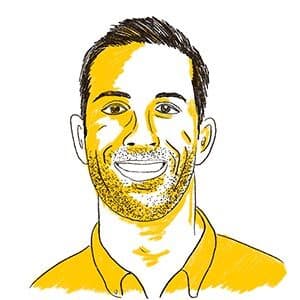
EVAN PONCHICK
FRN co-founder, now applied analytics manager at Genentech and FRN Board of Advisors member
We went and ordered some pizza, and then it was around closing time. Three pizzas were out. I inquired, like, “Hey, what happens to those? Do you bring them home?” They’re like, “No, we have to throw them away.”
He soon noticed that this wasn’t an isolated issue.
PONCHICK
I played on the club Ultimate Frisbee team, and after practice, I would sprint up to the South Campus Dining Hall so I could get there before they closed down. One night, I see in the chicken finger display, there were, like, 25 of them. And they rolled the trash can over and were starting to throw them all out. And I was like, “No, don’t do that!”
He wanted to do something about it. In Spring 2010, he joined his brothers and sisters in Alpha Phi Omega (APO), a co-ed community service fraternity, serving at So Others Might Eat (SOME), a nonprofit that feeds those in need in D.C.
PONCHICK
I said, “Wait a second. This is incredible. What if I was able to retrieve some of those chicken tenders from the dining hall and bring them over here and serve them here?”
He reached out to SOME, whose staff was happy to accept food on Friday nights to serve the next day for breakfast or lunch. He just needed permission from Dining Services.
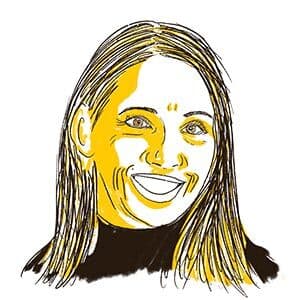
COLLEEN WRIGHT-RIVA
Director of Dining Services and FRN Board of Advisors member
When he came to me, he was just so enthusiastic and so willing to do whatever it would take to solve the food waste problem. I also remember having to kind of give him—I hate to say this—kind of a dose of reality around the way the food system works.
Wright-Riva had tried a similar food recovery idea at Cornell University, where she’d previously worked.
WRIGHT-RIVA
When you’re feeding somebody in a shelter or in a church, you want enough for everybody. Some of my skepticism was, will we be able to recover enough food that students can actually find someone to take it? So that was kind of the obstacle I put in front of them: Go out there and find some organizations that will take this eclectic smorgasbord of food. Then I said, also, we can’t add the labor or the transportation cost to deliver this food, so we’ve got to have a mechanism that will pass muster in food safety rules.
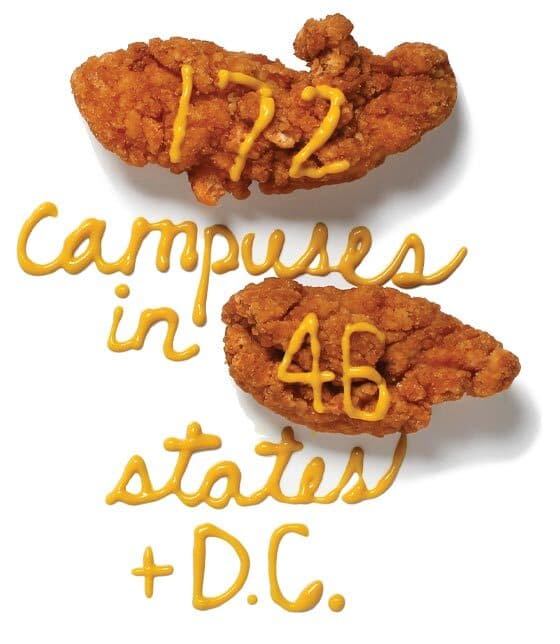
With multiple meetings, SOME’s cooperation and APO members’ agreement to use their own cars, the first food recovery took place on Sept. 17, 2010, then each Friday that semester. The volunteers packed up pasta, breadsticks, veggies, meat—anything the dining halls couldn’t serve that day.
PONCHICK
We met up as a group outside South Campus Dining Hall 15 minutes before closing. One (Dining Services) representative would come by, and they would go and grab the leftover food. We would be responsible for scooping it into the aluminum containers that we brought. We would stack them up, and once it was all loaded, we’d clean everything up, put everything away. And then we’d roll the cart with all the food over to the freight elevator, go down one floor to the loading dock, and then I would come over there with my car. We would drive in, throw on the little CD mix, go into SOME—they would be there waiting and ready. I’ll never forget the big smiles and their handshakes.
Around the same time, Ben Simon ’14 had started a separate community service club on campus, the Love Movement, and similarly noticed the food waste problem.
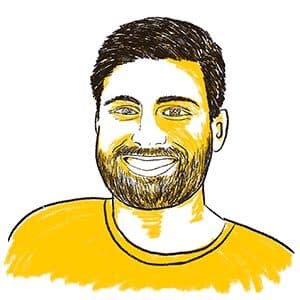
BEN SIMON
National FRN co-founder and founding executive director, co-founder and former CEO of Imperfect Foods
There was a time when my friends and I would actually eat off of the conveyer belts—it was in my grungier days when I was really broke as a college student, and it served two purposes of (feeding) myself and also preventing food waste. From there, we met with Colleen, and she had mentioned Evan’s thing, the APO food recovery and donation project that she had just, like a week or two before, given permission to start up in South Campus Dining Hall.
The Love Movement joined APO on recoveries in Spring 2011, allowing the effort to expand to multiple nights per week.
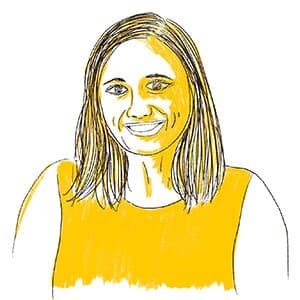
MIA ZAVALIJ ’14
National FRN co-founder, former Love Movement member, now co-founder and food recovery consultant at Eatable
It was such a simple and effective process— just packaging everything up and then driving it 15, 20 minutes down the road and seeing that immediate impact.
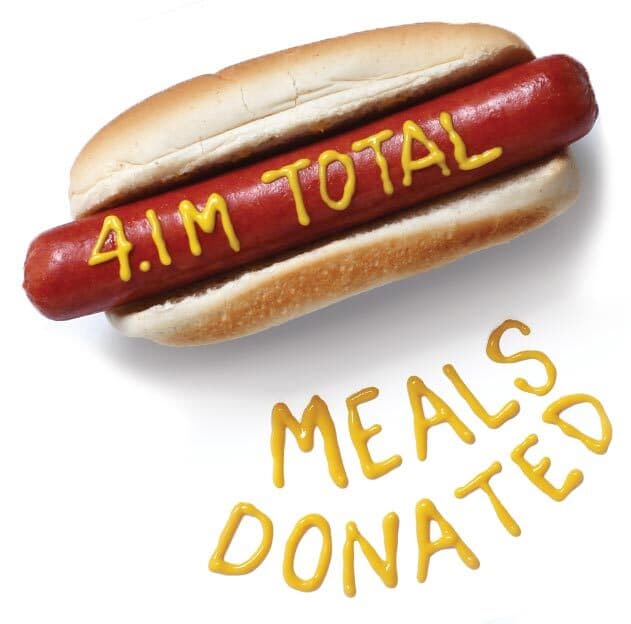
MAKING IT OFFICIAL
That fall, as Ponchick focused as a senior on securing internships, Simon took the reins and established Food Recovery Network as a UMD club in September 2011.
SIMON
There was a First Look Fair at the start of that 2011 school year, and all the students were sort of on one side of the tables, signing up for clubs. We actually went behind the tables so that we could have more direct, more intimate conversations with the leaders of all the different student groups.
That led to around a dozen clubs—including ROTC, religious organizations and activist group Community Roots—joining the cause, each taking different nights of the week to recover food on campus. After easing some concerns about liability by researching laws like the federal Bill Emerson Good Samaritan Food Donation Act, which protects food donors who give to nonprofits, FRN soon spread to 251 North and the Diner, catered on-campus events, and football and basketball games.
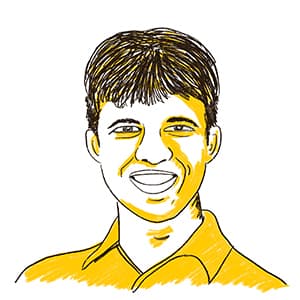
ANDREW BRESEE ’14
National FRN co-founder, now Software engineer at Affirm Inc.
It felt almost like covert ops or like vigilantism or something like that, because as soon as the food gets off of its heating elements, it’s like the (clock) starts ticking, like how much time is left before you can actually donate it. So we were running through the halls and, you know, there are people leaving the game, and it was fun. It was fun and scrappy.
FRN learned to sync the timing and logistics at each recovery location that semester with the help of a recipient just over a mile from campus.
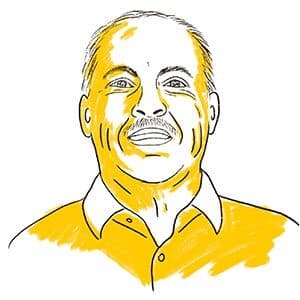
BEN SLYE
Pastor at Christian Life Center in Riverdale, Md., and CEO of Passion and Compassion Outreach Ministry
We talked about cars being “baptized,” because food would just come out of the trays onto (students’) cars. So we learned how to put plastic down. Then we had to learn at what temperature we need to refrigerate the food.
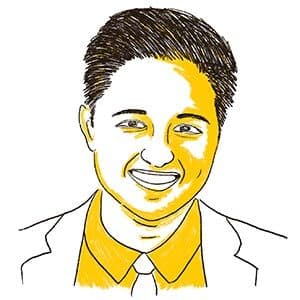
CAM PASCUAL ’15
National FRN co-founder, Eatable co-founder, now senior program officer at the World Wildlife Fund
It was sometimes discouraging. Like we’d have people sign up for food recovery, and then not show up. Students, they just have so much going on that you can be kind of flaky, especially if you have a test coming up and you were like, “Oh, this sounds great. Let me sign up for it.” And then it’s 8 in the morning and you’re like, “I don’t actually want to do that.”
SLYE
Whatever challenge that we came up with, we just faced, because we knew that this food was going to feed people that were hungry. Bringing this food in, I mean, it was like you were giving the (elderly) a million dollars when they would have a piece of meat, pasta, rice and vegetables. The reaction was incredible.
TO BROWN, AND BEYOND
After growing within UMD’s campus early that Fall 2011 semester, FRN’s co-founders saw a chance to go bigger. Simon reached out to Ben Chesler, a friend at Brown University. Simon had invited him to Love Movement meetings while Chesler was interning in D.C. and mentioned the early food recovery effort.
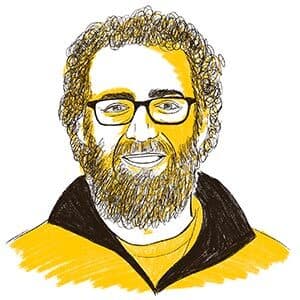
BEN CHESLER
National FRN co-founder, co-founder of Imperfect, now associate director of entrepreneurship at the Roux Institute at Northeastern University
He said, “Hey, this Food Recovery Network has taken off. We’re recovering a lot of food. You had said you wanted to do something at Brown. Do you want to actually put your money where your mouth is?”

Brown’s chapter followed a similar story to UMD’s, with confidence from its dining services overcoming some initial skepticism. That set the blueprint for further expansion, with Pomona College and the University of California, Berkeley soon joining.
SIMON
We had this toolkit of materials, a packet of four or five PDFs that we would send to every new chapter as we were coaching them through starting. One of the materials was basically giving Colleen and other directors of dining services as references for Food Recovery Network to say, “Yes, we do this with students at our school. It works with us. We would 100% recommend you do it.”
WRIGHT-RIVA
I got calls from other directors at other schools just saying, “Is it working? Is it a pain in the neck, or are you actually seeing momentum?” And I was able to tell our story, and I think most of the directors that called me ended up having their school run with the program as well.
UP TO THE CHALLENGE
When FRN started recruiting additional campus chapters, it entered, among other pitch competitions, UMD’s first Do Good Challenge in Spring 2012.
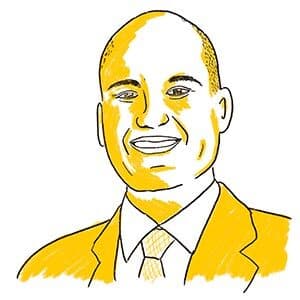
BOB GRIMM
Levenson Family Chair in Philanthropy and Nonprofit Leadership, Do Good Institute director, professor of the practice and founding chair of FRN’s Board of Directors
(Philanthropists) Bruce and Karen Levenson’s nephew was working with the actor Kevin Bacon, so they asked if we wanted to do something with Kevin. Collectively, a bunch of students and us came up with the idea of the Do Good Challenge, where Kevin would do a video wearing a Fear the Turtle shirt and challenge students to do as much good as they could.
The competition invited student teams to pitch their social solutions to a panel of judges and an audience of more than 700 in what was described as “a cross between ‘Shark Tank’ and ‘American Idol.’” The winning idea would receive a $5,000 grand prize.
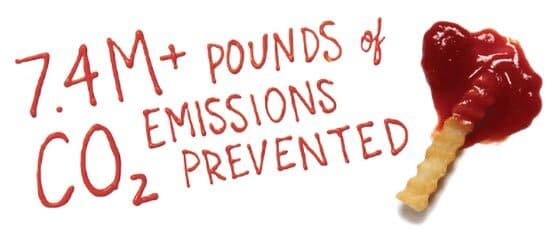
SIMON
Andrew and I probably practiced our pitch a hundred different times. We had some humor in there. One of our goals was to “get Loh,” and we used a Lil Jon meme—this was in the early days of memes—and just the whole audience cracked up. (We had gotten President [Wallace] Loh to come along on recovery with us.)
GRIMM
They did a nice job of being inspiring, being entertaining and also painting a picture of what their great potential was in the future.
The prep paid off, and FRN was crowned Maryland’s first Do Good Challenge champion.
SIMON
As soon as it was over and they gave us the award, the audience started to file out, but the press came up, and they were snapping photos of us. We jumped offstage, and it felt like a mob of press just asking us questions.
BRESEE
That really helped catapult Food Recovery Network into the main spotlight. That was really exciting, because it became a lot easier then to tell universities (about us), to have legitimacy.
After the challenge, FRN received free office space from the university’s Academy for Innovation and Entrepreneurship. Grimm joined as founding chair of its board of directors and was instrumental in securing early funders. The club incorporated into an official nonprofit in Fall 2012, and by the following spring had earned a $150,000 grant from the Sodexo Stop Hunger Foundation. Simon, Zavalij and Pascual became full-time FRN employees.
GRIMM
I had foundation friends who said, “Come back to me in a few years.” I was like, “That isn’t really helping us right now. If we can’t get going in the first few years, it won’t really be helpful if you’re interested in this three years from now.” Sodexo gets a lot of credit for taking a risk.
EXPANDING THE FOOD WASTE FIGHT
During the 2013-14 academic year, what ultimately became known as the Do Good Institute funded Evan Lutz ’14 in what’s now called the Impact Interns program with FRN. During his experience, he took the lead on a new waste-fighting idea: selling local farmers’ surplus produce to college students.
The initiative, called Recovered Food CSA (Community-Supported Agriculture), took off, with Lutz and others packing onions, potatoes and apples—regardless of how they looked—into their cars and selling them outside the Stamp. After competing as a finalist in the 2014 Do Good Challenge, Lutz joined Simon to turn the startup into Hungry Harvest, a Baltimore-based company that has recovered 30 million pounds of produce in seven years.
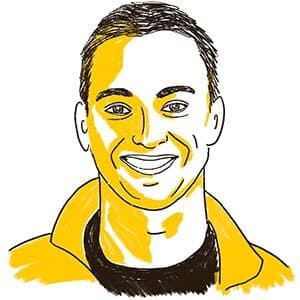
EVAN LUTZ
Co-founder and CEO of Hungry Harvest
I’m not a classroom learner. I am boots on the ground. I have to learn by experience. What Food Recovery Network did was, they gave me a framework as a backbone to really start a business within the business.
Simon eventually sold his stake to start a similar business on the West Coast with Chesler: Imperfect, which sells “quirky” or odd-shaped produce and other groceries through direct deliveries. Last year alone, it served 400,000 customers and saved over 50 million pounds of food.
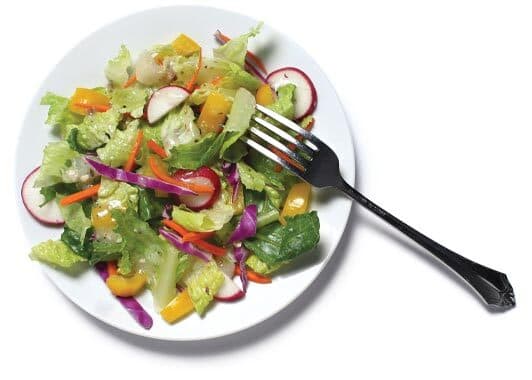
SIMON
It’s really crazy if you think about it, because Food Recovery Network has continued to grow, and then the ugly produce movement, which has now expanded into the world of grocery and this larger food recovery movement with Imperfect and Hungry Harvest—so much of this was started right at the University of Maryland.
WRIGHT-RIVA
I’m just thrilled that we were the founding school and that I was the director here at the time, that I was able to say yes. As a department, we’ve done things to launch the Campus Pantry, to partner with others for the Farmers Market and Terp Farm. So to see our own department really gravitate around trying to solve important issues around food just makes me happy.
As FRN continues to expand across the nation, the original co-founders have spread out as well. Some send the occasional text or meet for coffee. Others speak at each other’s weddings. And some have lost touch or pivoted to other careers. But they all look back fondly at Food Recovery Network’s growth and impact.
PASCUAL
I feel like the best part, even when we were part of it, was it didn’t feel like it was our thing. It felt like it was a really grassroots movement.
PONCHICK
You never know, one Friday night in your junior year of college could turn into a full-blown national nonprofit organization that’s going for 10 years strong.
This Maryland Today story is featured in the Fall 2021 issue of Terp magazine.
An AR-Aided View of Black History
UMD, Montgomery County Recreate Life at Historic African American Cabin
By Brianna Rhodes ’17
Visitors pointing their phones at the unassuming log cabin tucked along a wooded road in Olney, Md., may see a 19th-century wash basin still wet with laundry just outside the back door, chickens roaming around a wooden coop or a neighboring log cabin just yards away.
But when they lower their phones, all that remains is an empty yard and a deeper understanding of this property’s complicated past.
Through augmented reality (AR), a technology that overlays live scenes with computer-generated imagery, visitors to this African American heritage site in Montgomery County can now envision the livelihoods of Black families who lived in Oakley Cabin after the Civil War. Developed by the University of Maryland in collaboration with Montgomery County’s parks and technology departments, the project of digital recreations is believed to be the first AR experience created for an African American historic site in Maryland.
“This really important period of American history and the Black experience is underrepresented in academic research, in public sites and interpretation,” said Stefan Woehlke M.A. ’13, Ph.D. ’21, a postdoctoral associate in UMD’s Historic Preservation Program. “It was really important to me to work on a site where the county government is putting resources into and sharing this period of history through these digital tools.”
Oakley Cabin was one of three cabins originally built in the 1820s as part of the 100-acre Oakley farm. The 1½-story oak and chestnut log cabin housed enslaved laborers until the emancipation of enslaved Marylanders in 1864; it was home to free Black tenant families, up to 10 people at a time, well into the late 20th century. Montgomery Parks took over the property in 1976 to transform it into a museum to highlight Black life post-emancipation.
County officials tapped Woehlke as a project partner last summer. With graduate student Rachel Wilkerson ’23, M.A. ’25, immersive media design student Isabelle Klimanov ’24 and history alum Kyle Houston ’23, Woehlke used digital laser scanning and photogrammetry to turn thousands of images of the site into 3D models and flyovers of the cabin's interior, exterior and landscape. Tech specialists used the imagery to create interior and exterior recreations that include historic artifacts and the two long-demolished cabins. By scanning QR codes, visitors can immerse themselves in eight different AR experiences, including virtual park guides in seven languages, videos that recreate the historical surroundings, 3D models of the cabin’s interior and exterior, and interactive games.
Because Oakley Cabin is one of 17 historic sites across the county and staffing is limited, the interior of the cabin is staffed and accessible to visitors only from April to October on two Saturdays a month. Through AR programs, visitors can learn about the history of a property 365 days a year, especially during observances like Black History Month and Juneteenth.
“There are so many important historical sites across Maryland filled with artifacts and information from the lived experiences of these communities, and programs like this make them so much more accessible,” said Klimanov.
Woehlke has been conducting similar research in Black historic neighborhoods in Maryland for the past 10 years, including the Lakeland community in College Park and North Brentwood, the second town incorporated by a Black community in Maryland and the first in Prince George’s County. He has experimented with integrating imagery and oral histories into video game technology to develop digital tours that highlight significant sites, like Sis’s Tavern in North Brentwood, one of the region’s famed jazz haunts. This past spring, he and students used photogrammetry tools to scan North Brentwood’s AME Zion Church to build a digital interpretation of the site.
Montgomery Parks’ cultural resources stewardship supervisor, Cassandra Michaud, said that with the Olney AR cabin project, the county hopes to help shape a new digital era of historical site discovery and exploration throughout the region. It’s also looking to collaborate with Woehlke in the future at other African American historic sites such as the Josiah Henson Museum and Park in North Bethesda and Johnson Local Park at Emory Grove in Gaithersburg.
“This technology can create a new experience of something that is no longer there,” Michaud said. “We really want people to go to the place, experience it and [develop] their own understanding of it.”
Former Montgomery County Historical Preservation Commissioner Warren Fleming, who helped conduct the first site visit and restoration to the cabin, said the technology can finally help tell Black history the right way.
“In order to get the true meaning of how life was for African Americans during this period, it's important to come out now to this site and get the true education,” he said.
iSchool Expert Helps Develop Library Survival Manual for Crises
Nationwide Effort Helps Administrators, Staff Innovate to Serve Communities
Libraries have long done double-duty in their communities during catastrophes, opening their doors to provide shelter, internet access, food and other emergency services. But, like the rest of us, today’s libraries had never before faced something as pervasive and enduring as the COVID-19 pandemic.
Public libraries, forced to close their buildings, began launching virtual programming and grab-and-go and curbside book pick-up, but soon realized they needed to do more than offer their pre-pandemic services and find meaningful new ways to reach their communities.
Mega Subramaniam, associate professor at the University of Maryland’s College of Information Studies, and Linda Braun, learning consultant at the creative learning strategies company LEO, have stepped in to develop a new Field Guide to assist library administration and staff through crises.
The pair held seven virtual sessions last summer with 137 library staff nationwide to learn how they are supporting their communities during the COVID-19 pandemic—a time that the United States also saw increased civic unrest and community activism resulting from the killings of Black people by police. The team’s work with library staff expanded to focus on library responses to both crises.
The Field Guide opens with a call for public library staff to adopt a “public servant mindset” and to connect with community members and groups, tapping into their expertise to help identify what programs and services are truly needed. By building trust with these “community connectors,” residents may feel more inclined to engage with the library’s services, the guide suggests.
“This [Field Guide] describes the essential tasks for libraries to execute to reach the communities that they have not served before—and serve the communities that need library services the most at this time,” Subramaniam said.
Additionally, due to the extended closures of libraries, some political leaders and decision makers have questioned the need for them and their staffs at all. The Field Guide offers ways to document how libraries’ programs, through a collaborative process with the community, can have an impact during crises, and at other times as well.
“Serving community during a crisis doesn’t require doing more, it requires doing different things,” Subramaniam said. “Consider using data to show your funders, decision makers, board members how you’re contributing to the community during crises, because if you can demonstrate the impact, no one is going to ask the question, ‘Why do we need you?’”
Along with her and Braun, the team included iSchool doctoral student S. Nisa Asgarali-Hoffman and Academic Advisor Keanu Jordan-Stovall and Christie Kodama Ph.D. ’19, assistant professor in the educational technology and literacy department at Towson University.
Residence Hall Essentials Get New Lease on Life at Campus ReUse Store
Students Can Donate Gently Used Appliances, Accessories to Benefit Other Terps
The Terp to Terp Campus ReUse Store is now wrapping up its second year, and has expanded its donation center Harford Hall, added hours and increased staffing. The store has recently started accepting clothing, which is distributed not only on campus but also to local women’s shelters and K-12 students.
The move into your first off-campus apartment doesn’t need to detour to the dump.
Sure, it might be lights out for your multicolored floor lamp in your new digs, or lowered expectations for plastic bed risers. But Terps living in residence halls next fall could find that décor to die for.
The Department of Resident Life this week is expanding a pilot program called the Terp to Terp Campus ReUse Store, collecting small appliances, room accessories, kitchen items and school supplies to pass on to other UMD students for free.
“It’s great for everybody, not just folks with financial insecurity. We’re creating a culture of reuse,” said Lisa Alexander, coordinator of sustainability programs for Res Life.
It supplements Res Life’s nearly two-decade-old Terps Move Out Donation Drive (formerly called Trash to Treasure), which collects students’ gently used goods at the end of each school year and donates them to local nonprofits.
Starting tomorrow until May 18, students can put items in good condition in bins, available at most residence halls. Items that the ReUse Store can keep will be collected for fellow students, while others will continue to be given to GreenDrop.
Working for Res Life over the last 15 years, Alexander always heard the same refrain from her residents: “I wish we could get these things back in the hands of students.”
But there was never the space or the staff to sort, store and give away items. During the pandemic, however, a storage space opened in Harford Hall. Alexander started collecting donations during Spring 2021 move-out, and during Summer 2021, offered select groups, such as Fostering Terps Success, international students and graduate students the opportunity to shop and give feedback on the selection.
“Students said they were surprised by the variety, and some came back multiple times because they couldn’t carry it all,” since students are required to transport all items themselves.
The most popular items are kitchen essentials, so the ReUse Store now partners with the Campus Pantry to offer a selection of utensils, pots or baking pans alongside its free produce and groceries at South Campus Dining Hall. Other sought-after products include lamps, vacuums and storage solutions. Throughout the school year, the ReUse Store also takes donations from UMD community members, who can leave items at the Campus Pantry or coordinate with Alexander.
For now, making an appointment with Alexander is also the only way to check out the ReUse Store in Harford Hall. She’s advertised largely through word of mouth to keep things manageable, though a Diamondback article late in the fall got more students interested. Now, she’s created social media pages to broaden the ReUse Store’s reach, and hopes to expand significantly beyond the 30 or so students who shopped during the 2021-22 school year.
She’s applying for a grant from the Sustainability Fund to hire one or two students to expand the ReUse Store’s reach and hours, and plans to offer “open shops” on nice days when items can be displayed outside, so students can browse without an appointment.
“I think there are a lot of students interested, but there’s still a stigma around this sense of being in need,” Alexander said.
Terrapin Trader builds a sustainable campus through recycling
By Nina Branwell
For The Diamondback
Terrapin Trader is a College Park business that provides recycling services for the University of Maryland, selling unwanted scrap to companies and selling items to people at a more accessible cost.
The business aims to be a resource for people to get supplies they may need while also eliminating waste on campus. Items are often sold at a discount to make them more affordable.
“Rule of thumb here is kind of $0.10 on the dollar for what you would have to pay for it,” said Doug Waterman, this university’s transportation and distribution manager.
Waterman works directly with the University of Maryland and other universities across the state to resell and recycle surplus property for Terrapin Trader.
Terrapin Trader isn’t just a resource for the community — the business also helps conserve the environment through sustainable practices such as recycling old technology and products from its showroom.
Phones, the internet and other tech cause a lot of resource use on the back end, said Dennis Frezzo, an information studies professor at this university.
“Every time we throw away an electronic device, we should think about all the humans that put work into getting it to us … we call it a commodity chain,” Frezzo said.
She added that energy used by each individual electronic device is small but adds up in the process of keeping them running.
“This bucket is huge … The infrastructure on the other end. The whole internet. The cell tower has to be powered, the cell tower is connected to an ISP, the ISP is connected to a data center, the data center is where the server is … every Google search uses energy,” Frezzo said.
Recycling helps curb pollution caused by high volume of energy consumption. Waterman estimates Terrapin Trader recycles over 1,000,000 pounds of items a year.
“All of those recyclers will sell to whoever, like companies that are looking to buy glass,” Terrapin Trader storekeeper Carl Mericas said.
According to Facilities Management, electronic recycling bins are available at the front desk of residence halls, campus IT departments and TerrapinTech.
“We do it legally, we do it safely … our goal is not to landfill anything, and we landfill very little.” Waterman said.
A social innovation is any initiative (product, process, program, project, or platform) that challenges and, over time, contributes to changing the defining and authority flows or beliefs of the broader social system in which it is introduced. Successful social innovations have durability, scale and transformative impact.
UMD Social EnTERPreneurs & Innovators
The social innovators and enTERPreneurs highlighted in this section are only a handful of the innumerable alumni, faculty, staff, and students who are positively impacting the world through their social innovation initiative, organization, program or venture.
Changemakers
- Robert F. Chandler, Jr. Ph.D. '34 - He helped establish the International Rice Research Institute in the Philippines in 1959 and led a team of scientists in developing new varieties of rice that tripled harvests. Chandler received the 1988 World Food Prize—just one of his many awards—that recognizes major contributions to the science of food production.
- Parren J. Mitchell '52 - He was director of the Baltimore City Community Action Agency, a part of President Johnson’s War on Poverty. Mitchell also chaired the Washington, D.C.-based Minority Business Enterprise Legal Defense and Education Fund that he founded to protect minority businesses against discrimination.
- Bernice Resnick Sandler Ed.D. '69 - An extraordinary advocate for equal rights for women and girls in education and the workplace, she is known as the godmother of Title IX. The 1972 landmark law prohibits sex discrimination at all levels of education and affects millions of students and employees.
- Reginald Van Trump Truitt '14, M.S. '22 - Truitt led the campaign to convert Assateague Island into a National Seashore. He was awarded Maryland’s Rachel Carson Award in 1981 for his efforts to preserve the Chesapeake Bay and its environment.
Founders & Innovators
- Lester Brown M.S. '59 - Founded the Worldwatch Institute in 1974 and the Earth Policy Institute in 2001.
- Mylo Downey '27, M.S. '40 - He achieved the position of national director of 4-H and later developed 4-H-style programs in countries around the world for the U.S. State Department, served as consultant for the Peace Corps and co-founded the International Farm Youth Exchange.
- Kathleen S. Magee M.Ed. '72 - A former nurse and clinical social worker, founded Operation Smile in 1982 with her husband, William P. Magee Jr., D.D.S., M.D. Operation Smile is a worldwide children’s medical charity, whose network of global volunteers is dedicated to helping improve the health and lives of children and young adults suffering with facial deformities.
AGNR
- Dave Tilley - Co-founded Living Canopies, a company that makes a shady structure made of plants—a “living umbrella.”
ARCH
- Kimberly Fisher is the Director of the Partnership for Action Learning in Sustainability (PALS) is administered by the National Center for Smart Growth at the University of Maryland, College Park (UMD).
- Sheila Somashekhar - A seasoned community change maker, as the Purple Line Corridor Coalition (PLCC)'s inaugural director. Somashekhar has experience in community organizing and engagement, specializing in economic strategy, social justice, affordable housing, neighborhood asset building and workforce development.
ARHU
- Ronit Eisenbach is an architect, artist, curator, and educator whose scholarship and multi-disciplinary spatial practice aims to engage others in dialogue about the world we make for ourselves. Combining art, design and architecture, she explores how the perception of subjective, invisible and ephemeral objects affects understanding and experience of place. An interest in thinking through making and refining perception has led her to teach a series of situation-based, design-build studios that frame elements of architecture such as light, color, space, and shadow.
BGMT
- Nima Farshchi is a Lecturer in the Management and Organization Department, Executive Director of the Office of Experiential Learning (OEL), and Director of the Center for Social Value Creation (CSVC) at the Robert H. Smith School of Business, University of Maryland. His expertise includes Environmental, Social, and Governance metrics, Corporate Social Responsibility, Sustainable Development Goals, and Charter School Leadership. Outside of Smith, Farshchi serves on the Board of the Institute of Creative Community Initiatives, a Prince George's County non-profit organization dedicated to empowering youth, adults, and families in vulnerable communities. Additionally, he volunteers on the Steering Committee for the Best for DMV Campaign, as Partnerships Chair for B Local Mid-Atlantic, as Regional Chair for the Creating Value Alliance, and on the Board of Advisors for Elemental Impact Solutions.
BSOS
- Kathy Dow-Burger, M.A., CCC-SLP is a Clinical Professor in the University of Maryland (UMD) Department of Hearing and Speech Sciences (HESP). She is the Friedman Family Director of the Neurodiversity and Autism Transition Services (NATS) program. Dow-Burger oversees 1) the Social Interaction Group Network for All (SIGNA) for UMD students, 2) EFFECT for college-bound teens, and the 3) modified PEERS adolescent and parent social interaction groups which all provide comprehensive executive function, social cognition, conflict resolution, and self-advocacy skills training. Dow-Burger is a co-organizer of the annual Neurodiversity at Work Research Conference which brings together leading scholars, neurodivergent leaders, neurodiversity practitioners, and leading neurodiversity employers concerned with advancing neurodiversity employment research. This work is related to the preparation, recruitment, persistence, and advancement of neurodivergent individuals in the workplace
- Michael Hamner is the Director of the Center for Democracy and Civic Engagement, which has played a leading role mobilizing the whole UMD community to strengthen democracy. We work to strengthen democracy locally through service to our state and nationally leveraging our location near Washington, D.C., close to federal government offices, think tanks, and other organizations’ national headquarters.
- Shevaun Lewis is the Director of University of Maryland Autism Research Center (UMARC) since 2022, and Assistant Director of the Language Science Center since 2016. In both roles, I work to foster interdisciplinary research and community across multiple colleges. Her current research aims to create tools and practices to make labs and workplaces more inclusive of autistic students and employees.
- Sam Novey is the Center for Democracy and Civic Engagement's (CDCE) Chief Strategist who works with various partners to promote democratic participation and strengthen our democracy through collaborative efforts.
CMNS
- Rita Colwell is a Distinguished University Professor at the University of Maryland at College Park and at Johns Hopkins University Bloomberg School of Public Health, senior advisor and chairman emeritus at Canon US Life Sciences, Inc., and president and chairman of CosmosID, Inc. Colwell's interests are focused on global infectious diseases, water, and health. Dr. Colwell developed an international network to address emerging infectious diseases and water issues, including safe drinking water for both the developed and developing world, in collaboration with Safe Water Network, headquartered in New York City. Colwell is a nationally-respected scientist and educator, and has authored or co-authored 19 books and more than 800 scientific publications. She produced the award-winning film, "Invisible Seas," and has served on editorial boards of numerous scientific journals, including GeoHealth, which she founded at AGU in 2015.
EDUC
- James Fey, a professor emeritus in the College of Education’s Center for Math Education. Fey co-authored a series of children’s mathematics workbooks and curricula that have generated $4.1 million in revenue for UMD since 1991. Fey donated his share of the royalties back to the department to fund over a dozen PhD students in the Fey-Graeber Fellowship program.
ENGR
- Davinder Anand was an educator who created the Engineering for Social Change course, and established the collaborative program with Frostburg State University, enabling students to earn a mechanical engineering degree from UMD at Frostburg.. Dr. Anand established the Neilom Foundation supports engineering projects with social impact across the world. He was particularly proud of a breast cancer screening project launched in Greenbelt, Maryland; a Chesapeake Bay cleanup and oyster recovery project; and construction of a water well in Sierra Leone—all projects selected by students enrolled in the Engineering for Social Change course.
INFO
- Andrew Fellows is the inaugural program director for the College Park Scholars Data Justice program, established in 2024. He specializes in outreach and engagement, working to strengthen the collaboration of the University of Maryland College Park with its surrounding communities on issues of sustainability and resilience. Through the iSchool iConsultancy, Campus Community Connection, the Smart Cities Initiative, grant research, and as part of the team teaching the undergraduate capstone course, Fellows works with students, faculty, and staff at the University to partner with off-campus local communities to improve the quality of local life. Fellows came to the University in 2015 while serving in the last of three terms as Mayor of the City of College Park (2009-2015), following three terms as a member of the City Council (2001-2007). He also served 15 years as regional director of Clean Water Action, and over thirty years of advocacy and coalition building, principally for safe and affordable energy, health care for all, and environmental and economic justice.
JOUR
- Ronald Yaros is Merrill College’s director of Ph.D. Studies, an affiliate associate professor in UMD’s College of Information, a Tow-Knight Disruptive Educator for Journalism Innovation and Entrepreneurship, and an Apple Distinguished Educator. In 2018, a $100,000 grant from the Council on the Environment awarded Yaros the opportunity to lead a team of UMD researchers from education, public health and atmospheric science in a collaboration with Prince George’s County high schools for the science journalism project sciencebeat.org.
LIBRARIES
- Lae'l Hughes-Watkins is the Associate Director for Engagement, Inclusion, and Reparative Archiving for the University of Maryland in College Park. From 2013-2018, she served as the University Archivist at Kent State University. She is the Founder and Director of Project STAND, the first-of-its-kind collaborative effort among archival repositories within academic institutions across the country to create an online portal featuring analog and digital collections that document student activism that primarily focuses on historically marginalized communities. The project has received over $800,000 in grant funding from
SPH
- Stephen Thomas is the Director of the Maryland Center for Health Equity (M-CHE) is committed to improving the health of residents in the state of Maryland. Headquartered in the Office of the Dean at the University of Maryland School of Public Health.
SPP
- Paul Brown is Director of the Civic Innovation Center and associate clinical professor at the University of Maryland School of Public Policy, focused on building SPP’s programs in civic innovation and multi-sector collaborative governance.
- Robert "Bob" Grimm serves as the Levenson Family Chair in Philanthropy & Nonprofit Leadership in the School of Public Policy (SPP) and the founding Director of the Do Good Institute.
Changemakers
- Athena Garcia '25 - Athena is the voice of “Deconstructing the True Impact of Corporate Social Change", a thought-provoking podcast that embarks on a profound exploration of the historical injustices ingrained within certain for-profit enterprises. With a keen eye on the societal landscape, this podcast meticulously dissects the strategies adopted by companies in their pursuit of social responsibility and critiques the efficacy of these strategies, bringing to light their inherent flaws and identifying crucial areas for enhancement.
- Joanna Mok PhD '25 - Joanna leads Celebration!, a student-led platform to facilitate and drive cross-departmental experiential teaching and learning by collectively celebrating sustainability. The organization’s mission is to showcase how passionate students, faculty and staff from different programs and offices across campus are working toward and discussing sustainability from different perspectives, creating a connected learning community and envisioning an inclusive future instead of reinforcing academic silos.
- Marilyn Iriarte Santacruz PhD '24 - Marilyn is leading the Interventions to Support Ethnic-Racial Identity Development initiative which aims to design tools to better understand how Latino youth, in middle adolescence (ages 14 - 17) develop their ethnic-racial identity while navigating between two worlds. This initiative will support adolescents in this complex developmental process, while also involving their parents and practitioners.
Founders & Innovators
- Samai Patel '25 - Co-Founded the App Dev Club, a student club that takes a dual approach to social good, offering UMD students practical experience crucial for securing internships in the competitive tech industry while also developing software for socially impactful corporate projects.
- Takiyah Roberts '25 - Founded Dare to Dream, a nonprofit dedicated to empowering marginalized communities with the confidence, education, mentorship, and resources to chase their dreams unapologetically through entrepreneurship.
- Evelyn Scott '25 - Founded Exchange Roots, a digital farmer's market designed to promote local food systems, allowing small farmers and home gardeners to sell or exchange produce in their local community.
- Olevia Tinpaw '27 - Founded Business Beyond Borders, an organization dedicated to bridging educational and opportunity disparities among state of Maryland students. Business Beyond Borders initiatives involve helping historically underrepresented students, many of whom are refugees and immigrants, gain educational and business opportunities.
Social entrepreneurs (and innovators) are the essential corrective force. They are system-changing entrepreneurs. And from deep within they, and therefore their work, are committed to the good of all.
Social Innovation Stories
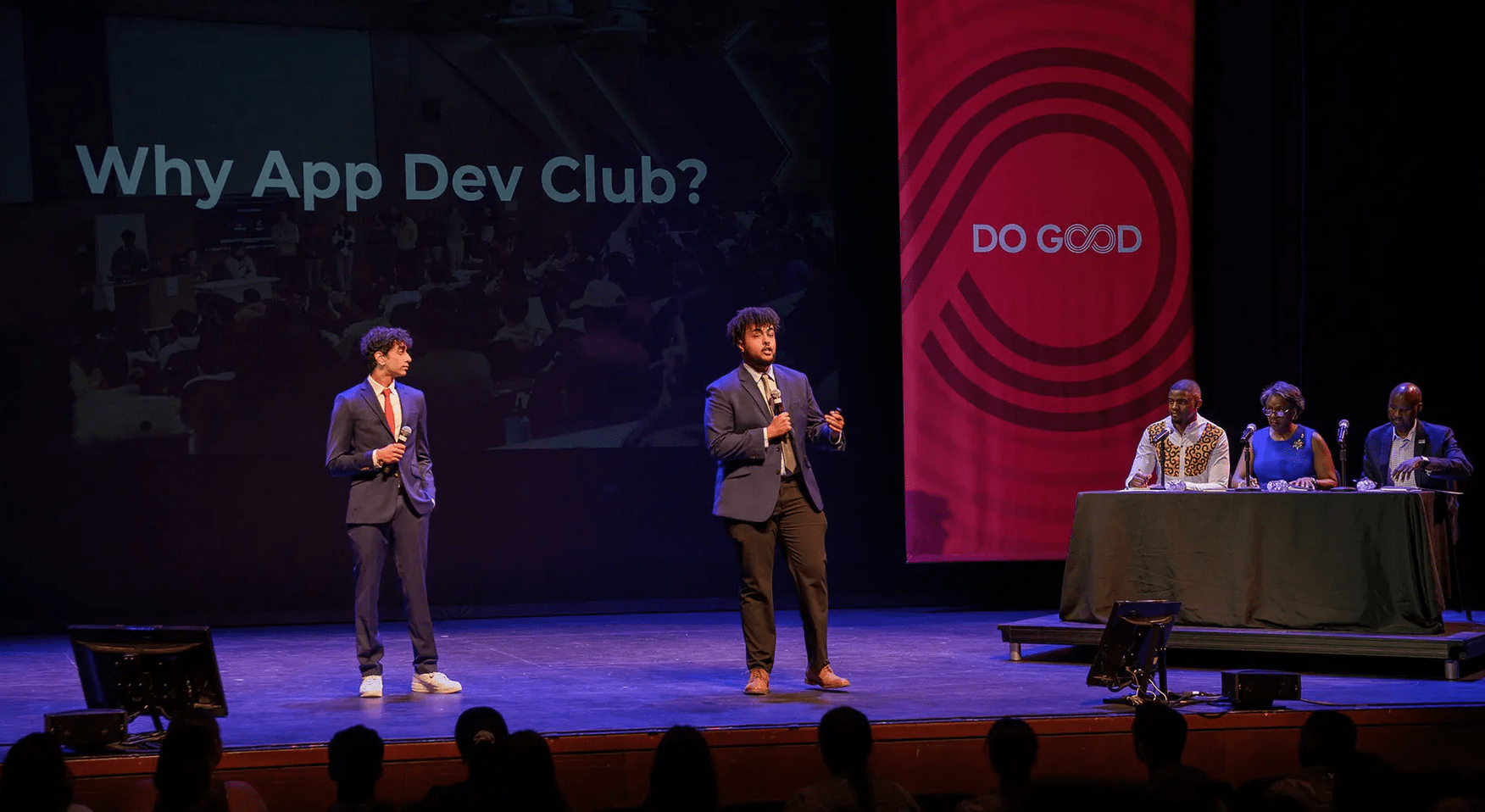
Software-Developing Club, Foundation Combating Hate Violence Take Top Prizes at Do Good Challenge
$20K Competition Celebrates Student Solutions to Societal Issues.
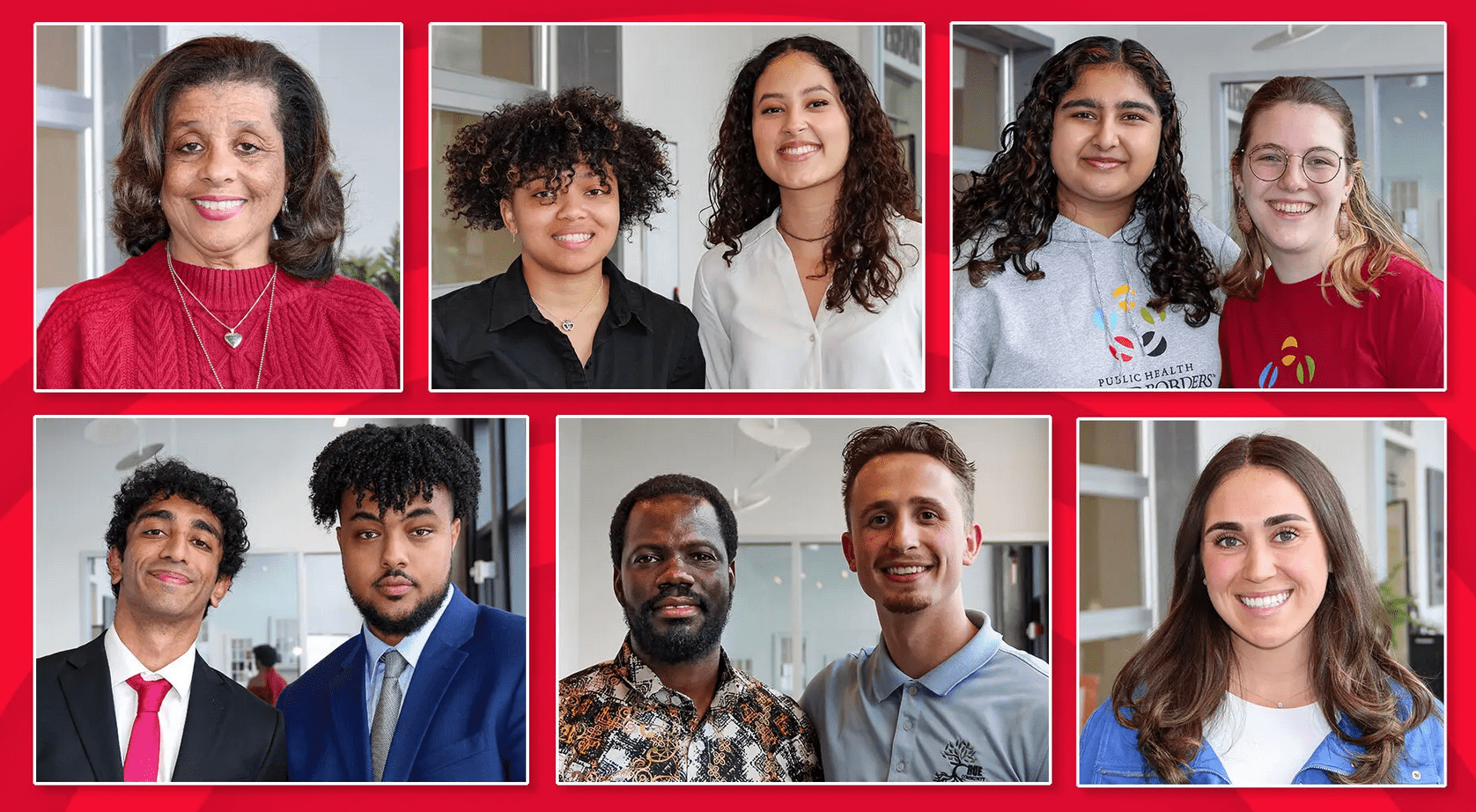
Student Teams Vie for $20,000-plus to ‘Do Good’
Do Good Challenge Asks Students to Put Their Best Philanthropic Foot Forward
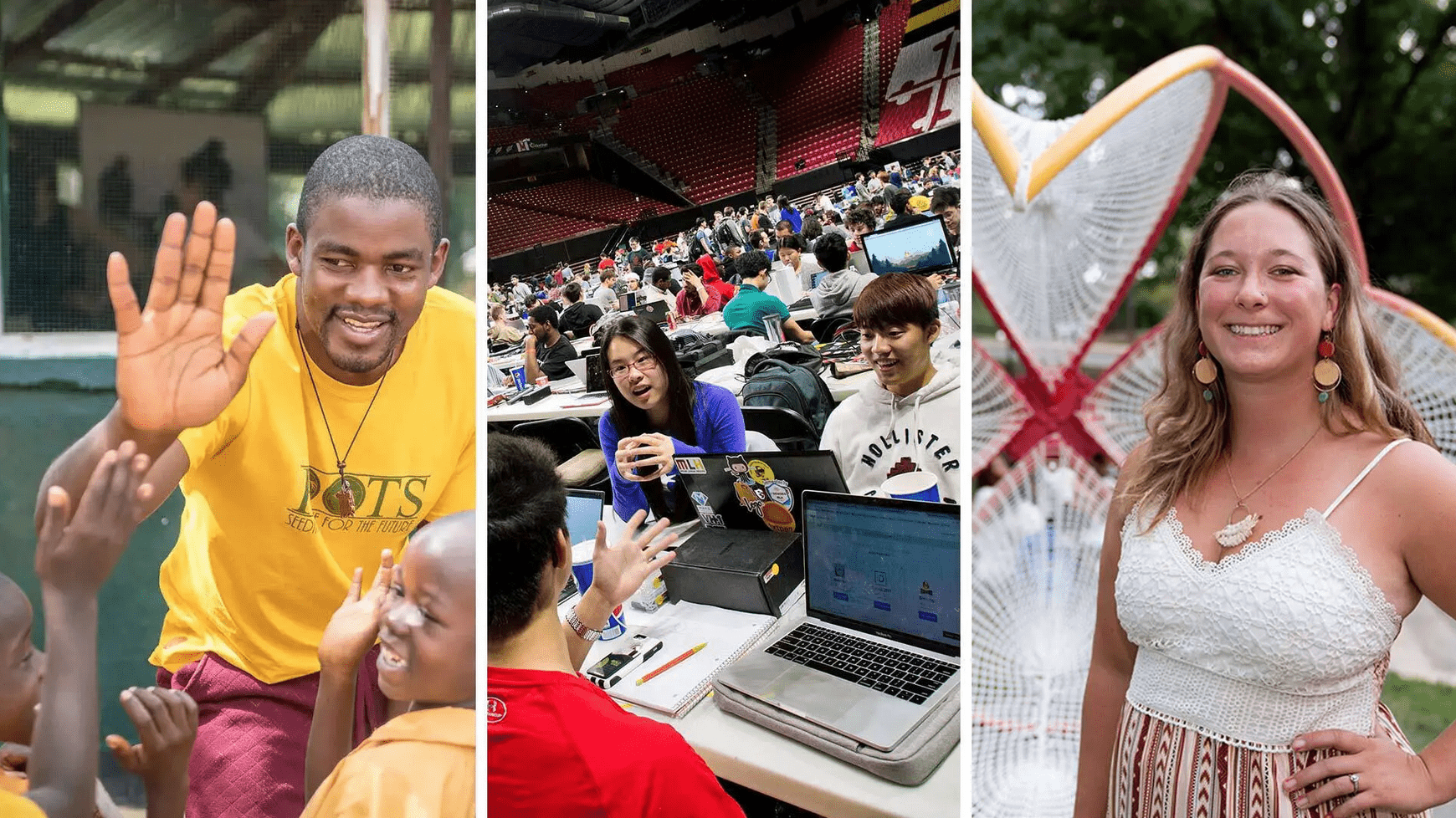
$460K Awarded to Faculty, Staff, Students From New Do Good Campus Fund
Inaugural Grant Recipients’ Projects Span Campus, Extend Into Local, State, Global Communities
Social Innovation Global Organizations
Acumen is a global force of entrepreneurs, investors, philanthropists, and social innovators working together to break the cycle of poverty.
We were founded on the radical idea that business can solve the hardest problems of poverty.
We focus on investing in transformational companies, building sustainable markets and preparing leaders with the tools they need to create a more just and inclusive future. Since 2001, we have scaled companies and shaped markets in some of the hardest to reach communities on the planet, impacting hundreds of millions of lives.
Programs and Resources provided by Acumen:
- Acumen Academy - Entrepreneurs learn the hard skills required to build scalable solutions to poverty and hone the harder skills of moral leadership to reimagine and build a better world.
- Acumen Angels awards early-stage capital to support social innovators within our alumni community as they launch and scale ventures that address issues of poverty around the world. The program supports entrepreneurs whose organizations are at the blueprint and early validation stage, providing the critical funding they need to develop ideas and refine their business models.
- Acumen Capital Partners - Blended finance has the power to catalyze system-wide change. We pool capital to scale strategic solutions to problems of poverty in specific sectors and geographies.
- Acumen LatAm Impact Venture (ALIVE) invests in high-growth companies that are leveraging technology and/or other game-changing innovations to address economic inequality and transform the lives of low-income communities across Latin America.
- Acumen Resilient Agriculture Fund (ARAF) - Acumen invests in agriculture startups to help smallholder farmers become more resilient to climate change.
- KAWISAFI - Acumen invests in high-growth companies building the future of clean energy in East Africa.
- Acumen Fellowship Program - Acumen provides transformative, cohort-based leadership programs for entrepreneurs who want to solve and scale solutions to poverty.
- Acumen Reports - With over twenty years of experience, we offer impact investors, entrepreneurs, and sector leaders cutting-edge insights to solve problems of poverty.
- Acumen Patient Capital - Acumen deploys philanthropic capital to high-innovation, high-impact enterprises that shape markets to break the cycle of poverty.
- Foundry - Alumni are provided with the tools, community, and capital required to scale their impact. These extraordinary leaders are deeply rooted in their local context and in the global community. Bound by a shared commitment to build a world based on dignity, the Foundry will nurture and challenge, provide sanctuary and encouragement to stay on the difficult path of social entrepreneurship.
- Acumen Ventures - We take risks most investors won’t for higher impact reward. We invest across the capital continuum to help transformational companies grow from seed to scale.
- Online Courses - Explore free online courses, and learn about storytelling for change, pick up new skills in systems practice, or dive into human-centered design.
Ashoka builds and cultivates a community of Fellows, Young Changemakers, Changemaker Institutions, and beyond who see that the world now requires everyone to be a changemaker – a person that sees themselves as capable of creating large-scale, positive change.
Ashoka invests in transformative ideas and the people behind them, including 3,800+ social entrepreneurs (Ashoka Fellows) in over 90 countries and 270+ Fellows here in the U.S., as well as a growing community of young changemakers. Together with our network, we are working toward a world where everyone can creatively and imaginatively solve problems for the good of all, as changemakers.
For more than 40 years, Ashoka has built and nurtured the largest network of leading social entrepreneurs in the world. Below are some of the programs, resources, and activities the organization provides:
- Ashoka Executive in Residence program fosters high-impact collaborations between companies and leading social entrepreneurs (Ashoka Fellows) that have the potential to change the dynamics of traditional markets, enhance competitiveness, and create systemic social impact.
- Ashoka Fellows are the world’s leading social entrepreneurs. They champion innovative new ideas that transform society’s systems, providing benefits for everyone and improving the lives of millions of people. Ashoka Fellows define the new roadmaps that allow people to thrive in this new environment, while providing solutions and demonstrating the how-tos. They are the ultimate role models in today’s world.
- Ashoka Fellowship - After a rigorous selection process, they are introduced to a life-long fellowship, where every member is committed to championing new patterns of social good. We encourage Ashoka Fellows to take ownership of the network and we partner with them to co-create Ashoka’s vision of an Everyone a Changemaker world.
- Ashoka Globalizer - We work with changemakers around the world to identify and effectively address systemic root causes of social and environmental problems.In doing so, we activate and support a global network of social entrepreneurs, innovators, executives, policy makers, foundations, academics and activists to build an Everyone a Changemaker world. Let's collaborate.
- Systems Change Research Lab is the knowledge research and development lab of the Ashoka Globalizer founded in 2018. We distill the wisdom of advanced social entrepreneurs on changing systems and create open knowledge products available to changemakers all over the world. Everyone can find a suitable format for themselves - be it an animated online course, case study, report, article or a podcast. We derive our knowledge products from the insights and emerging patterns from the work of social entrepreneurs in our accelerator and broader Ashoka network. Our priority is to make the learning process well-structured, fun, free and accessible for anybody in the world. Thousands of changemakers across the citizen sector, companies, and governments are already using this knowledge to improve systems in Northern and South America, Europe, Africa, and Asia.
- Systems Change Strategy Accelerator helps social entrepreneurs gain clarity on systemic root causes of social and environmental problems and the importance of engaging more changemakers as part of the solutions. It enables them to design effective systems change strategies based on respect to all humans and nature. Refined since 2010, it is a structured collective thinking process between social entrepreneurs, systems thought partners from Ashoka and selected leaders from business and the social sector.
- Systems Change Ecosystem Endeavors - With time we have come to realize that for changemakers to successfully implement systemic changes, they need more than strategic support and knowledge. They need an entire supportive environment – including funders who understand why and how to finance systems change efforts and intermediaries (incubators, accelerators, networks and door-openers) who are willing and able to offer suitable support. We have thus started our ecosystem endeavors to unlock more funding for systems change initiatives and enable intermediaries to effectively support changemakers in their systems change work.
- Catalyst 2030 is a network of social entrepreneurs that collaborate to improve the conditions for social entrepreneurship around the world and to achieve the UN Sustainable Development Goals. Members of the Globalizer team accompanied the very early development process and still support the network as founding members today.
- Investors in Change is a learning opportunity for donors who want to become more effective supporters of social entrepreneurs. It focuses on systemic initiatives and the funding practices that are needed for that work.
- Systems Change Masterclass is free and teaches essential skills for leading and problem solving amidst increasing complexity. It is applicable to any sector and can be applied no matter what stage you are in - whether idea stage or established, entrepreneur or employee, team member or team lead. You will practice using powerful tools developed through Ashoka’s decades of experience running in-person accelerators with leading social entrepreneurs and business leaders.
- Ashoka Stories: Readers Becoming Changemakers - Ashoka envisions a world where everyone has a role to play, no matter what age, in solving problems for the good of others. In collaboration with Worldreader, Ashoka has developed a collection of illustrated books and activities to inspire children everywhere to unlock their power as changemakers. Check out the collection!
- Ashoka Support Network is a global community of committed leaders who share, support, and advocate for Ashoka’s values and vision, while unleashing their own potential as changemakers.
- Ashoka U is working at an institutional level to make a difference in the education of millions of students, building on Ashoka’s vision for a world where Everyone is a Changemaker. We collaborate with colleges and universities to break down barriers to institutional change and foster a campus-wide culture of social innovation.
- Ashoka Young Changemakers (AYC) is a global network of powerful young people who are creating an Everyone A Changemaker world.
- Ashoka Youth Years - Young people everywhere present an opportunity for growth and a positive impact on their communities. By working with educators, schools, parents, and companies Ashoka is creating an educational ecosystem where young people can lead and practice the four core ‘changemaker skills’: Empathy, Collaborative Leadership, Fluid Team of Teams Culture, and Changemaking.
- Entrepreneur-to-Entrepreneur (E2) Network is an exclusive network of world-class, impact-focused founders and CEOs. Members have built businesses that transformed the world around them, and they have created generational wealth for themselves and others. With the E2 Network, they use their skills, experience, and poly-capital to address the world’s most challenging issues, together with Ashoka Fellows, staff, and ecosystem partners.
- Legal Engagement at Ashoka - Ashoka’s Integrity (Legal) Team promotes initiatives that enhance the connections between law and social entrepreneurship. Learn more about how Ashoka engages the Legal-Social Impact Community to accelerate an Everyone a Changemaker™ Lawyer world.
- Next Now - The world is better than we think. In pockets across the globe, humans are pioneering and implementing working, real-life solutions — answers to some of the world’s most pressing challenges. Next Now identifies, supports and lifts up these examples, and the changemakers behind them. From a bird’s eye perspective, we see patterns and frontiers of innovation that show a way to a better future. We weave a community of innovators committed to building it, and share our findings and insights with the world.
- WISE: The Women's Initiative for Social Entrepreneurship - A global initiative led from the global South that aims to elevate the number, knowledge, and power of women in social entrepreneurship by redefining success from a gendered lens and celebrating the unique ways in which women successfully lead and make impact.
BRAC International is a leading nonprofit organisation with a mission to empower people and communities in situations of poverty, illiteracy, disease, and social injustice.
Our approach is grounded in the conviction that people living in vulnerable situations can be agents of change if they are empowered with the tools, skills, and hope they need to change their lives.
We design proven, scalable solutions that equip people with the support and confidence they need to achieve their potential. BRAC’s institutional expertise on successfully implemented programmes is applied across 10 countries, touching the lives of over 130 million people, where our models are adapted according to the country’s context.
BRAC International operates in 10 countries across Africa and Asia. We envision a world free from all forms of exploitation and discrimination, where everyone has the opportunity to realise their potential.
- Social Innovation Lab - The SIL's mission is to support BRAC’s work of empowering people and communities in situations of poverty, low literacy, disease and social injustice. We test, prototype and adapt and collaborate with programmes to achieve large scale, positive changes in the communities that we work in. In line with BRAC’s economic and social programmes that work to create opportunities for everyone to realise their potential, we incubate, adapt and mainstream innovation within and outside BRAC by generating quick insights and redesigning service delivery models. Putting people at the core of what we do is our principle.
- Research & Publications - SIL conducts research to inform the evidence-based programming approach to achieve impact at scale. BRAC’s Independent Evaluation and Research Cell (IERC), the research wing of BRAC International and an affiliate of BIGD at BRAC University, conducts the operations research and impact evaluations.
- SILverLining is an internal blog for BRAC run by the Social Innovation Lab.
- Ultra-Poor Graduation Initiative (BRAC UPGI) is a global program at the world’s largest NGO in the Global South, empowers people to escape extreme poverty through BRAC’s Graduation approach, a holistic set of interventions designed to address their complex and long-term needs.
- Research Library - UPGI generates and shares years of learnings with a vibrant community of partners invested in this cause. By conducting research on our methods, we are able to continuously improve our programming and better serve people from the most marginalized populations around the world.
Echoing Green works at the intersection of social justice and social innovation, connecting our expertise and global networks to emerging leaders creating long-lasting social change. Echoing Green finds the brightest leaders with the best ideas for social innovation as early as possible. And then it does everything it can to make sure they succeed.
For 35 years, Echoing Green has been on the front lines of solving the world’s biggest problems, raising up the transformational leaders willing to speak truth to power and challenge the status quo.
We are the best at what we do, and have the trust, experience, and results to prove it. Our community of almost 1,000 social innovators includes first lady Michelle Obama and the founders of Teach for America and One Acre Fund.
Below are programs and resources offered by Echoing Green:
- Echoing Green Fellowship - Through our full-time Fellowship, we find people working on plans to make the world better in a big way. Then we help them become impactful leaders by connecting them with the tools, resources, and communities they need to bring their ideas to life.
- Fellowship Advisors - Echoing Green leverages a vast, global network of solution-driven professionals and industry leaders to support our Fellows today and long into the future. From well-being and spiritual self-care, to financial and business strategy, to fundraising essential capital, Fellows are guided with critical, timely advice as they navigate the social entrepreneurship and social impact fields.
- Invest in Black Leaders campaign celebrates the catalytic impact and power of Black innovation, and reflects on the legacy of Echoing Green’s Black Male Achievement Fellowship. With data and stories of perseverance, creativity, and impact, Echoing Green's Invest in Black Leaders campaign provides a counterpoint to this disturbing trend and highlights the abundance of potential that is right in front of us ready to be nourished.
- Black Voices, Black Spaces: The Power of Black Innovation - This report explores today's Black social leaders in the larger arc of Black innovation and presents learnings from Echoing Green's last decade of investment in Black social innovators.
- Racial Equity Philanthropic Fund - We believe transforming the world for the better requires an intentional, explicit, and sustained focus on advancing racial equity. For too long, racial inequity has permeated spaces that are supposed to achieve social progress and change systems—social innovation is no exception. At Echoing Green, we are building upon our existing commitment to investing in next-generation leadership to ensure that the social innovation field is an essential actor in the longstanding racial justice movement.
- Unwavering: The Power of Black Innovation - This short documentary discusses a long legacy of Black innovation to build power in their communities—even as financial support for their efforts remains inconsistent.
- Signal Fund provides capital to social innovators at critical growth stages that traditional investors often deem as too high risk. Signal prioritizes founders with overlooked potential for scalable social impact.
Global Citizen is an action platform dedicated to achieving the end of extreme poverty, powered by a community of millions of Global Citizens who believe in one world, one people - where everyone has an equal chance to thrive. This is our world and the actions of one can have a profound impact on many. That's why we rally around the critical issues of climate change, poverty, and inequality. This is our generation’s moment. It’s in our hands. We envision a world free from extreme poverty. Now.
Global Citizen focuses on:
- Defeating Poverty - Over 700 million people in our world currently live in extreme poverty. With collective action, we can change this.
- Defend the Planet - The world’s poorest people contribute the least but suffer the most from the climate crisis. Climate change impacts people's health, ability to access nutritious food, and livelihoods.
- Demand Equity - Every person, everywhere, should have an equal chance to live up to their full potential.
Take Action - Join the movement by taking action with millions of people like you who are dedicated to making the world a better place.
- Act: When you take action, you’re fighting for a world free from extreme poverty. Global citizens' voices influence world leaders and decision makers, and contribute to shaping our world.For every action you take to end extreme poverty, you earn points. Your journey to a better world and amazing rewards starts here!
- Earn: Use points to enter our rewards draws, starting at 10 points per entry. And don't forget to take action every month or you'll drop back to the base level.
- Enjoy: From exclusive concert tickets and stylish fashion items to eco-friendly products and once-in-a-lifetime experiences – score incredible perks with Global Citizen Rewards.
Global Shapers' mission is to inspire, empower and connect leaders to reach their full potential, amplify emerging voices in decision-making, and positively shape their communities and the world.
Change begins here. Local ideas. Global support. Real-world impact.
Independent hubs around the world identify and work on projects that are most important to them. We believe that local efforts, supported by a global network, can lead to lasting change worldwide. Local action is at the heart of Global Shapers, and here are ways to engage with Global Shapers.
- Community - Explore and connect with our community of changemakers around the world.
- Hubs are vibrant teams of passionate people from all walks of life. Through their diverse perspectives and commitment to working together, they design projects that enhance their communities, address local challenges and foster a sense of belonging. Develop as a leader, collaborate for impact and make a global difference. Join a hub.
- Innovation Prize - Launched in 2024, the Global Shapers Community, Accenture and the Global Alliance for YOUth has established the Innovation Prize to empower next generation change-makers.
New Profit was founded in 1998 to help catalyze the nascent social entrepreneurship movement. Since then, we have backed and partnered with more than 150 social entrepreneurs who created powerful ideas, tools, organizations, and movements to turn the tide on entrenched social problems, advancing opportunity for millions of underserved people and communities.
In 1996, New Profit’s Founder Vanessa Kirsch, herself a two-time social entrepreneur (Public Allies, Women’s Information Network), was in the midst of a sabbatical trip interviewing social entrepreneurs around the world. She stopped in a rural village in Vietnam and met a mother who had developed a powerful way to decrease infant mortality by supplementing a baby’s diet with ground shrimp meal. The positive effects of this intervention on her village were dramatic. Kirsch then visited another village just miles down the road where the shrimp meal solution was missing and babies were dying at an alarmingly higher rate. Yet in both villages, Kirsch saw the iconic Coca-Cola logo across storefronts. The question that she couldn’t avoid was, “Why don’t the best social innovations scale like commercial innovations do?”
The question kept ringing in Kirsch’s mind as she returned to the U.S. where philanthropy was operating more or less the same way it had been for over 100 years – funding programs and services, rather than supporting the health of the organizations running them. As a result, only a few nonprofits had crossed the $1 million revenue threshold and entrepreneurs faced huge barriers to spreading their innovations, including lack of access to growth capital and expert strategic support.
In 1998, Kirsch founded New Profit to provide social entrepreneurs with just those catalytic supports – unrestricted capital and strategic advice – to help them strengthen their organizations, scale their impact, and take aim at changing the larger systems within which they operated. The idea was to bring some of the principles of venture capital into the social sector. And the results have been dramatic. Learn more about the impact we have had on more than 200 breakthrough organizations here.
Today, New Profit provides support to social entrepreneurs through these approaches:
- Pipeline Building and Investment Selection:
- First, we invest in social entrepreneurs equipped to create bold and equitable change. As a part of this, we invest in social entrepreneurs who are proximate to the communities we seek to serve, especially leaders of color who see the multi-dimensional root causes of issues and develop innovative solutions to address them.
- Second, we seek a diversity of models and approaches in solving social challenges, including approaches aimed at disrupting and reshaping systems to achieve equitable and sustainable outcomes.
- Third, we invest in a range of issue areas that shape what opportunity looks like in America. We do these three things with the goal of investing in organizations that are collectively equipped to meet the systemic challenges our country faces at the scale and complexity they exist.
- Fund and Build: We stand shoulder-to-shoulder with social entrepreneurs in support of their vision, with a specific focus on helping them build the capacity of their organizations, which is key to strengthening their long-term impact and sustainability. We provide two levels of funding and strategic support to organizations in our portfolio:
- Build Investments - We provide grantee-partners a $1M+ multi-year, unrestricted grant and deep advisory support. A dedicated New Profit Deal Partner serves as a trusted advisor to the social entrepreneur and as a member of the organization’s board of directors. Our support is geared towards building the leadership capacity of social entrepreneurs and their ability to make strategic choices as they navigate change and growth.
- Catalyze Investments - We provide $50K-$100K unrestricted grants, strategic advice, and a peer learning community over one to two years to catalyze the innovations of organizations with leaders and focus areas that have been historically under-invested in by philanthropy.
- Ecosystem Building - We partner with social entrepreneurs and other leaders in our community to shift how government and philanthropy pursue social change so that all people can thrive. Driving big, equitable change requires more than backing individual organizations; we know that even the most high-impact organizations working in isolation cannot address the challenges America faces at the scale that they exist. Sustained, large-scale change demands collaboration across organizations and sectors. Our ecosystem building efforts engage social entrepreneurs, policymakers, philanthropists, and other national and local stakeholders to transform how government (the largest funder of social services) and philanthropy think about how to collectively pursue social change and allocate resources. Through this work, we leverage deep insights of social innovators in our community to influence how policies are shaped and how resources flow in the sector to help remove barriers to sustained social progress.
Schwab Foundation for Social Entrepreneurship is a leading global platform that convenes a pioneering community of over 400 change-makers and seeks to advance the field of social innovation towards more systemic change.
Since its foundation in 1998, The Schwab Foundation has acknowledged social innovators as a new kind of leader – values-driven, inclusive, entrepreneurial individuals who develop sustainable new models across businesses, social development and environmental initiatives.
We are a community of practitioners. Our motto is “by social entrepreneurs for social entrepreneurs.”
- Network of Social Entrepreneurs - The Schwab Foundation for Social Entrepreneurship recognises that there are various vehicles for driving and championing social innovation: politics and government, markets, academia as well as social enterprises. We believe social entrepreneurs and intrapreneurs are key to tackling global challenges and improving the state of the world. Our goal is to highlight and expand leading models of social innovation. Get to know some of these awardees.
- Social entrepreneurs are pioneering systemic solutions for social and environmental challenges ranging from refugee family reunification and human rights to water infrastructure and financial inclusion.
- Public Social Innovators are leaders in the public sector, be it local or national governments or representatives of international organizations, who harness the power of social innovation and social entrepreneurship to create public good through policy, regulation or public initiatives.
- Collective Social Innovation Awardees are cross-sector leaders who lead or facilitate a group or network of organizations committed to addressing a bigger problem than what an individual organization can take on, in particular towards social inequalities, excluded and marginalized groups, and vulnerable ecosystems; is distinct from scaling a programmatic intervention and is best suited to achieving large-scale systemic change.
- Corporate Social Innovators are leaders within multinational or regional companies who drive the development of new products, initiatives, services or business models that address societal and environmental challenges.
- Social Innovation Thought Leaders are recognized experts and champions who are shaping and contributing to the evolution of the field of social innovation.
- Reports and Practical Guides - The Schwab Foundation publishes research aimed at strengthening the leadership capacity and skills of social entrepreneurs worldwide.
- Social Innovation Awards - The Schwab Foundation’s 2025 Awards seeks to honour social change leaders, across a diversity of social innovation models in society in four different award categories.
- Social Entrepreneurs
- Corporate Social Innovators
- Public Social Innovators
- Collective Social Innovation Award
Skoll Foundation catalyzes transformational social change by investing in, connecting, and championing social entrepreneurs and other social innovators who together advance bold and equitable solutions to the world’s most pressing problems.
We strive to work with social innovators closest to the challenges, to advance equity, and drive toward a sustainable world of peace and prosperity for all. Social innovators tackle interconnected problems and advance solutions from every angle—from disrupting unjust systems and movement building to improving policies and practices. We focus on problems and places that are ripe for change, with potential for major impact.
Every year, the Skoll Foundation hosts the Skoll World Forum. The next one will take place from April 1st-4th, 2025.
Get to know the Skoll Community of Social Innovators.
Skoll Foundation focuses on the following areas:
- Climate Change is a global existential threat that requires urgent, collective, and coordinated action. The Skoll Foundation supports social innovations that mitigate climate change by empowering Indigenous Peoples and local communities as guardians of tropical forests, influencing private sector action, advancing climate justice in partnership with the hardest-hit communities, and building strong support for climate action globally.
- Effective Governance - The Skoll Foundation supports social innovations that promote effective governance, strengthen democratic institutions, and advance global security. The governance they seek puts people first, pursues accountability, and protects human rights for all.
- Health Systems and Preventing Pandemics - The Skoll Foundation specifically supports social innovations that help prevent the next pandemic and strengthen health systems: health workforce, early detection and response, health financing, stakeholder mobilization and advocacy, medical oxygen.
- Inclusive entrepreneurship ensures that all individuals have the opportunity to own the businesses in which they work, regardless of their gender, race/ethnicity, ZIP code, age, founder vs. employee status, and other identities. The Skoll Foundation supports equitable access to global economic gains through inclusive entrepreneurship in the United States and climate-positive micro, small, and medium enterprise (MSME) growth in sub-Saharan Africa.
- Information Integrity - Rampant information disorder—misinformation, disinformation, and hate speech—threatens progress on justice and equity, effective governance, climate action, health, and many other societal goals. Information disorder also impedes collective problem-solving and compromises social cohesion. The Skoll Foundation supports social innovations that build resilience to information disorder, bolster trusted information sources, and realign the incentives of technology platforms to better serve democratic values and the public good.
- Justice and Equity - Targeted disenfranchisement, economic inequity, health disparities, violence, and genocide are rooted in centuries of systemic racism, sexism, colonialism, and slavery. The Skoll Foundation supports social innovations that address inter-generational oppression, remove systemic barriers that limit opportunity, and elevate oppressed voices and narratives to shift attitudes and behavior.
UpLink empowers top Innovators to drive positive impact on the environment, society, and economy by establishing and actively building innovation ecosystems in crucial thematic areas.
UpLink’s technology-driven platform surfaces early-stage entrepreneurs and enables an innovation ecosystem to drive positive systemic change for people and planet. UpLink is the open innovation platform of the World Economic Forum.
- Innovation Challenges sources new innovations through a competition framework: innovation challenges. These are global calls for innovative solutions to global pressing issues as outlined by the UN Sustainable Development Goals. Together with a diverse set of partners, UpLink develops and launches innovation challenges, to source, identify and scale-up high-quality submissions from entrepreneurial start-ups.
- Innovation Ecosystem accelerates progress on the Sustainable Development Goals by bringing together innovators, investors, experts, and partner organizations. For each of our Innovation Challenges, we select a group of winners who are recognized as Top Innovators, Top Investors and Challenge Innovators. These winners are invited to join the UpLink Innovation Ecosystem of the World Economic Forum.
Content for Changemakers & Social Innovators
- Explore the lessons Acumen has learned investing in companies building a more inclusive future.
- Acumen Emergency Facility - Acumen’s first-ever emergency facility in response to COVID-19.
- Amal Academy - Closing the divide between education and employability for Pakistani youth.
- EthioChicken sells day-old chicks (DOCs) to low-income households throughout Ethiopia. The company has increased food security throughout the country and other countries in East Africa through partnerships, persistence, and innovation.
- Juhudi Kilimo’s innovative trust-based underwriting model has empowered rural farmers in Kenya, enabling them to access loans and improve their livelihoods.
- Koolboks provides solar-powered refrigeration to micro-entrepreneurs in Nigeria. Through innovation and a commitment to customer needs, the company has been able to improve the incomes and quality of life of micro-entrepreneurs.
- Lizard Earth is a responsible producer and aggregator of high-quality organic cocoa beans in Sierra Leone.
- Pioneer Energy Investment Initiative (PEII) was a $22 million program which made equity investments to support energy access entrepreneurs developing solar home systems, mini-grids, and productive uses of energy.
- S4S Technologies equips smallholder farmers and women micro-entrepreneurs in rural India with solar-powered food dehydrators, empowering them to reduce food waste, increase income, and build micro-businesses.
- Selva Nevada is a high-end artisanal ice cream and frozen fruit company that sources indigenous fruits from smallholder farmers in post-conflict regions in Colombia.
- Sitara was born from the legacy of SEWA Grih Rin. The company offers small loans to help low-income women in India build their credit histories and improve their living situations.
- Ziqitza Healthcare Limited (ZHL) provides emergency ambulance services across India. Through government partnerships, the company has been able to scale its impact.
Acumen Reports - With over twenty years of experience, we offer impact investors, entrepreneurs, and sector leaders cutting-edge insights to solve problems of poverty.
America Forward is a nonpartisan policy initiative of New Profit, a national venture philanthropy fund that seeks to break down the barriers between all people and opportunity in America. America Forward unites social entrepreneurs with policymakers to advance a public policy agenda that advances equity, fosters innovation, rewards results, and catalyzes cross-sector partnerships. Check out the Blog, along with some of the Policy Solutions and Publications provided by America Forward:
- Early Learning
- Economic Mobility
- Higher Education
- Imagine What's Possible: Transformative Policy Ideas from 100+ Social Innovators
- K-12 Education
- Social Innovation Policy to Advance Equitable Outcomes
Echoing Green Report
- Black Voices, Black Spaces: The Power of Black Innovation - This report explores today's Black social leaders in the larger arc of Black innovation and presents learnings from Echoing Green's last decade of investment in Black social innovators.
- Global Citizen Campaigns to Protect and Expand Civic Space. Here’s Why That Matters.
- How Does Global Citizen Use Advocacy to Drive Impact?
- The World’s Advocates Need Defending NOW. Here’s What That Means & How You Can Help.
- What Actually Is 'Advocacy' and How Can We All Use it to Change the World?
- What Exactly Does It Mean to Be a 'Global Citizen'?
Global Citizen Impact Articles - These articles highlight how Global Citizen campaigns create impact in the fight to end extreme poverty.
Global Citizen Research & Reports
- End Extreme Poverty NOW: Our Future Can’t Wait - We must break systemic barriers, take climate action, empower girls, and defend advocacy—NOW.
- Global Solidarity Report 2023 - Measuring the strength and resilience of the international community, for the first time.
- Harvesting Solar Power Five Times More Favored Than Burning Fossil Fuels - Produced by international research agency Glocalities in collaboration with Global Citizen, and The Fossil Fuel Non-Proliferation Treaty Initiative.
- The Justice Imperative: A Global Citizen Call To Action - Global Citizen & Pathfinders for Peaceful, Just and Inclusive Societies.
- Where’s the Money? - 6 Ways to Scale Finance for Climate and Development Needs.
Network for Business Sustainability (NBS) is a non-profit advancing sustainable development to build a fairer and more environmentally sound future. NBS houses a Resource Library and provides more than 800 articles in six knowledge hubs:
- Climate Change & Sustainability: The weather patterns on our planet are changing, influenced by human activities such as burning fossil fuels and wasteful industrial processes. The consequences threaten human health, ecosystems, and the economy – yet opportunities exist as well.
- Circular Economy: What if “waste” could be a resource? That’s the vision of the “Circular Economy.” It’s a model where resources are recovered and reused and waste is reduced.
- Sustainable Business Education: Business schools train tomorrow’s leaders and create rigorous research. They can advance sustainability by producing knowledge on pressing issues and by preparing students to work on society’s challenges. They can also partner with institutions across sectors to address issues directly.
- Sustainable Finance refers to investment decisions made using environmental, social and governance (ESG) considerations. Such investment can promote sustainable economic activity and the long-term stability of the financial system. Money can be a force for good.
- Sustainable Innovation: Innovation is vital for a company’s survival and growth. Firms that don’t innovate fall behind their competitors and ultimately go out of business.
- Social Justice: All people have equal rights and should have equal access to opportunities. That’s the principle of social justice and its linked concept, human rights. Those ideals can seem abstract. But frameworks like the Sustainable Development Goals aim to translate social justice into concrete goals and metrics.
Stanford Social Innovation Review Essentials of Social Innovation - A starter kit for leaders of change beginning to explore social innovation. Below are the list of articles included:
- Collective Impact - Large-scale social change requires broad cross-sector coordination, yet the social sector remains focused on the isolated intervention of individual organizations.
- Social Entrepreneurship: The Case for Definition - Social entrepreneurship is attracting growing amounts of talent, money, and attention, but along with its increasing popularity has come less certainty about what exactly a social entrepreneur is and does.
- The Dawn of System Leadership - The deep changes necessary to accelerate progress against society's most intractable problems require someone who catalyzes collective leadership.
- Design Thinking for Social Innovation - By working closely with the clients and consumers, design thinking allows high-impact solutions to social problems to bubble up from below rather than being imposed from the top.
- The Nonprofit Starvation Cycle - Funders must take the lead in breaking a vicious cycle that is leaving nonprofits so hungry for decent infrastructure that they can barely function as organizations—let alone serve their beneficiaries.
- Ten Nonprofit Funding Models - With an understanding of these 10 funding models, nonprofit leaders can use the for-profit world's valuable practice of engaging in succinct and clear conversations about long-term financial strategy.
- The Science of What Makes People Care - Five principles based in social science that will help organizations connect their work to what people care most about.
- Stop Raising Awareness Already - It’s time for activists and organizations to adopt a more strategic approach to public interest communications.
- Rediscovering Social Innovation - Social entrepreneurship and social enterprise have become popular and positive rallying points for those trying to improve the world, but social innovation is a better vehicle for understanding and creating social change in all of its manifestations.
- Innovation Is Not the Holy Grail - It is time to move from innovation as an ideology to innovation as a process.
Schwab Foundation for Social Entrepreneurship Articles
- How can we create more social entrepreneurs?
- How the right legal frameworks can catalyze a social enterprise surge
- Impactful AI: How tech leaders and social innovators are advancing AI for social good
- Innovating for equity is a win-win for companies and communities
- This is how we empower the next generation of social innovators
World Economic Forum Articles & Report
- 100 leading organizations are supporting social entrepreneurs worldwide
- How change makers have improved 891 million lives worldwide
- How 25 years of social innovation has transformed millions of lives
- Trusting in Humanity: The Power of People to Lead their Own Change - This report celebrates the values and significant achievements of the Schwab Foundation community of social innovators, shedding light on how they are transforming societies, policies and practices.
- Ashoka ASPIRe is a blog for and about social entrepreneurs.
- Ashoka Key Ideas - Browse the latest news and updates about what Ashoka is doing and thinking: stories, events, and a curated collection showcasing the top insights from Ashoka's global community of change leaders.
- Ashoka Stories for Early Changemaking - Great changemakers start young. The collection of stories below shine a light on great changemakers who have led young and practiced early changemaking. They have identified a problem, formed and led a team, and created a solution. The stories demonstrate the factors – guidance from parents, teachers, peers and others – that helped them begin their changemaking journey as a teen and how these experiences set them up for success in an everyone a changemaker world.
- Acumen provides stories, insights, and more from their work around the world.
- B The Change informs and inspires those who have a desire for using business as a force of good in the world.
- BRAC International provides stories on the impact and learnings of the organization across 10 countries in Africa and Asia.
- Cambridge Social Innovation Blog posts include comment from Cambridge Judge Business School faculty and social innovators from across the world.
- Echoing Green provides news and announcements on the intersection of social justice and social innovation, connecting their expertise and global networks to emerging leaders creating long-lasting social change.
- Reconsidered is impact strategy + communications studio focused on helping sustainable business leaders drive bigger, bolder, more sustainable change. It houses a variety of resources designed to add value, plug gaps and make the lives of our community of sustainable business professionals easier including a Change Hub, Impact Interview, a Newsletter, and a Resource Library.
- SILverLining is an internal blog for BRAC run by the Social Innovation Lab.
- Social Good Stuff provides quality content on the potential of individuals, technology and collaboration to create positive societal impact.
- Social Innovation: What It Is, Why It Matters and How It Can Be Accelerated (pdf) research paper created by Geoff Mulgan with Simon Tucker, Rushanara Ali and Ben Sanders from the Oxford Said Business School Skoll Centre for Social Entrepreneurship.
- Stanford Social Innovation Review informs and inspires millions of social change leaders from around the world and from all sectors of society—nonprofits, business, and government. SSIR bridges research, theory, and practice on a wide range of topics, including human rights, impact investing, and nonprofit business models. SSIR is published by the Stanford Center on Philanthropy and Civil Society at Stanford University.
- Transition Network provides news and blog highlighting how communities are coming together to reimagine and rebuild our world.
- TriplePundit is a digital media platform for the people and organizations making a real impact on the environmental, social and economic challenges we face. We spark action by bringing visibility to the changemakers who see and do things differently, with in-depth reporting and analysis through the lens of solutions journalism.
- Uplink News shares innovative solutions and issues that matter.
- African Leadership University (ALU) podcast is an essential listen for anyone chasing the challenge of achieving social change. This is Africa’s first-ever podcast focusing exclusively on African entrepreneurs, business leaders, and boundary pushers who are courageously committed to guiding and advising emerging and aspiring innovators.
- Ashoka Systems Change - In 2020 Ashoka’s Globalizer launched a new podcast series on systems chang,
- Crisis and Change: Conversations With Leaders is a podcast focused on leaders from across the social sector who share approaches and case studies of innovation and resilience during these unprecedented times. This special series was produced in partnership by The Pew Charitable Trusts and SSIR.
- Cry Power podcast is hosted by Hozier in partnership with Global Citizen, talking to inspirational artists and activists about how to change the world. But it’s not all talk. You can take action on the issues discussed on the show and listen to more episodes here — and help us #PowerTheMovement to end extreme poverty.
- Design Thinking Roundtable is a collaboration between the DESIS Lab and the ERA Chair in Social Innovation at NOVA SBE with the Design Lab @ NYU MakerSpace.
- Dnext Podcast speaks to leading thinkers from around the planet to reimagine the future in the brave new worlds of tech, business, and social innovation.
- Doin the Work: Frontline Stories of Social Change is a podcast highlighting people working for social change. Interviews with social workers and those in related fields, educators, and activists about their work and personal stories of how they got into this work. Hosted by Shimon Cohen, LCSW
- Giving With Impact is a podcast series from Stanford Social Innovation Review developed with the support of Schwab Charitable.
- Global Citizen Conversations is where the world's most pressing issues meet the voices of change. Join us on a journey of advocacy, empowerment, and global impact as we engage with influential leaders, activists, and experts shaping a brighter future for all. From climate action to gender equality, humanitarian crises to sustainable development, each episode delves deep into the heart of the challenges we face and the solutions that unite us. Together, we're sparking conversations that inspire action and drive positive change across the globe.
- Impact & Innovation hosts conversations with social entrepreneurs from around the world who come to Yale School of Management to share the challenges they are grappling with and the insights they are gaining in the field.
- Impact Boom podcast searches the globe to find the people, stories & inspiration to help you create a maximum positive impact.
- Inside Social Innovation provides a look inside the world of social innovation with leaders from business, government, philanthropy, and the nonprofit sector.
- Let's Talk Social Innovation is a podcast about the power of transformative conversations to drive meaningful change in our communities. This podcast serves as a platform for University of Pittsburgh members and community leaders to come together and discuss the inspiring work they are doing in the realm of social innovation.
- Social Change Career podcasts will ignite your passion for social impact. This podcast is your gateway to honest career conversations, shedding light on the successes, the challenges, and the insightful experiences of building impactful careers with brilliant innovators from around the world. Watch these podcasts on Youtube.
- Social Entrepreneur exists at the intersection of profit and purpose. We tell positive stories from underrepresented voices, focused on solutions.
- Social Entrepreneurship & Innovation Podcast is a show about the who, what, why, & how of building a better world.
- Social Innovation Insight podcast is the first social innovation media brand, with a special focus on social problems, innovation & ideas, social business, design and etc.
- Social Innovation Lab podcast shares the secrets involved in creating social media marketing campaigns that truly connect and inspire. From the latest social trends to creative brainstorming and connecting internal capabilities, we talk to the industry’s social-smartest to uncover insights that elevate social campaigns to social experiences.
- Social Innovation: The Social Ideas podcast shares the impact of social innovation, its necessity and its capacity to challenge the status quo. Throughout this series, highly committed change makers in business, civil society, policy and academia will talk about their work, their ideas and their motivation to strive towards to a more equitable and sustainable world.
- The Great Simplification with Nate Hagens is a podcast that explores the systems science underpinning the human predicament. Conversation topics will span human behavior, monetary/economic systems, energy, ecology, geopolitics and the environment. The goal of the show is to inform more humans about the path ahead and inspire people to play a role in our collective future. Guests will be from a wide range of scientists, leaders, activists, thinkers, and doers.
- Tiny Spark podcasts investigates philanthropy, nonprofits and international aid through in-depth interviews and shoe leather reporting from across the globe.
- Uncharted Ground tells the stories of nonprofit and social entrepreneurs at the forefront of global development. Host Jonathan Levine takes you on their journeys to solve some of the most daunting social issues on the planet.
- A Systems Approach Towards a (More) Sustainable Future: An Invitation to Academia is a keynote presentation to the Canadian Congress 2024 by Nate Hagens who provides a long form overview of the constraints, challenges and possibilities as we head towards a (more) sustainable culture.
- ACTIVATE is a six-part National Geographic documentary series about Global Citizen's efforts to eradicate extreme poverty by 2030.
- Ashoka envisions an Everyone A Changemaker™ world. Watch videos on Social Entrepreneurs.
- Ashoka Stoires of Young Changemakers. Watch videos on young social entrepreneurs.
- How social entrepreneurship will change the world: Erica Wenger speaks at TEDxUSC (July 2019).
- Keynote speech by Frances Westley given at the Social Frontiers Conference in which she speaks about the history of social innovation (November 2013).
- LINK Strategic Partners Changemakers Series brings together some of the most incredible change makers who are leading deep and lasting community-based work around the globe. These Changemakers Panels address issues such as Equity, Healthcare, Economic Renewal, and other weighty topics.
- Re-thinking social entrepreneurship: Tom Osborn speaks at TEDxBerlin (October 2017)
- Skoll Foundation has a dedicated YouTube section dedicated to Short Films Profiling Social Entrepreneurs, Solutions Storytelling Project, Skoll World Forum Interviews, and various playlists.
- Social Innovation: Jeff Snell speaks at TEDxUWMadison (February 2020).
- STAND UP - Global Citizen in partnership with Parlophone and Atlantic Records and Raphael Saadiq collaborate on an album that aims to restore hope, inspire, and celebrate the heroism of the leaders among us who are fighting for a better world. Get inspired and stand up for the world you want.
- Stanford Social Innovation Review Videos
- Swiss Learning Exchange Episode 6: Social Innovation | Innovation and Entrepreneurship | SkillUpCan - Social Innovation solve humanity's biggest societal challenges like poverty, unemployment, lack of access to water, and sanitation?
- The Future is Social Entrepreneurship: Kerryn Krige speaks at TEDxJohannesburgSalon (September 2016).
- The Story of a 16 year old Social Entrepreneur: Nikhiya Shamsher at TEDxCET (August 2019).
- Unwavering: The Power of Black Innovation - This short documentary discusses a long legacy of Black innovation to build power in their communities—even as financial support for their efforts remains inconsistent.
- UpLink Video Series - Watch inspiring videos featuring breakthrough innovations and collaborations accelerating progress towards the Sustainable Development Goals.
- What is Social Innovation? - Dr. Gary Painter, Director of the USC Price Center for Social Innovation, describes the components of social innovation and discusses the role that the social innovation framework plays within our existing policy landscape.

